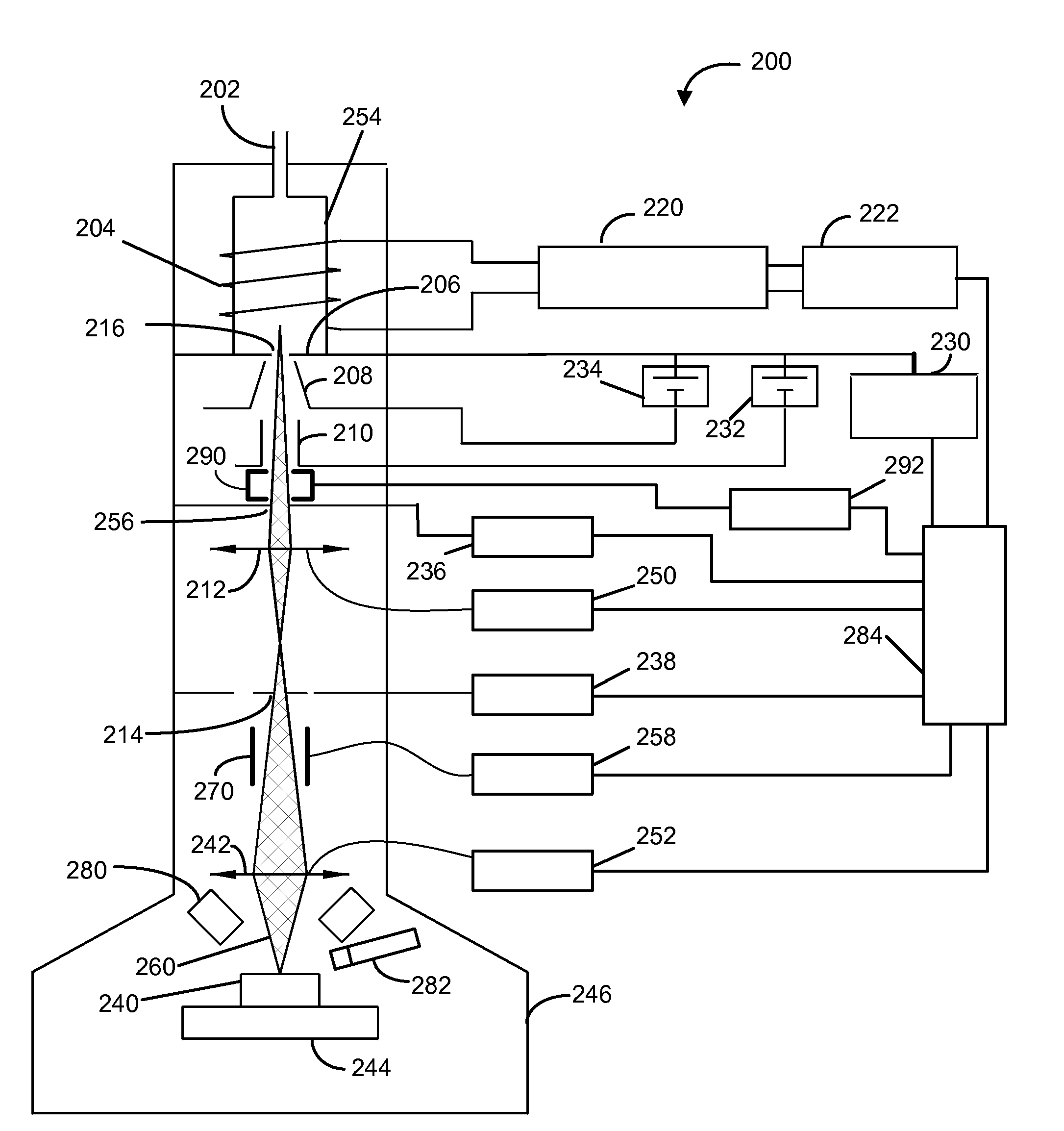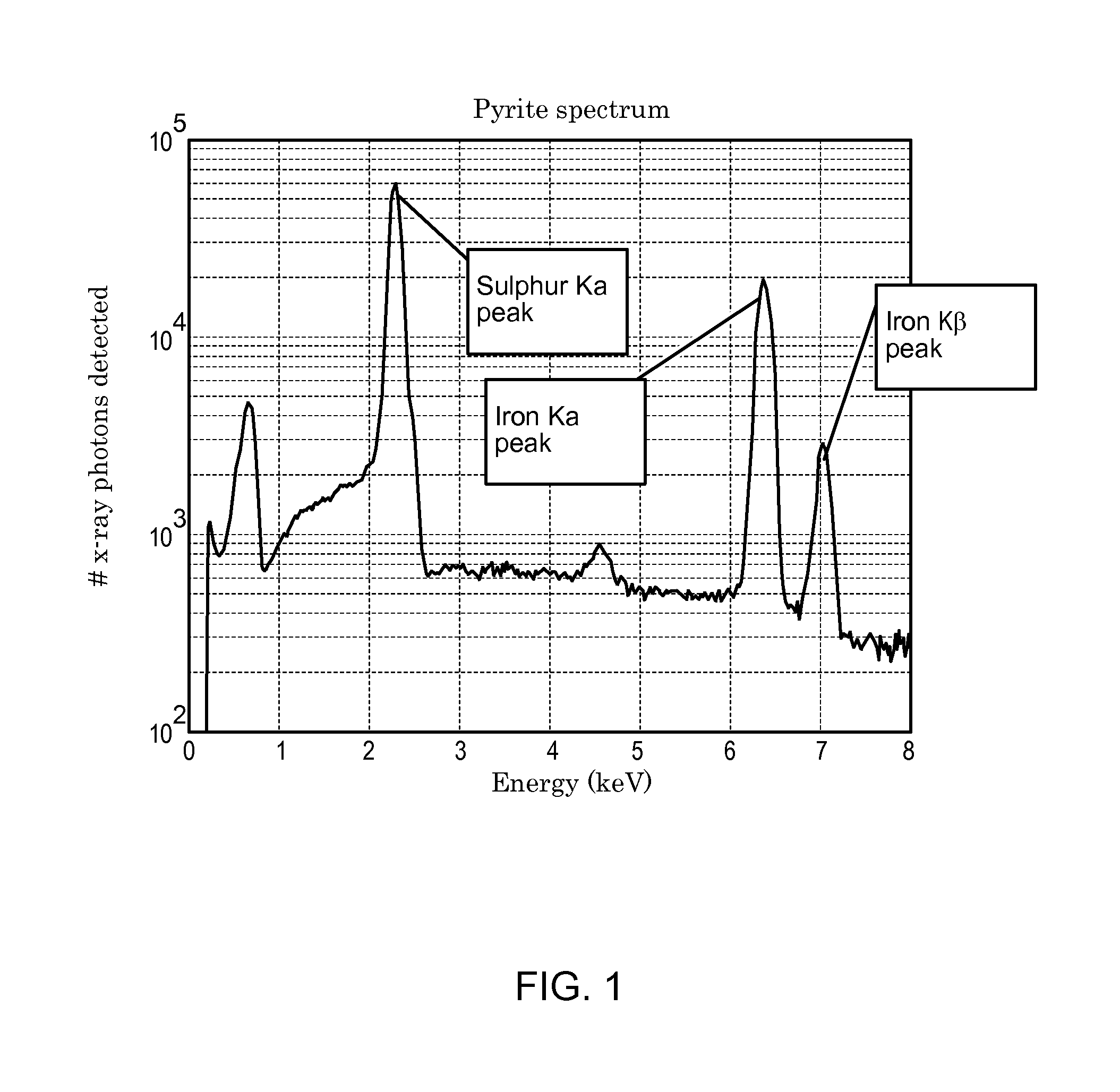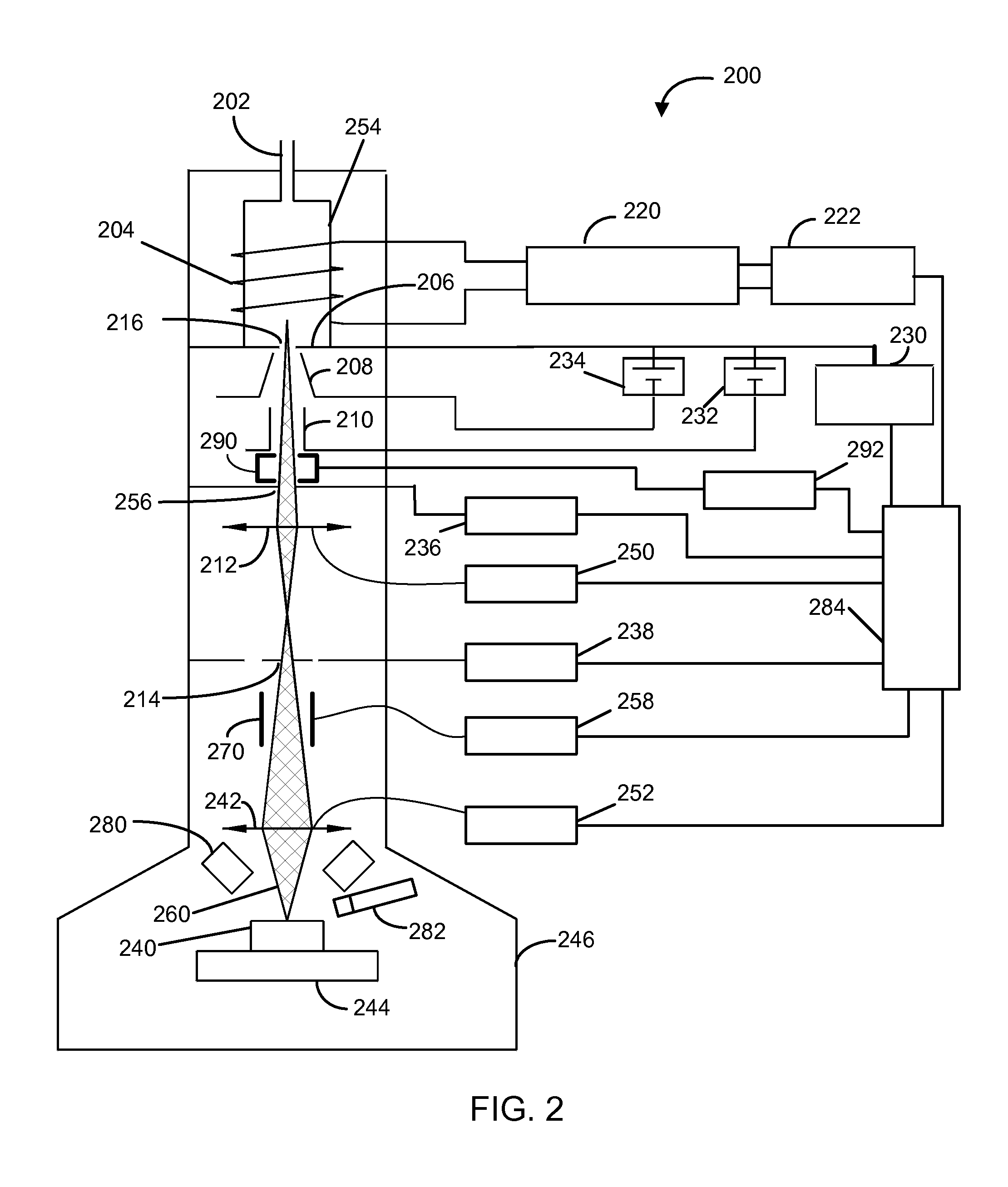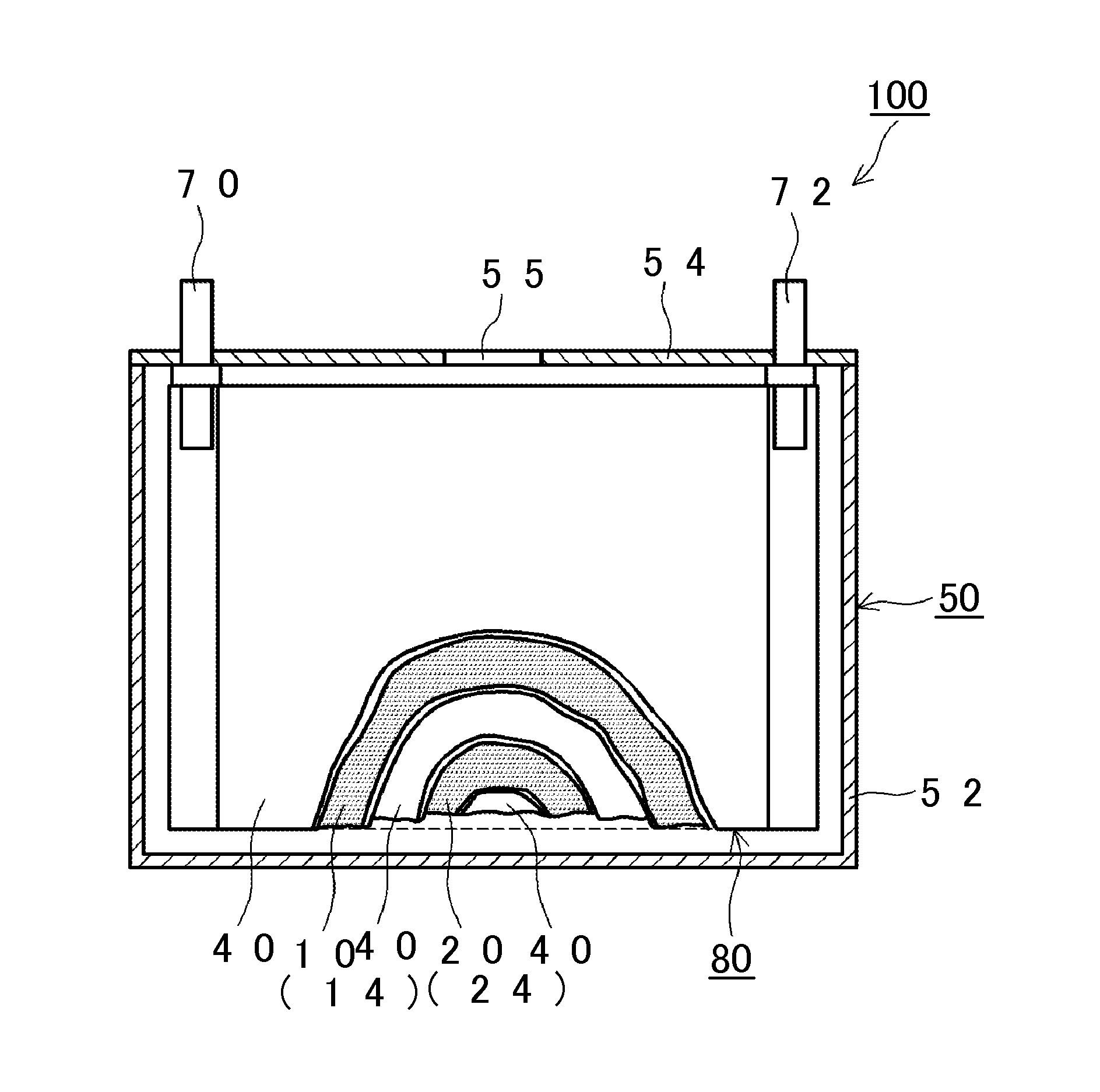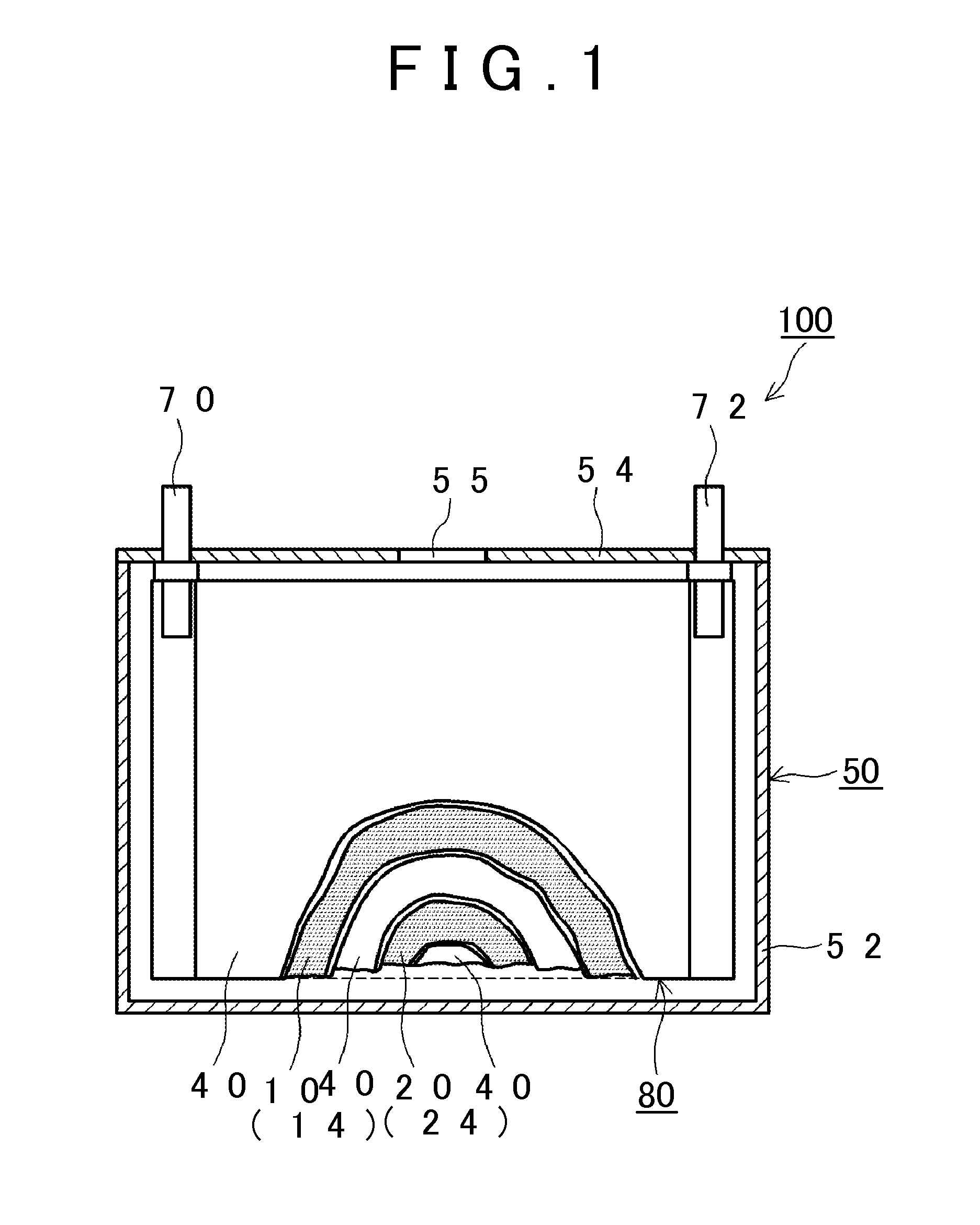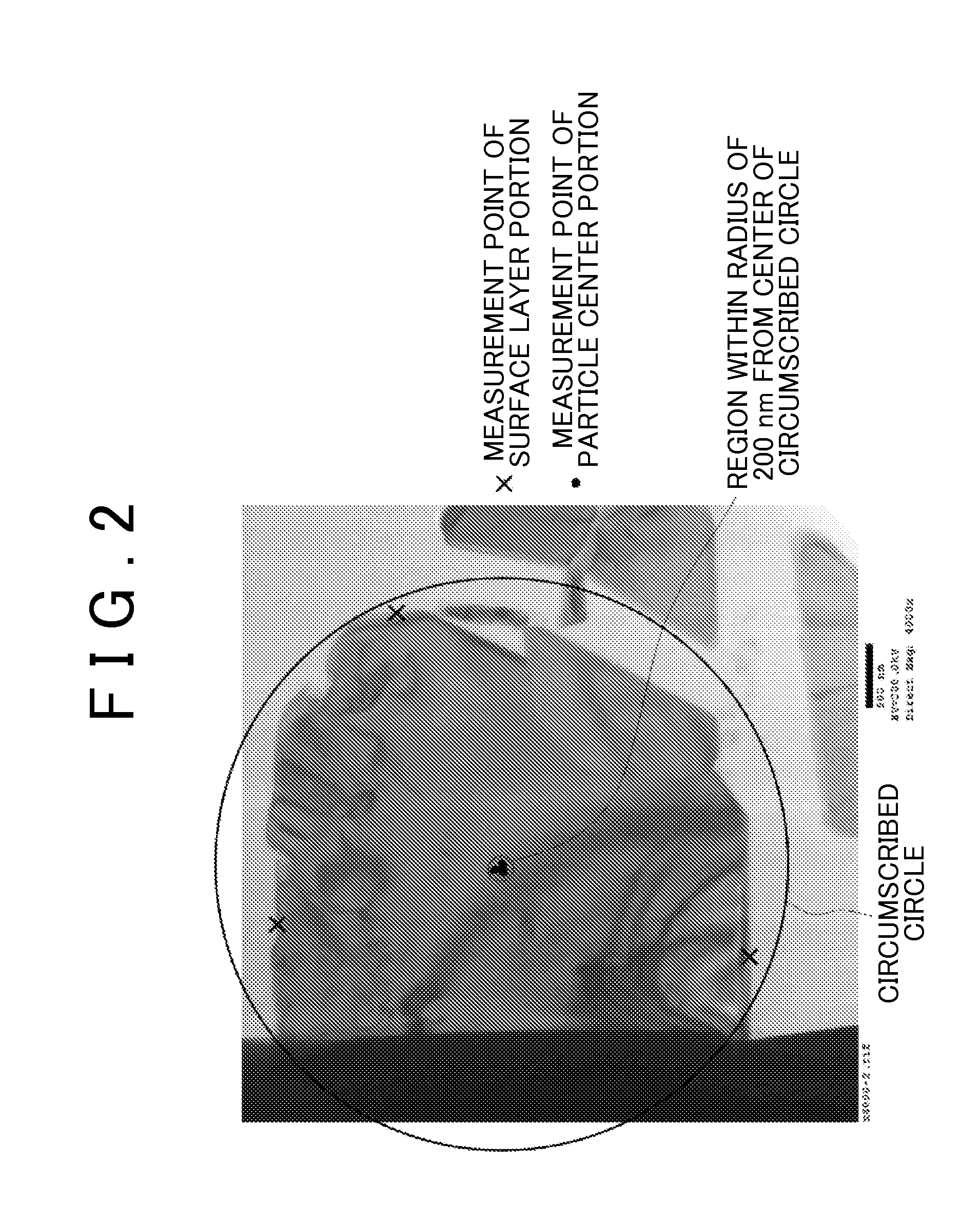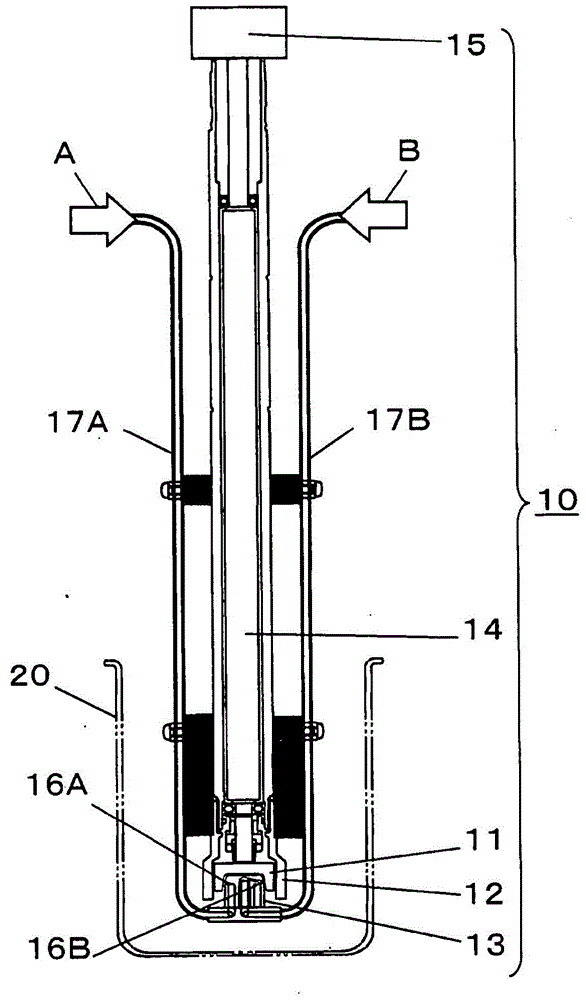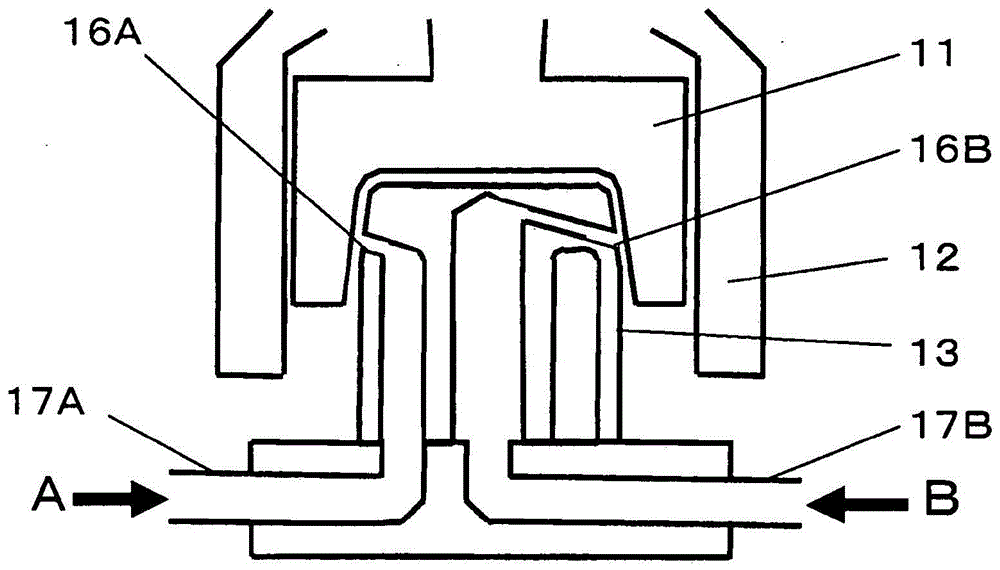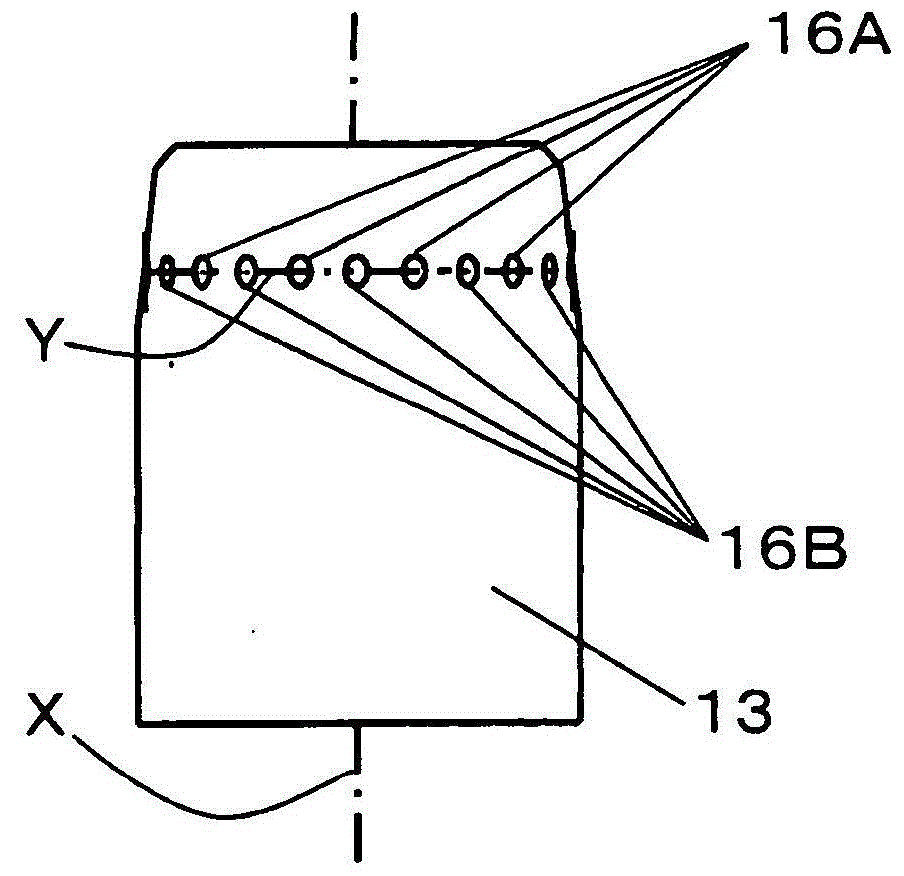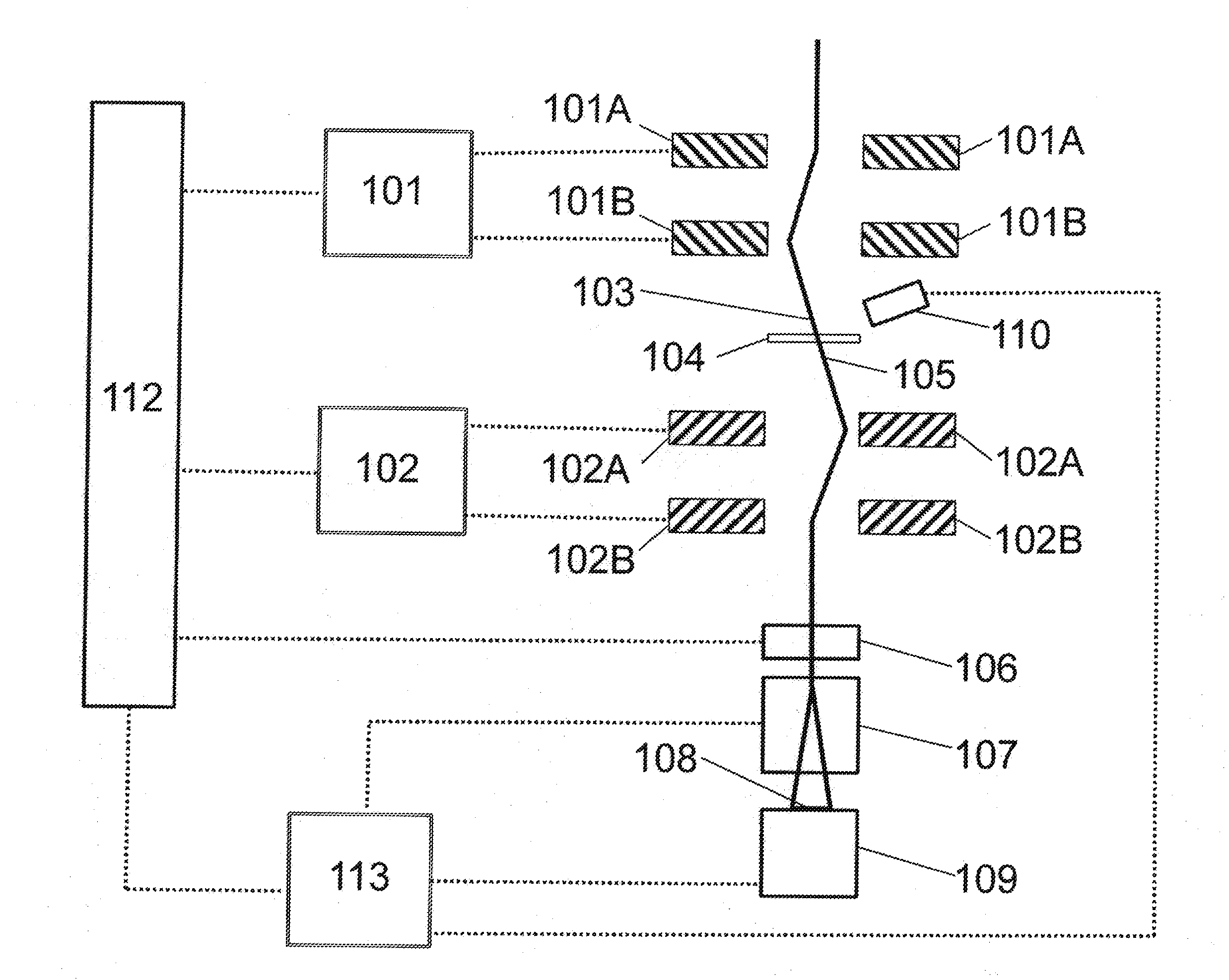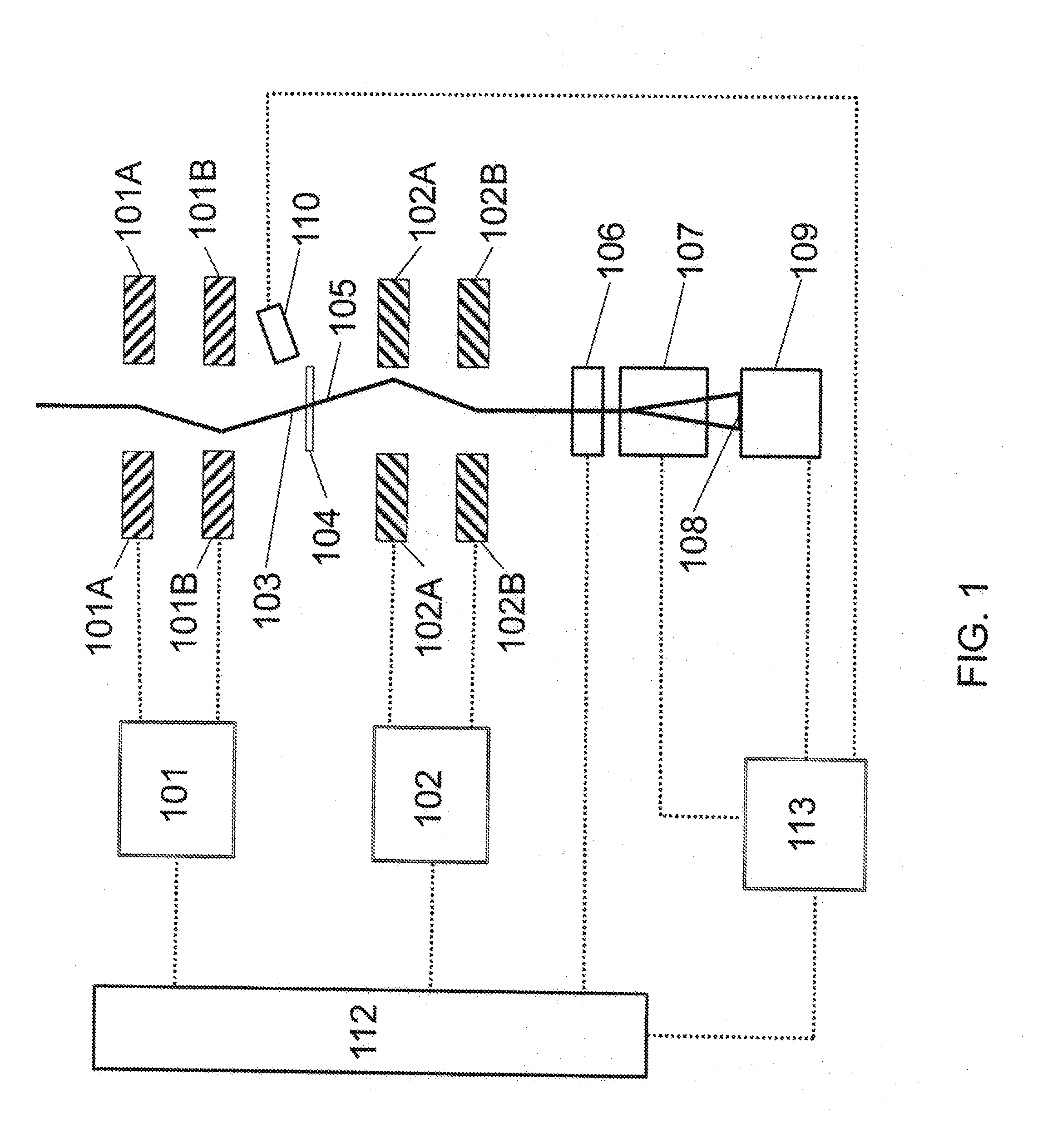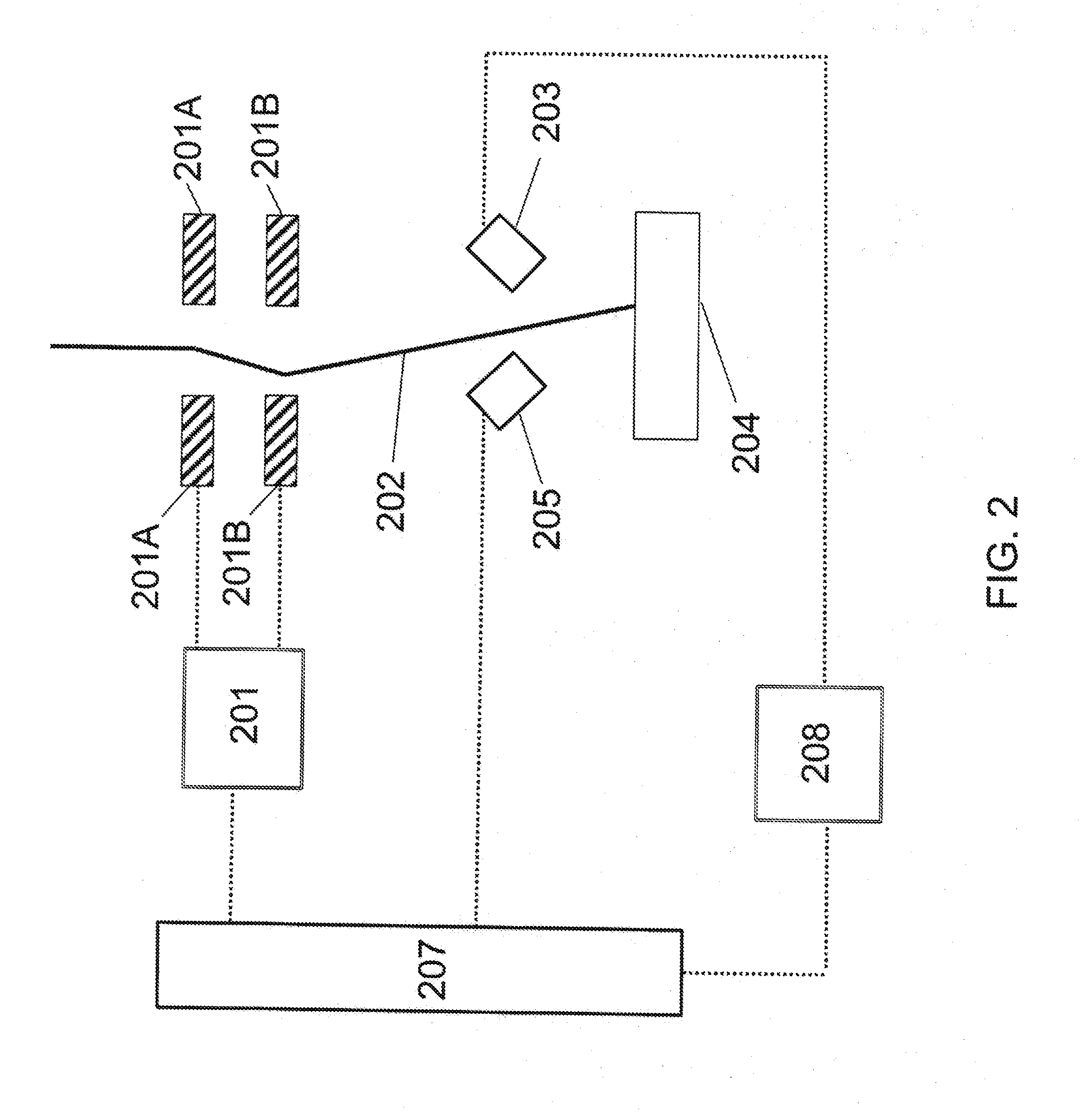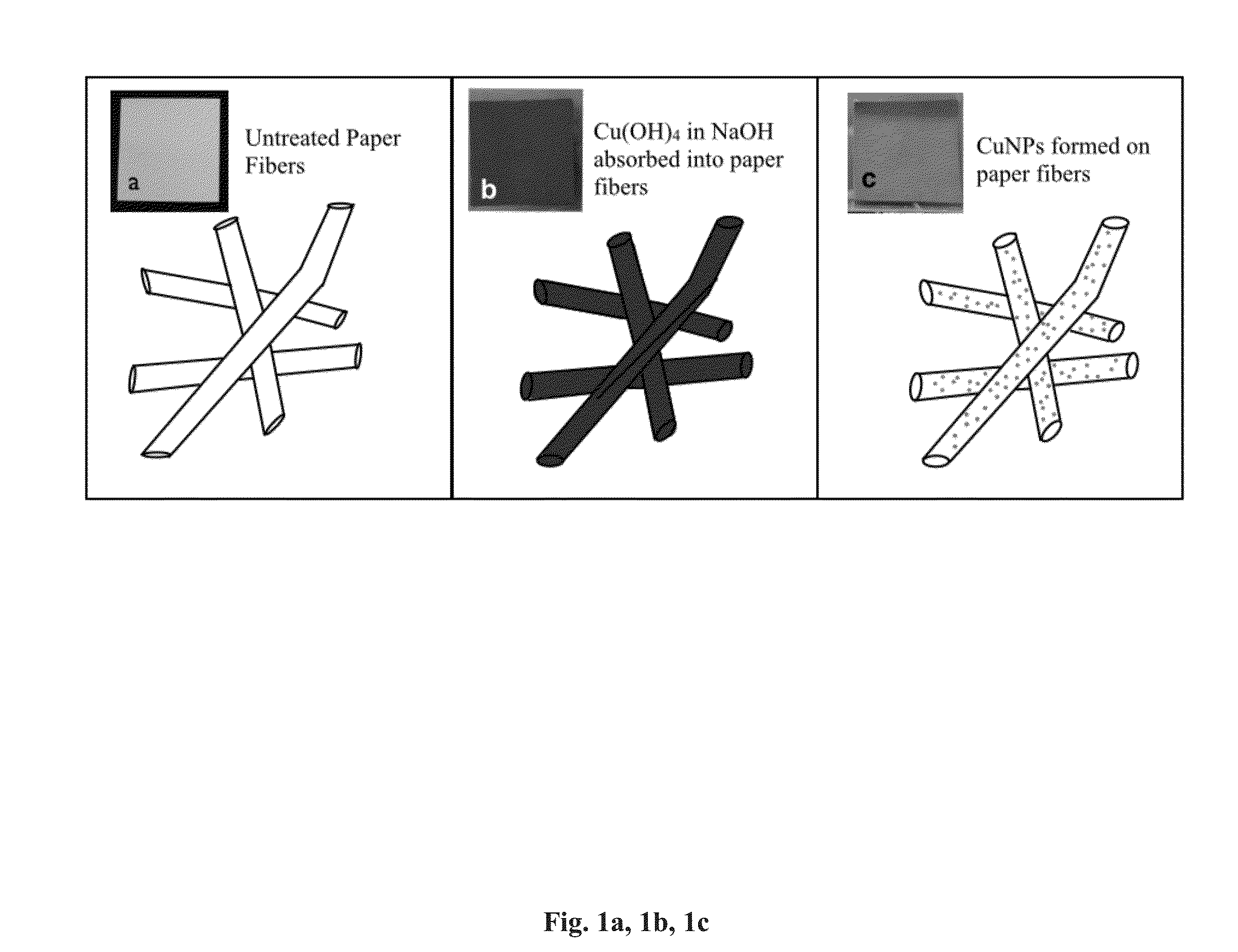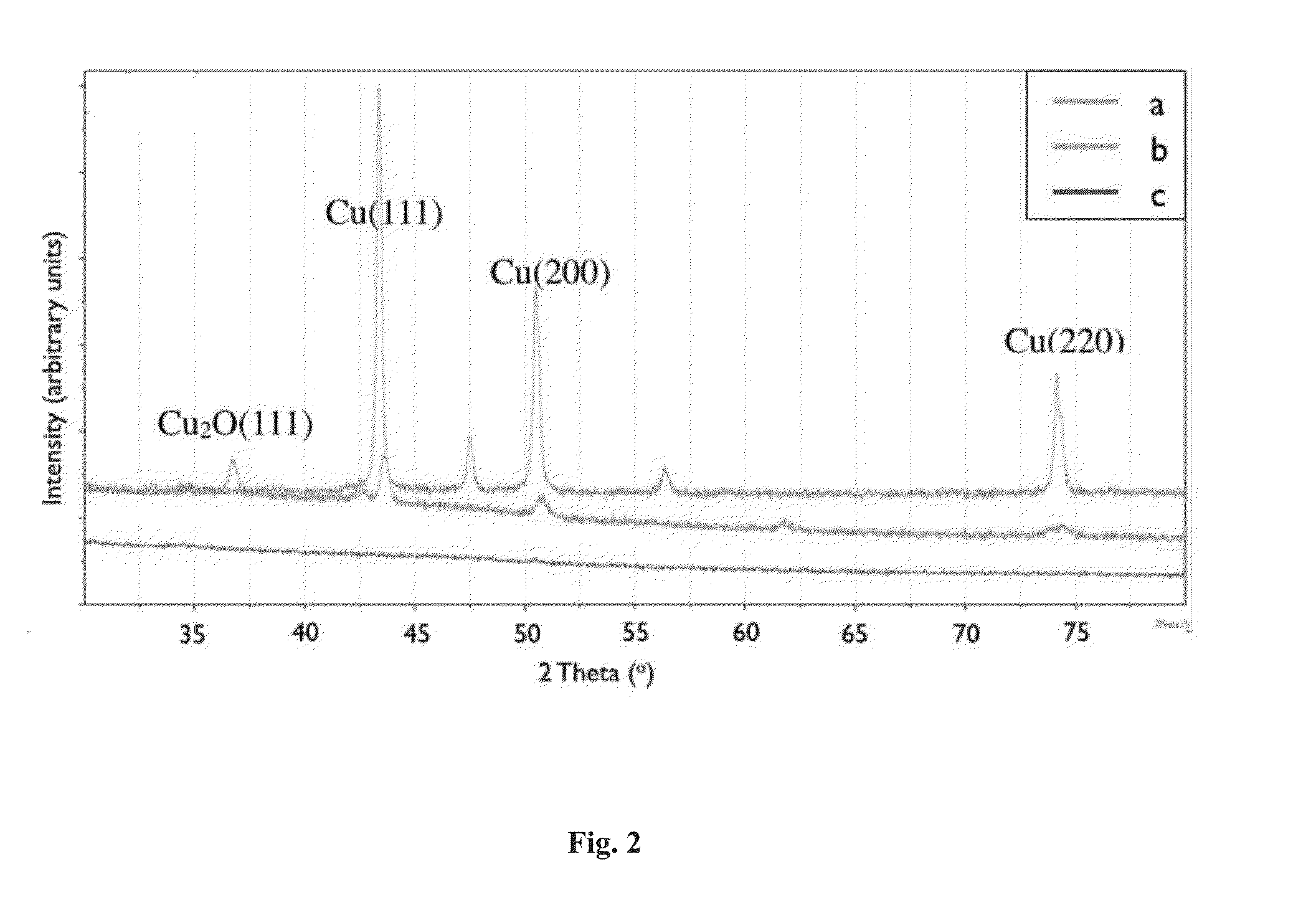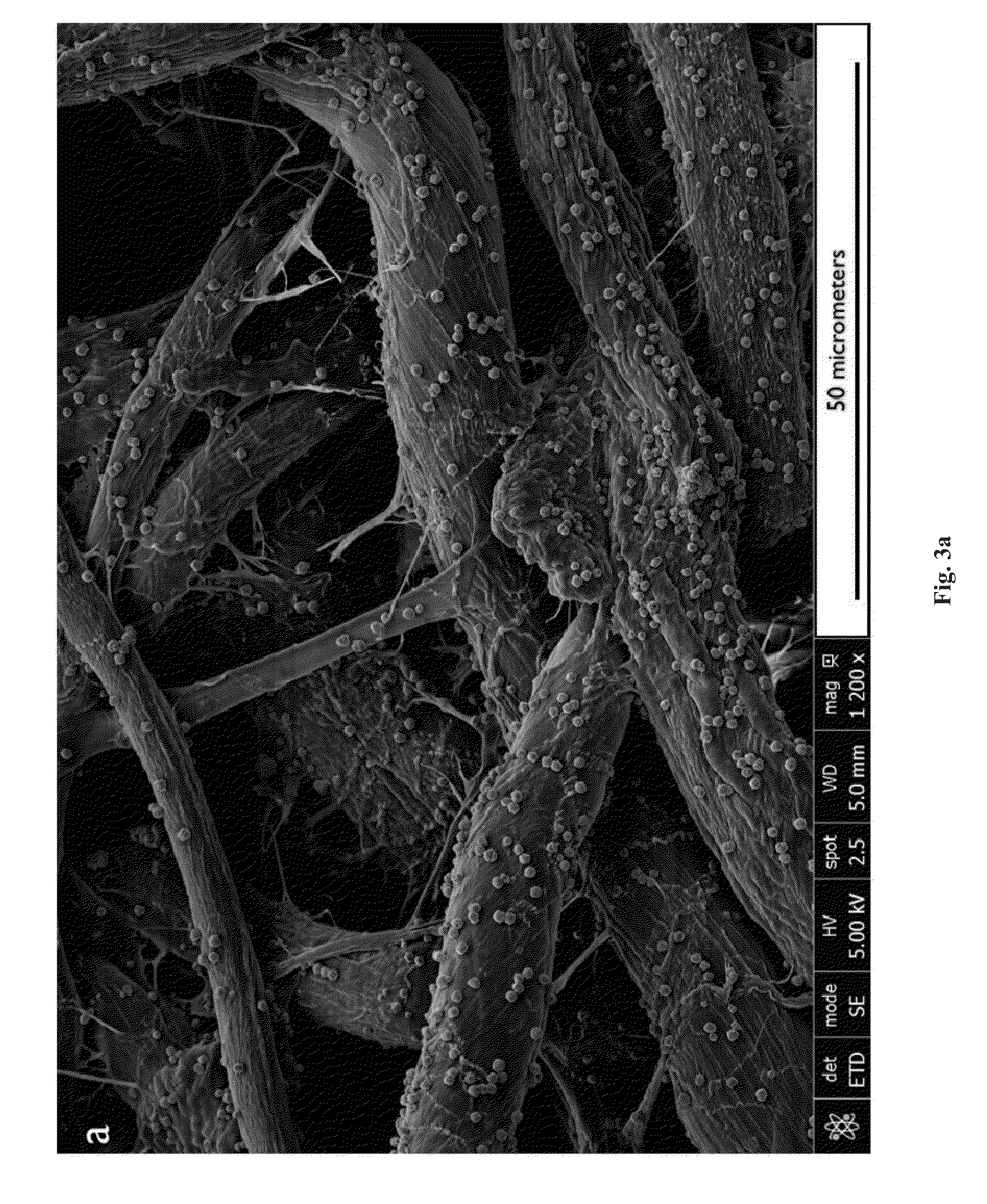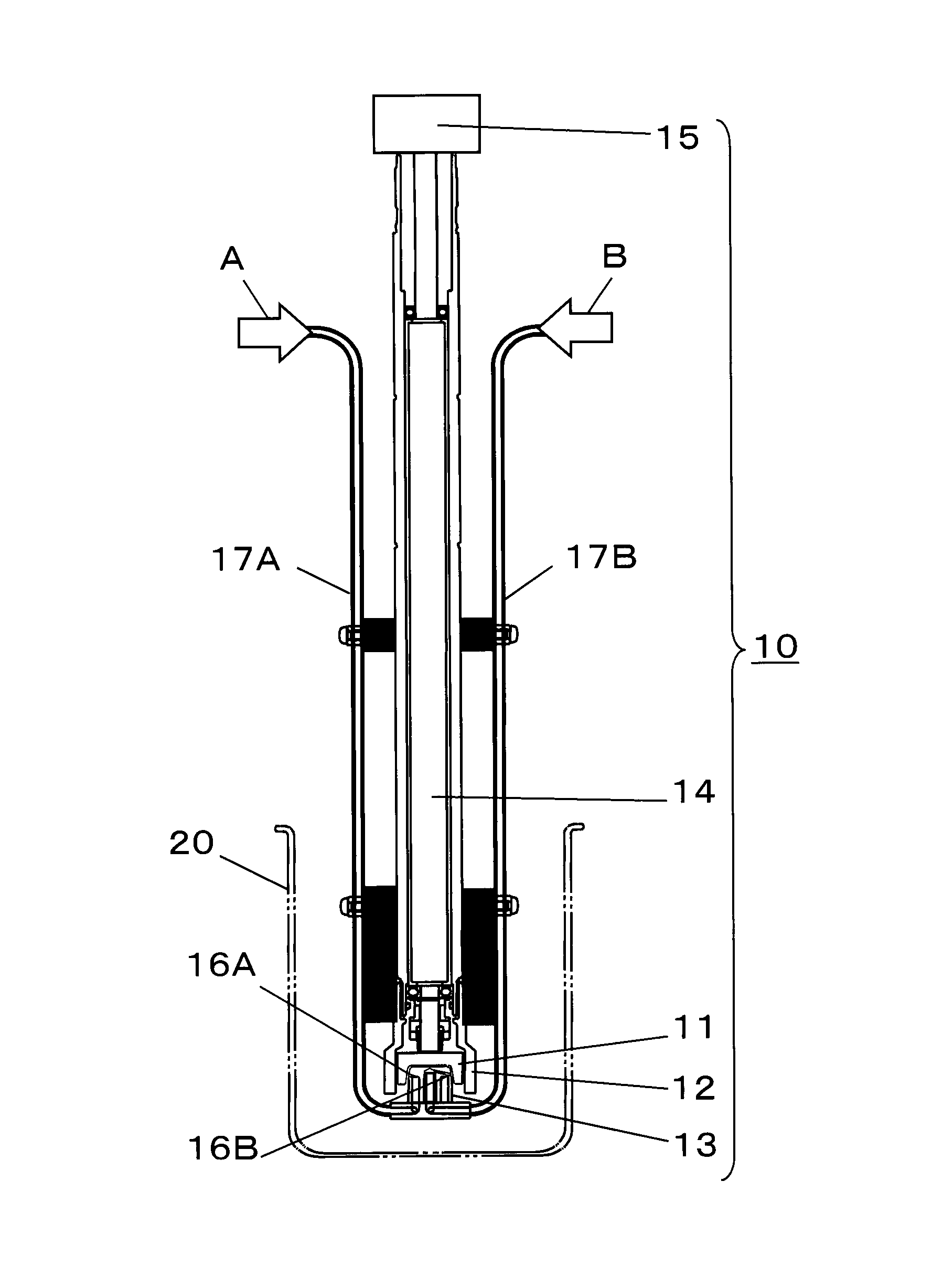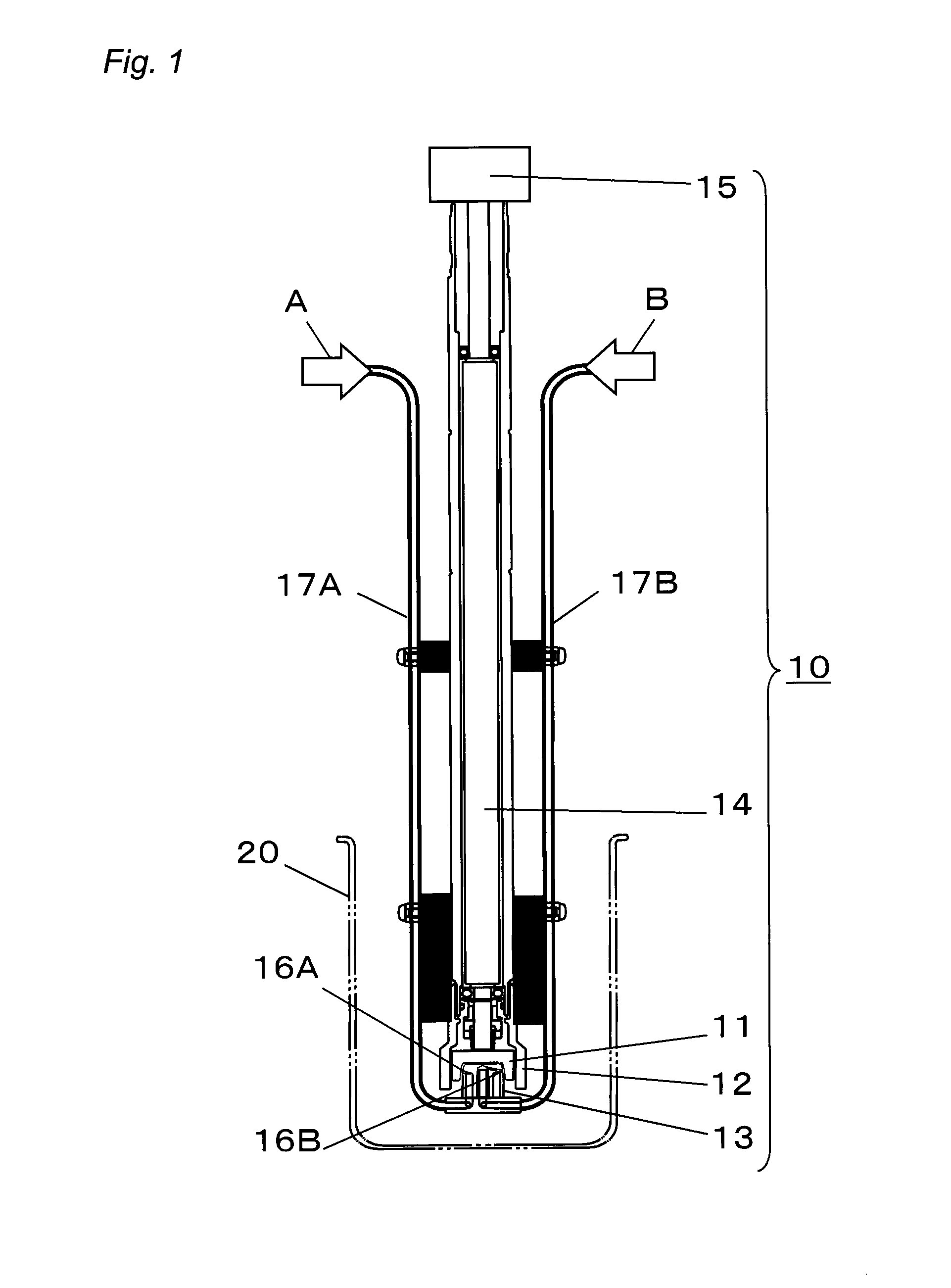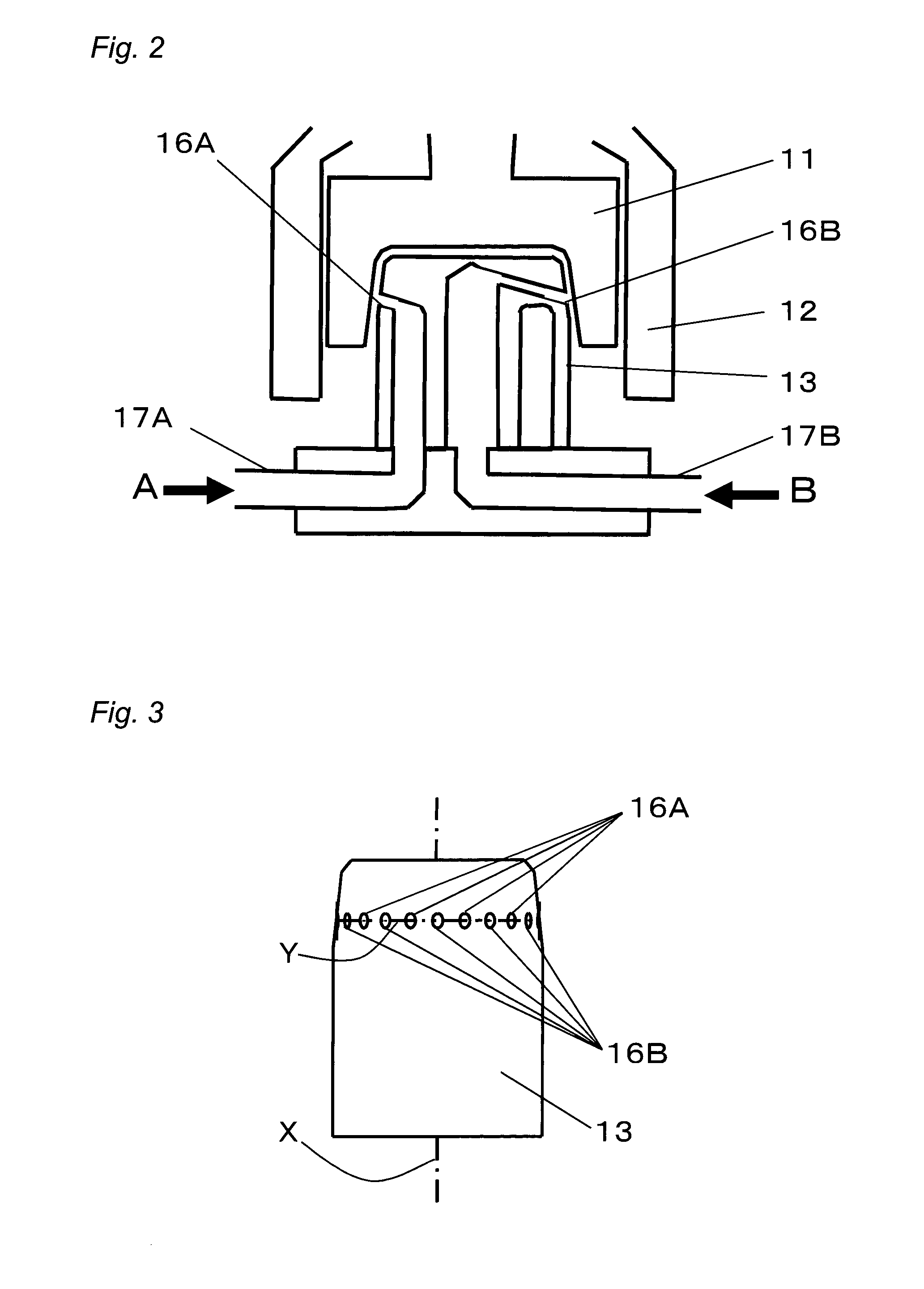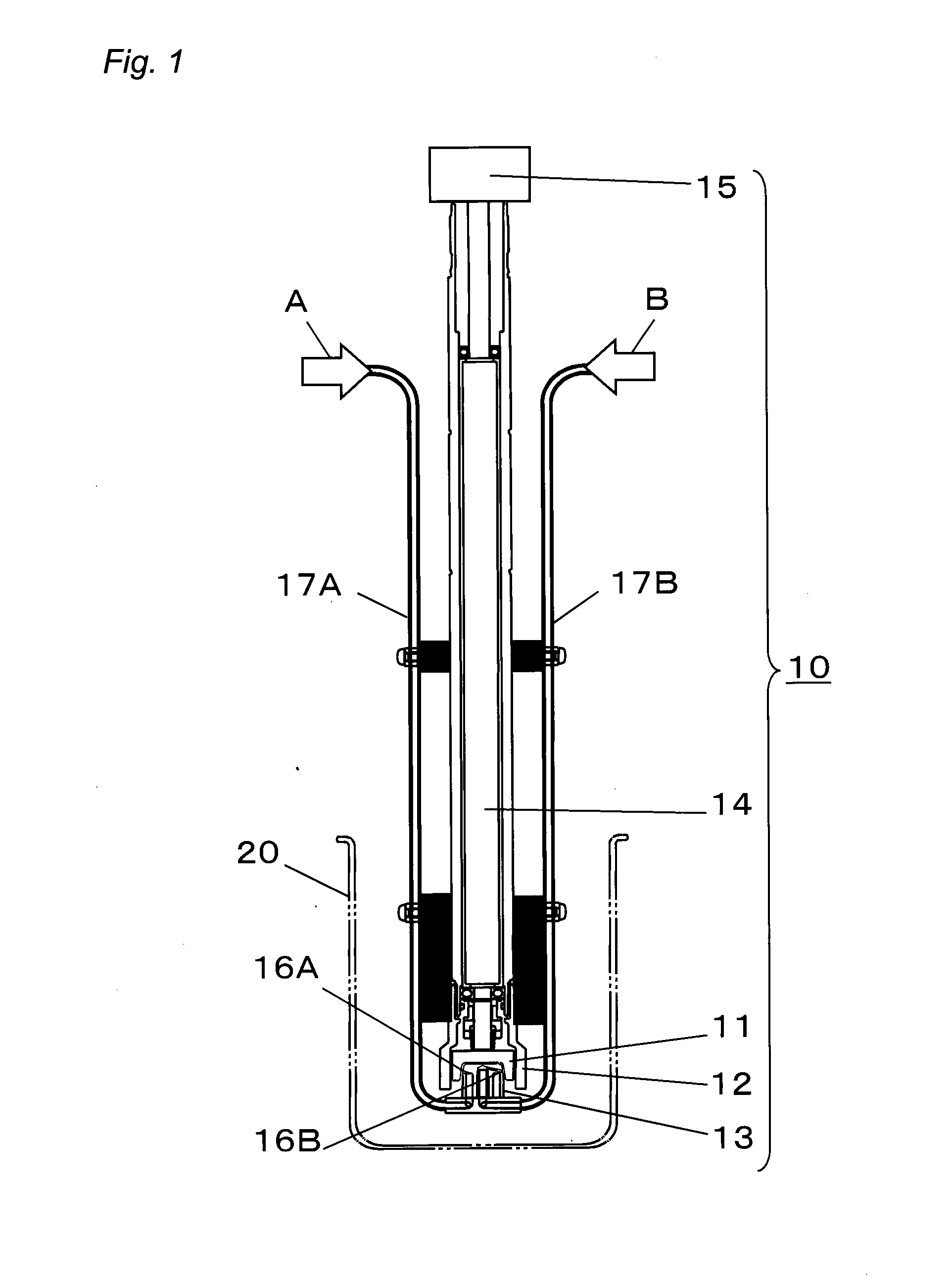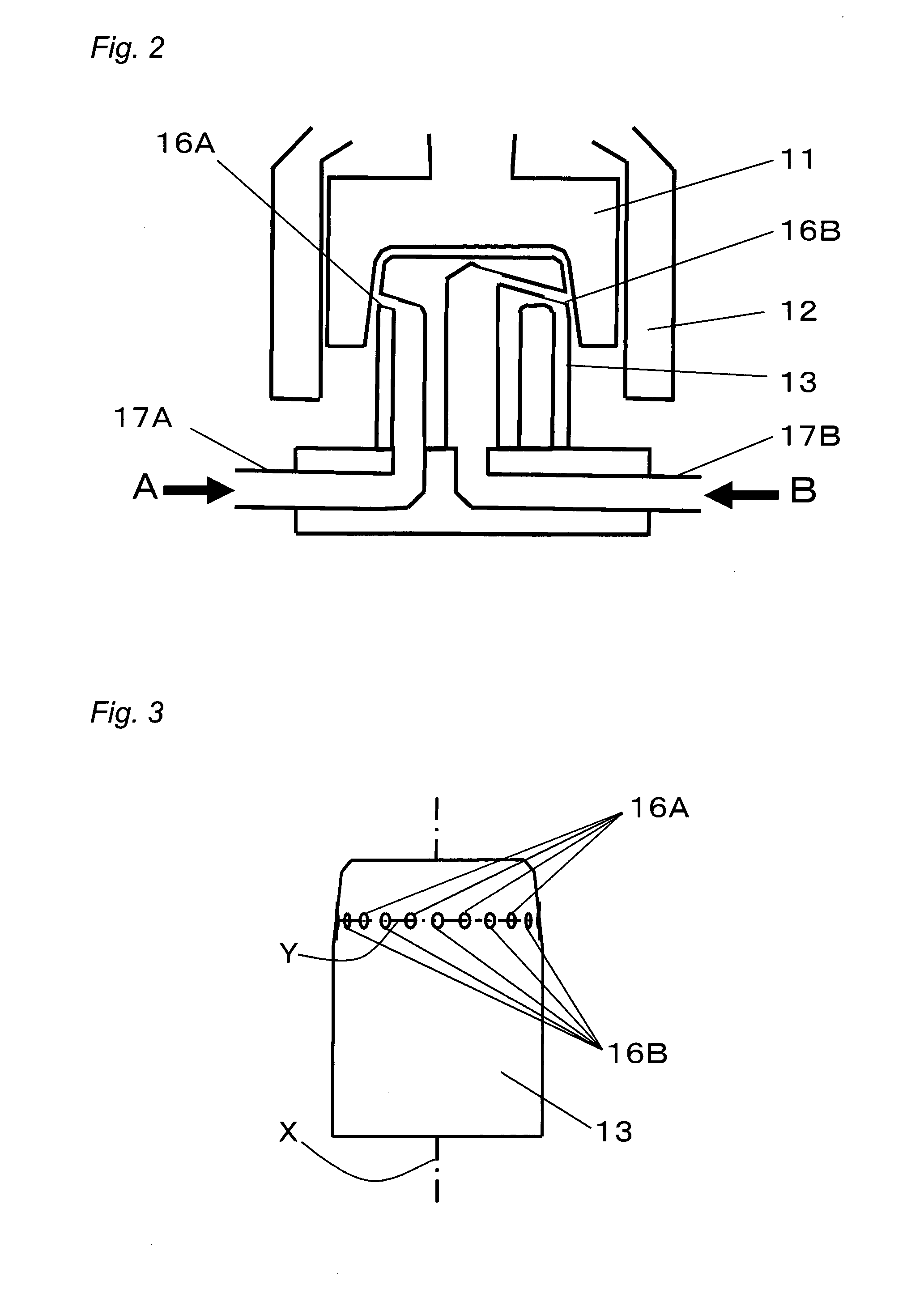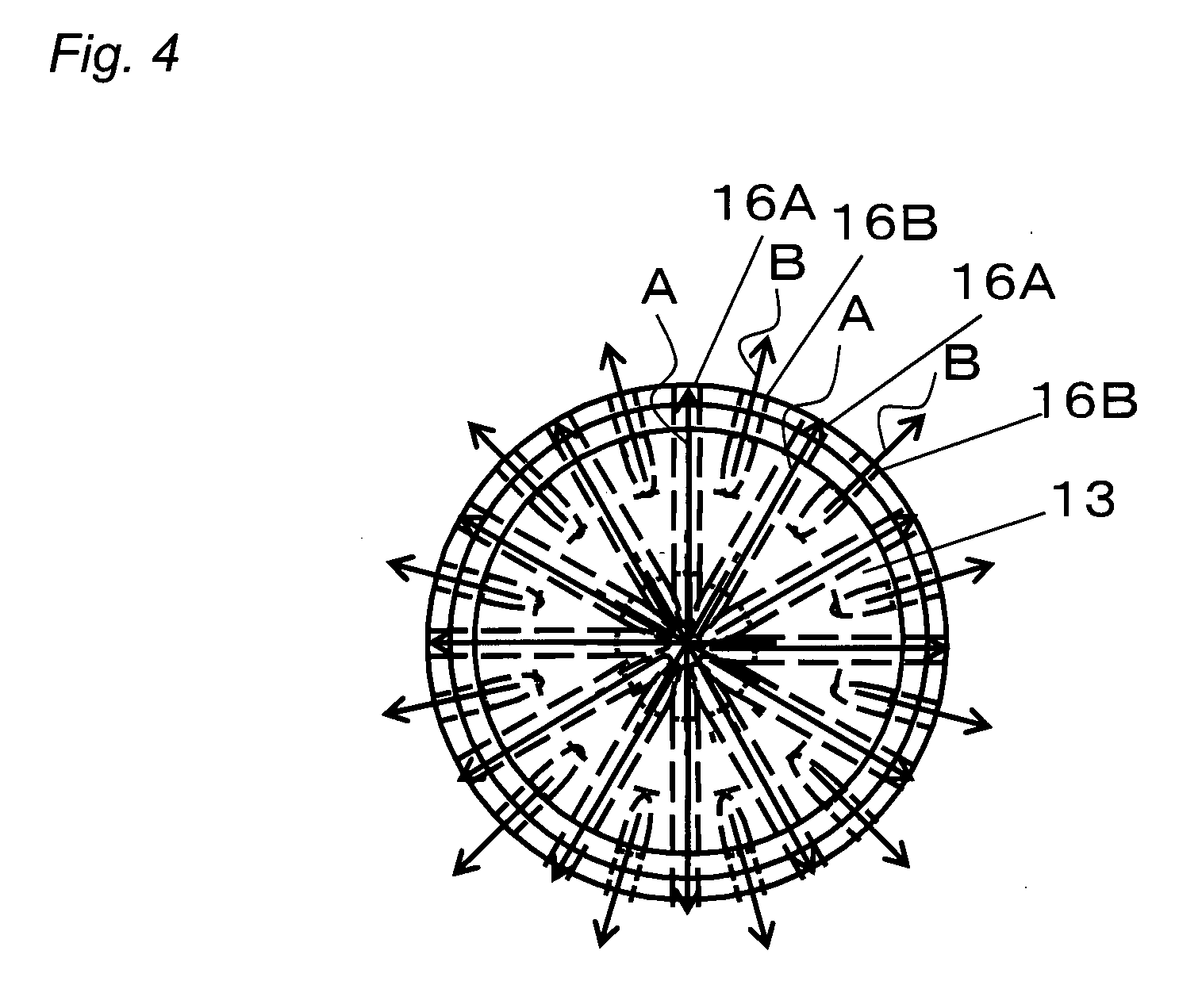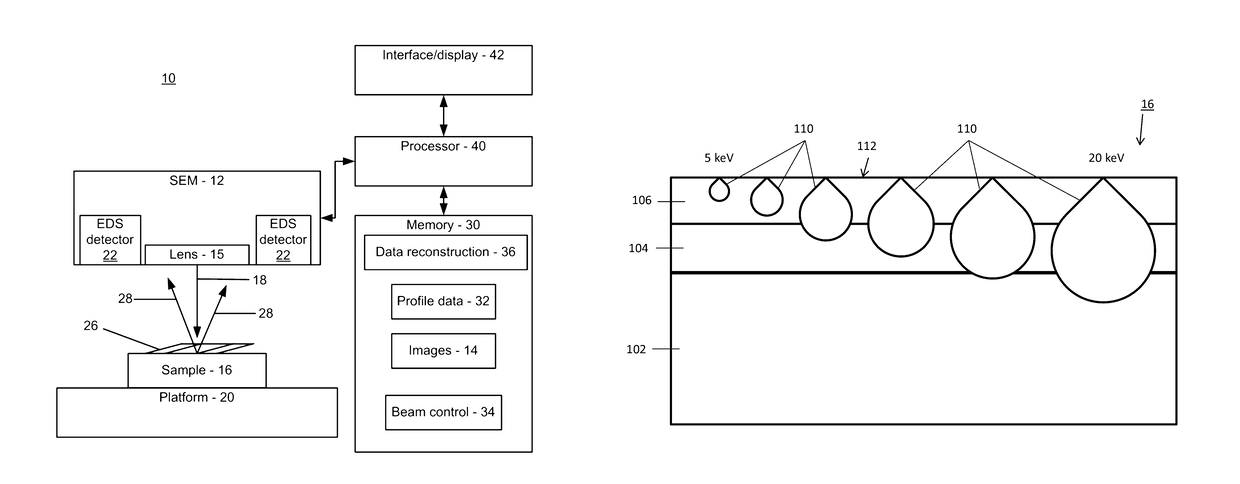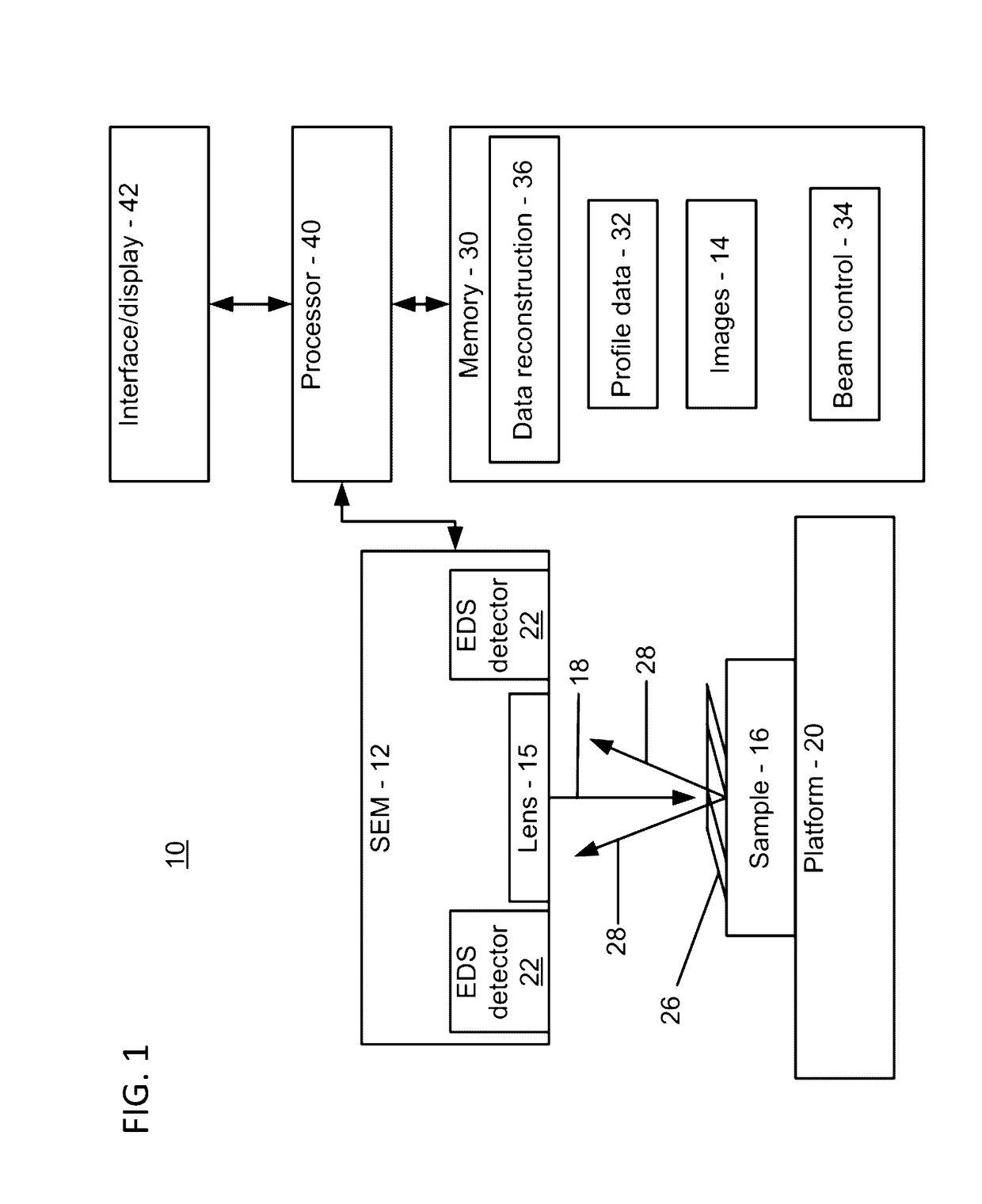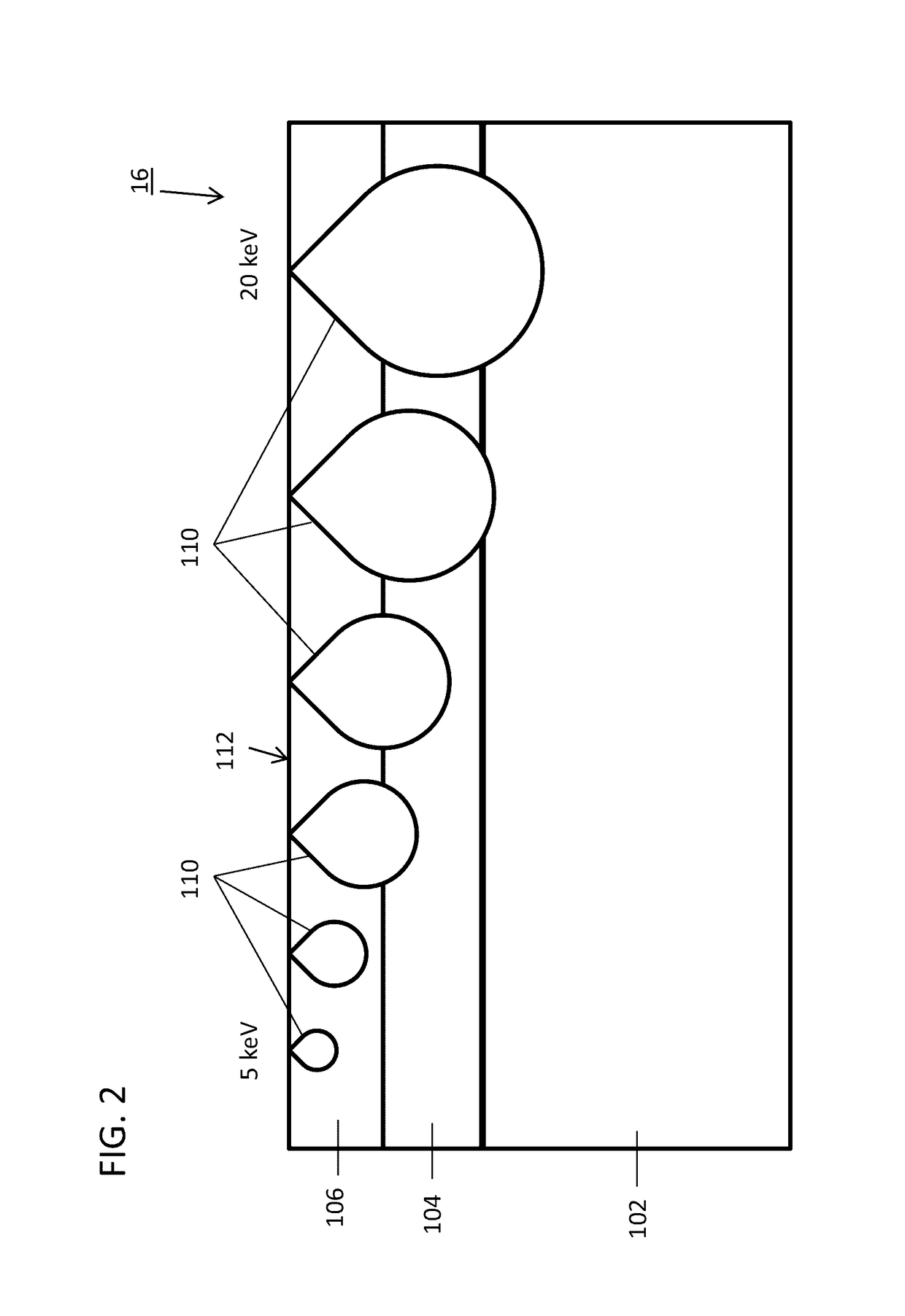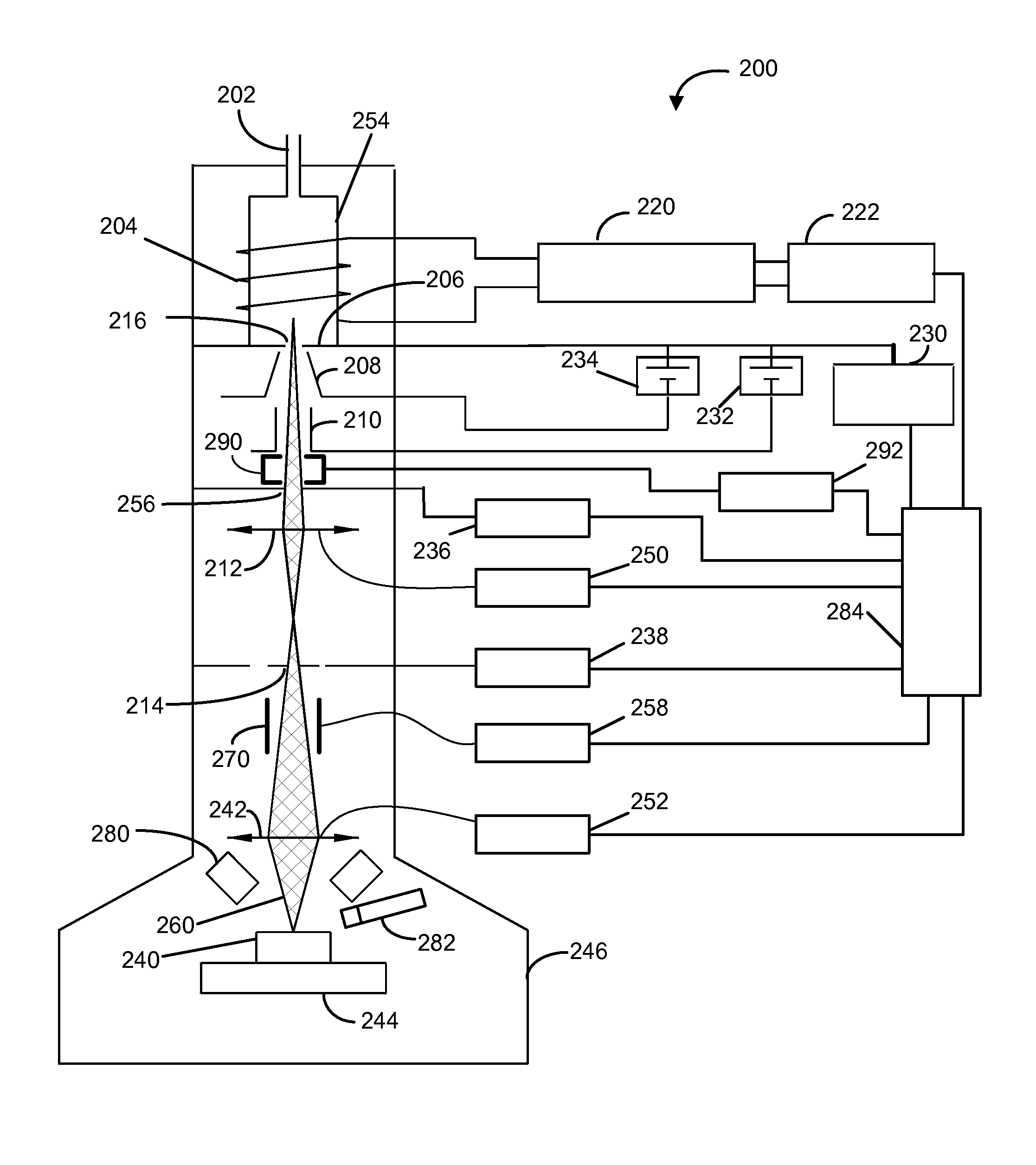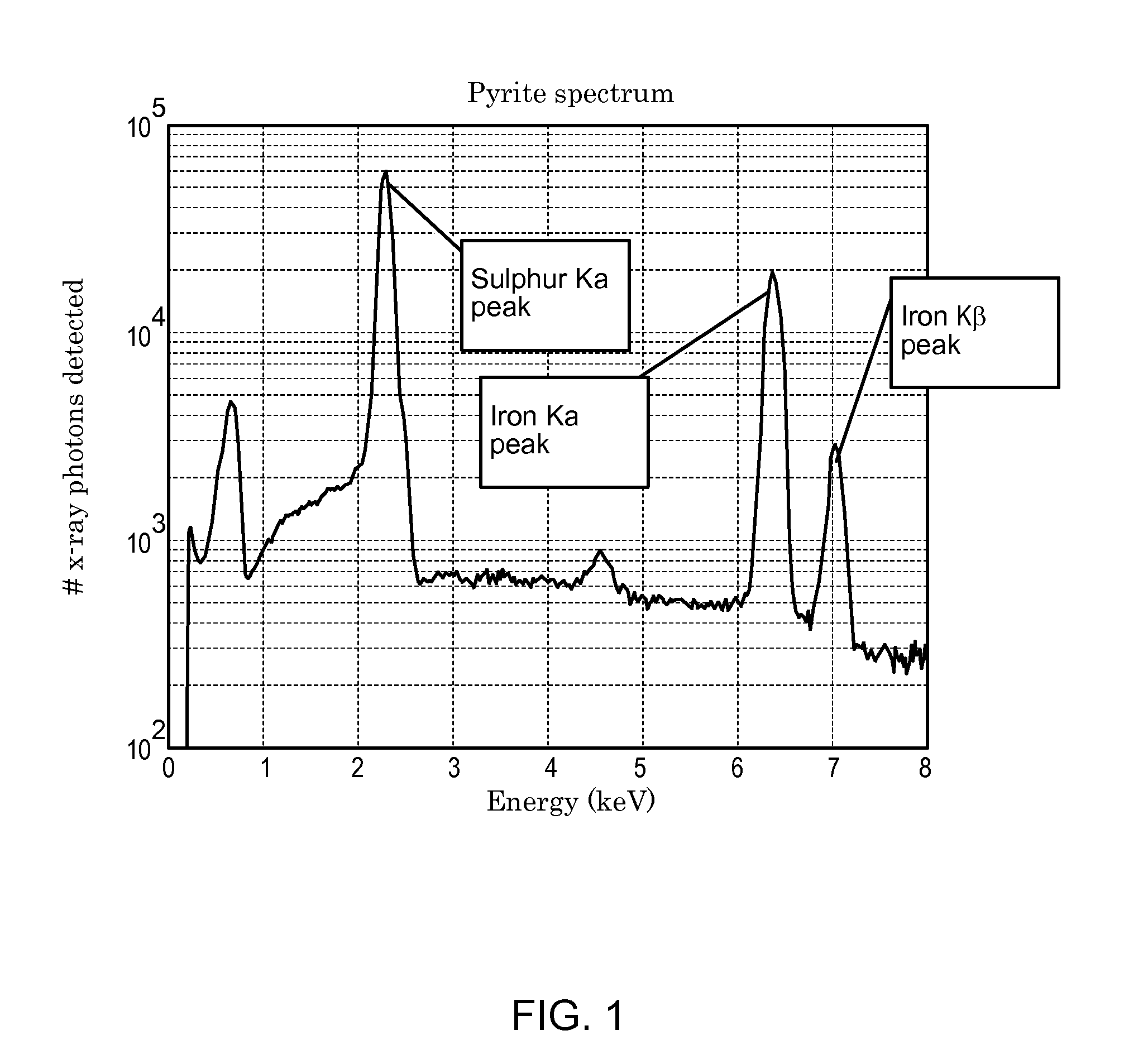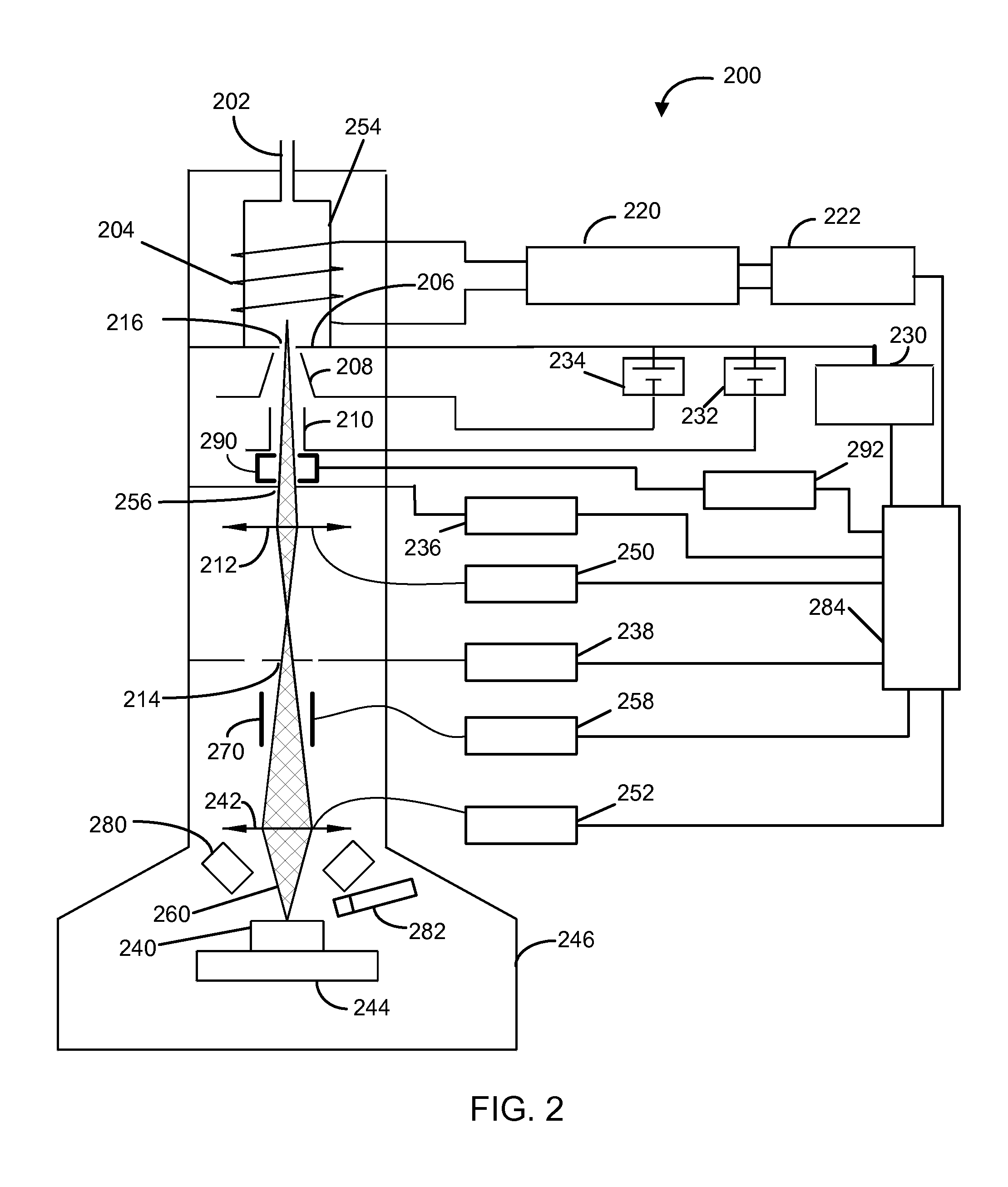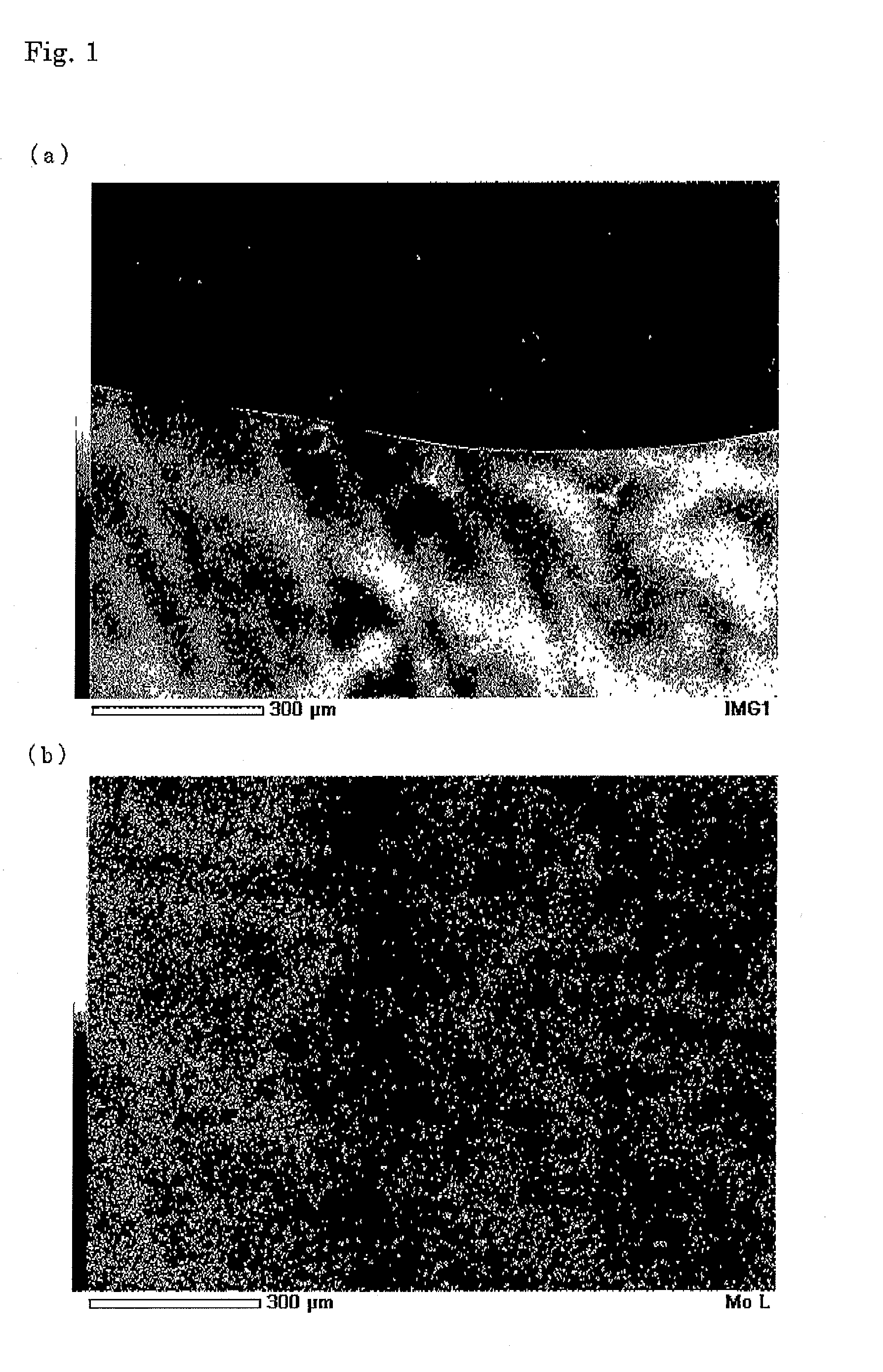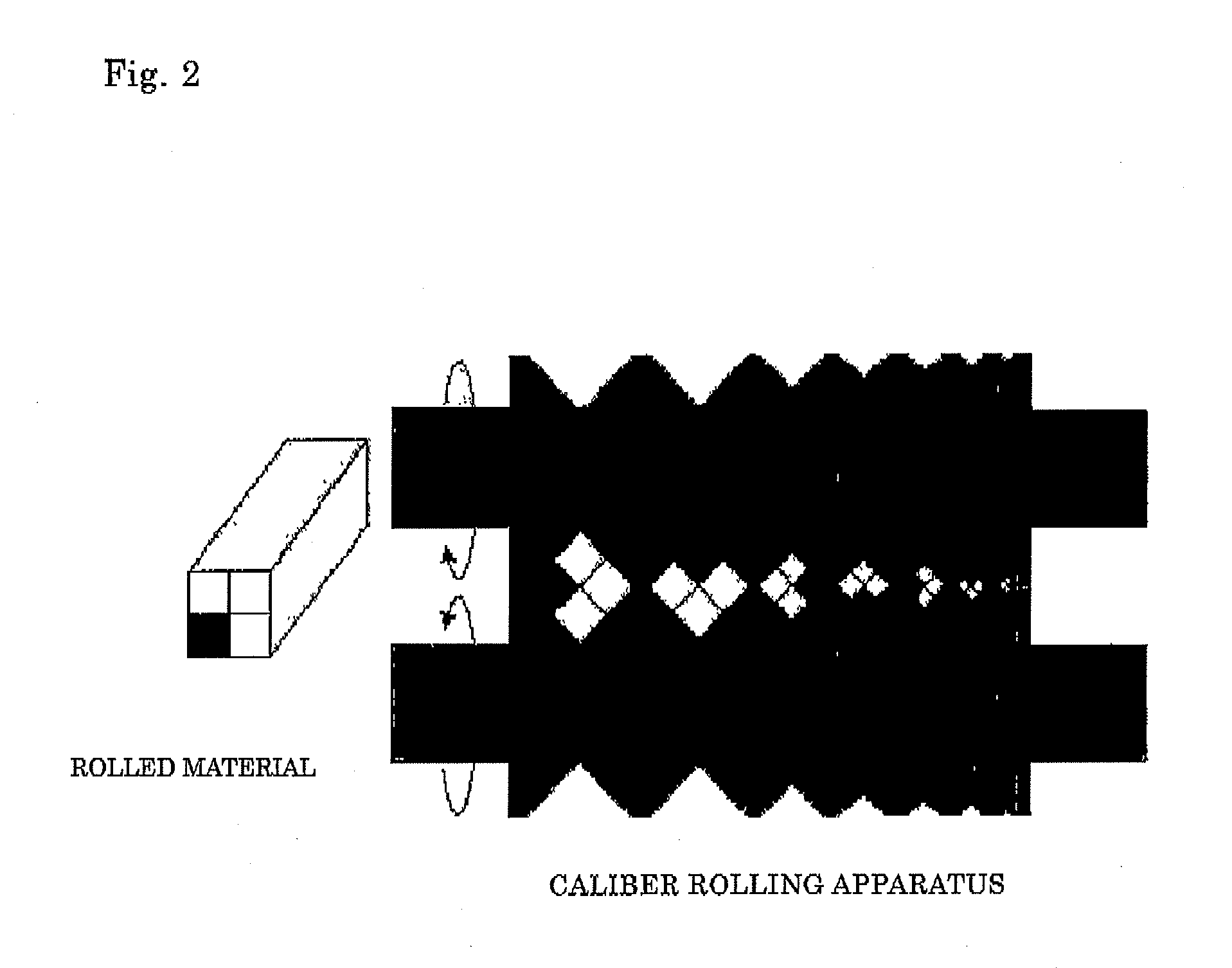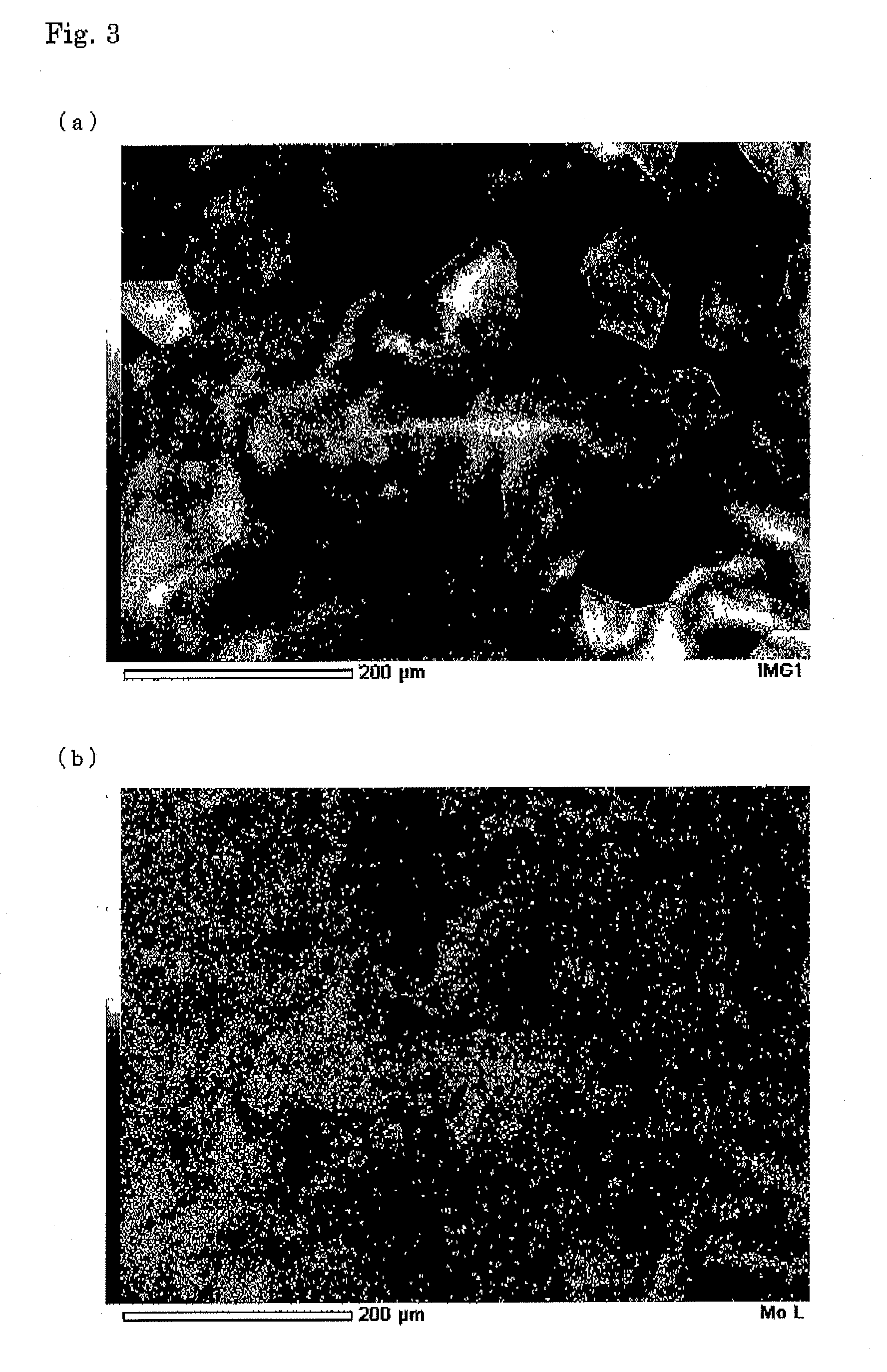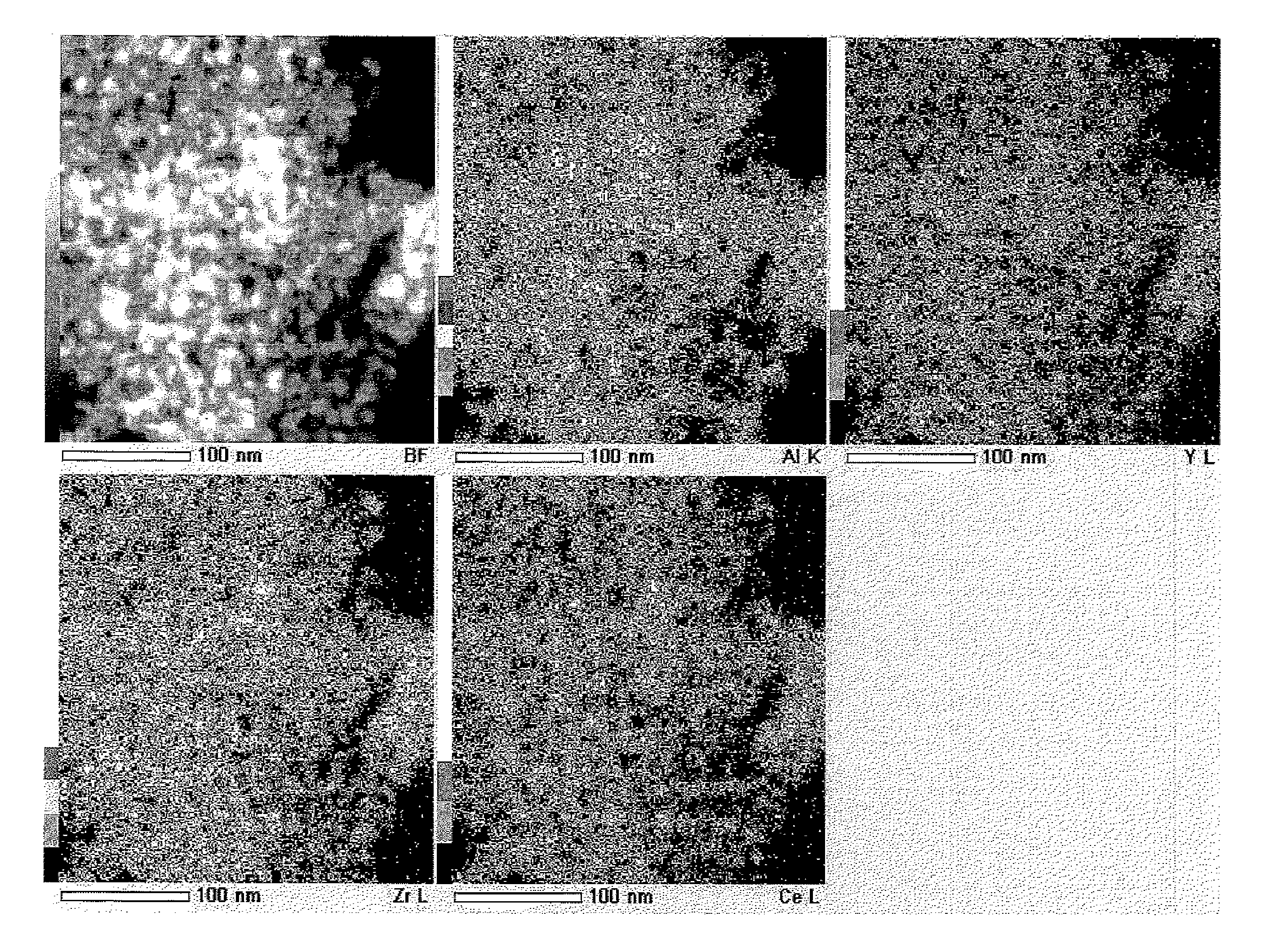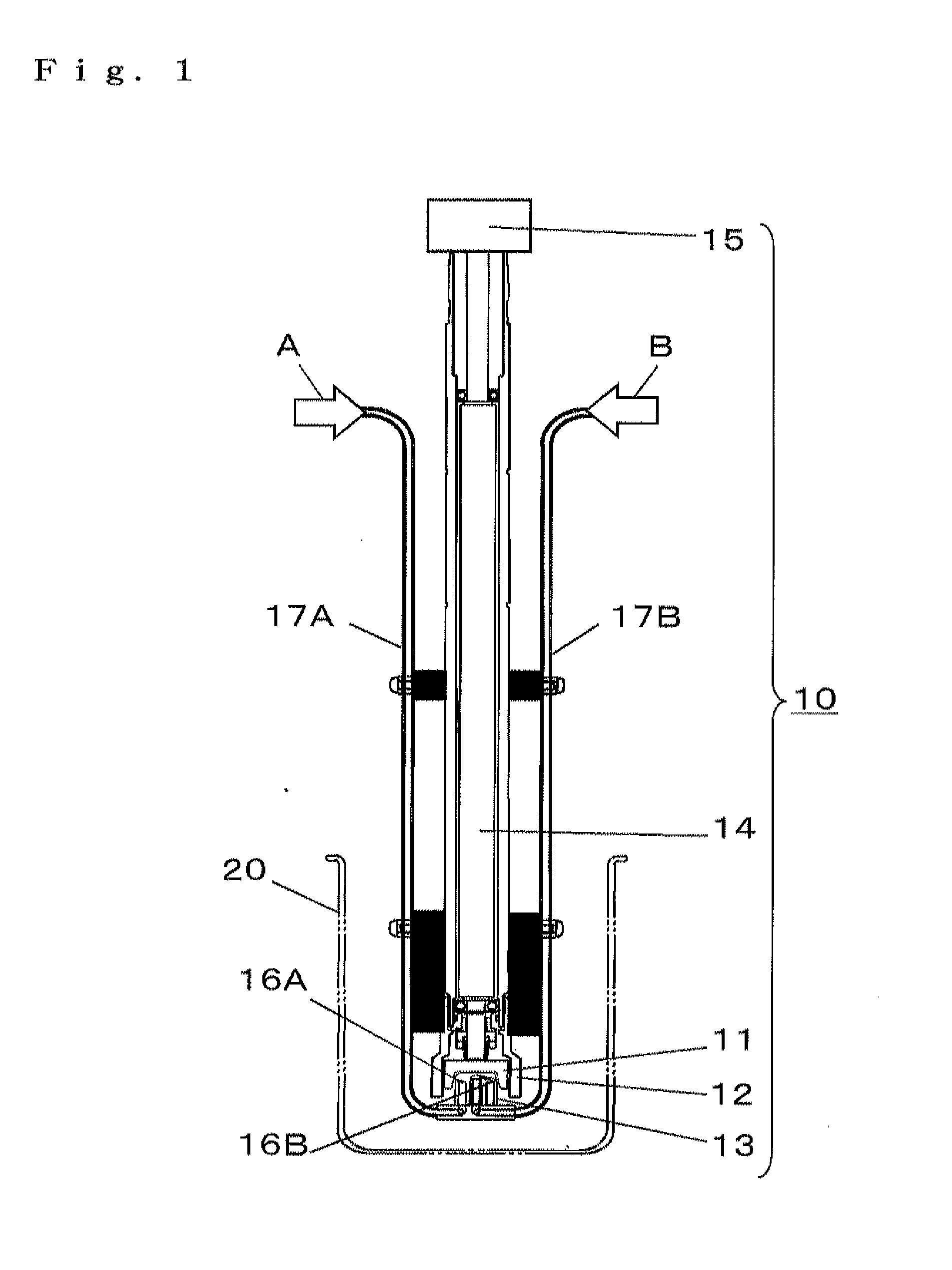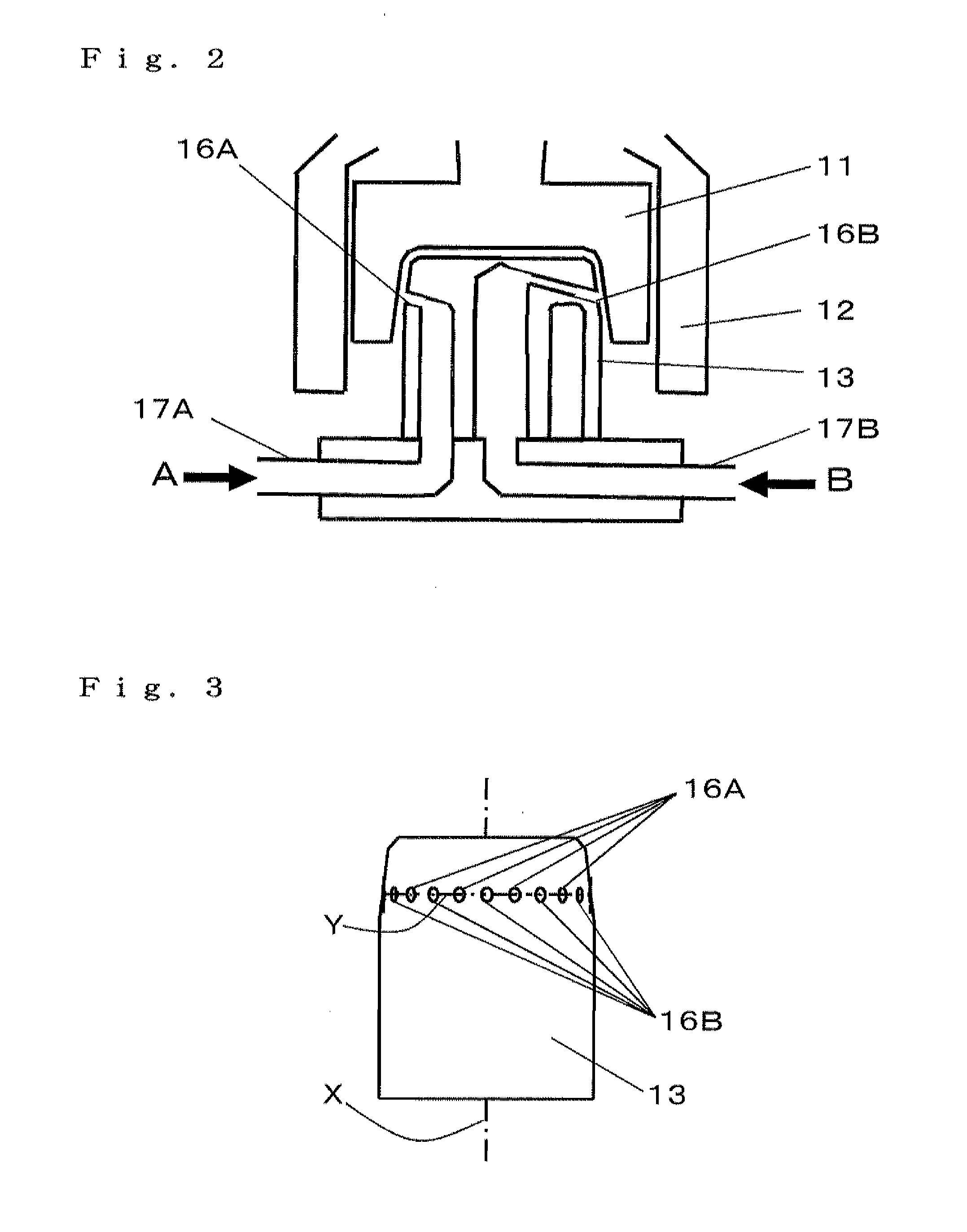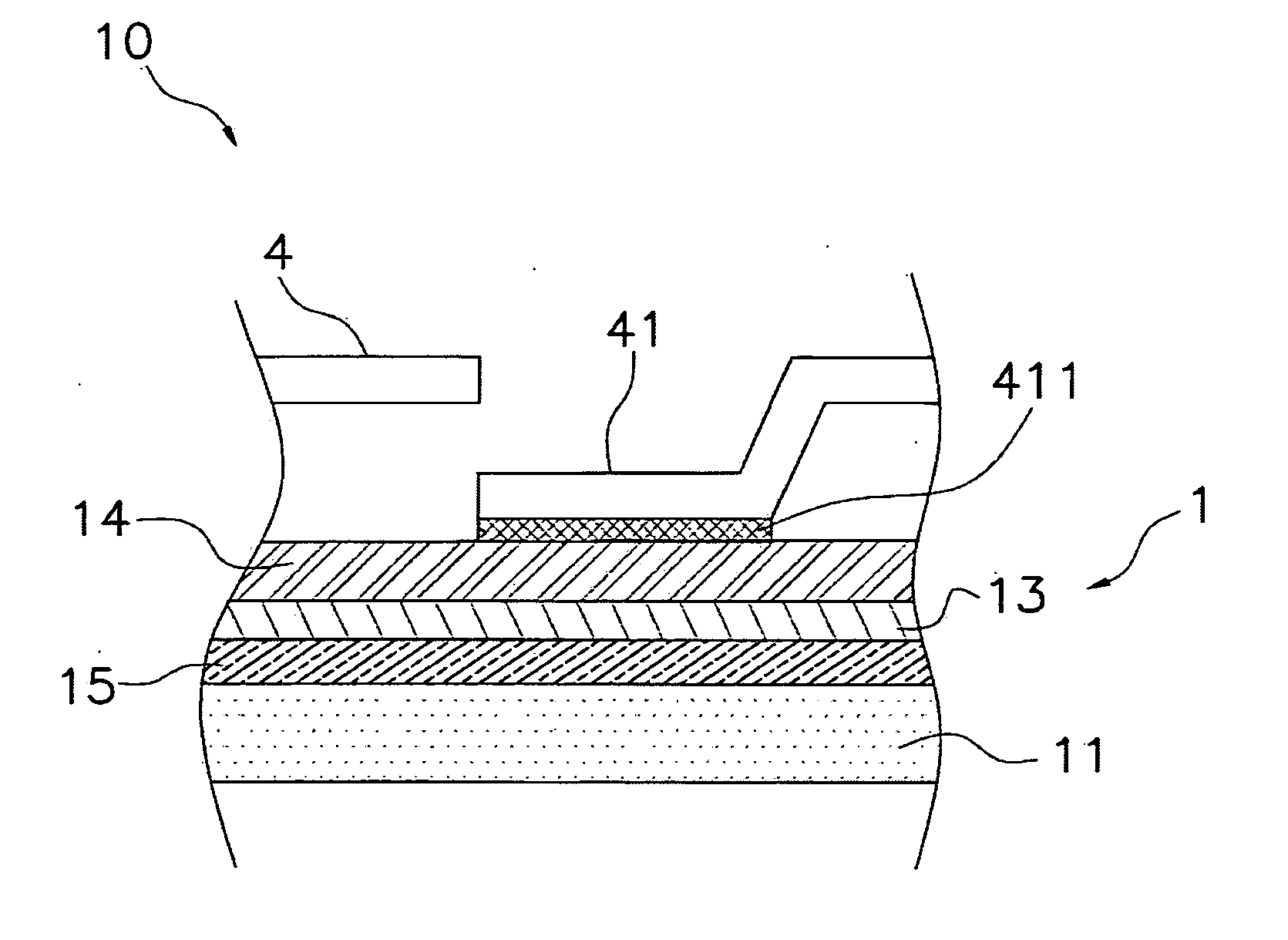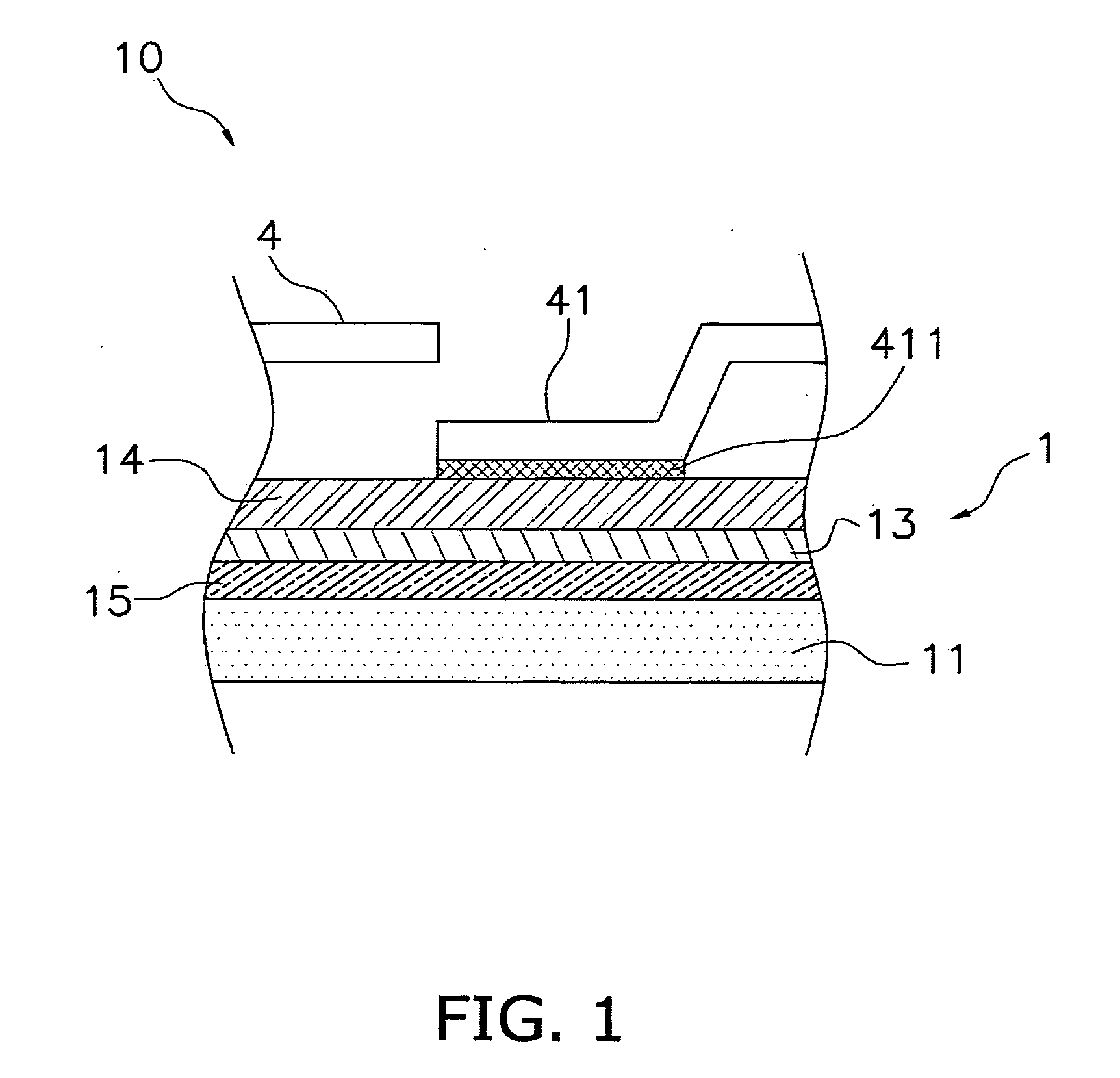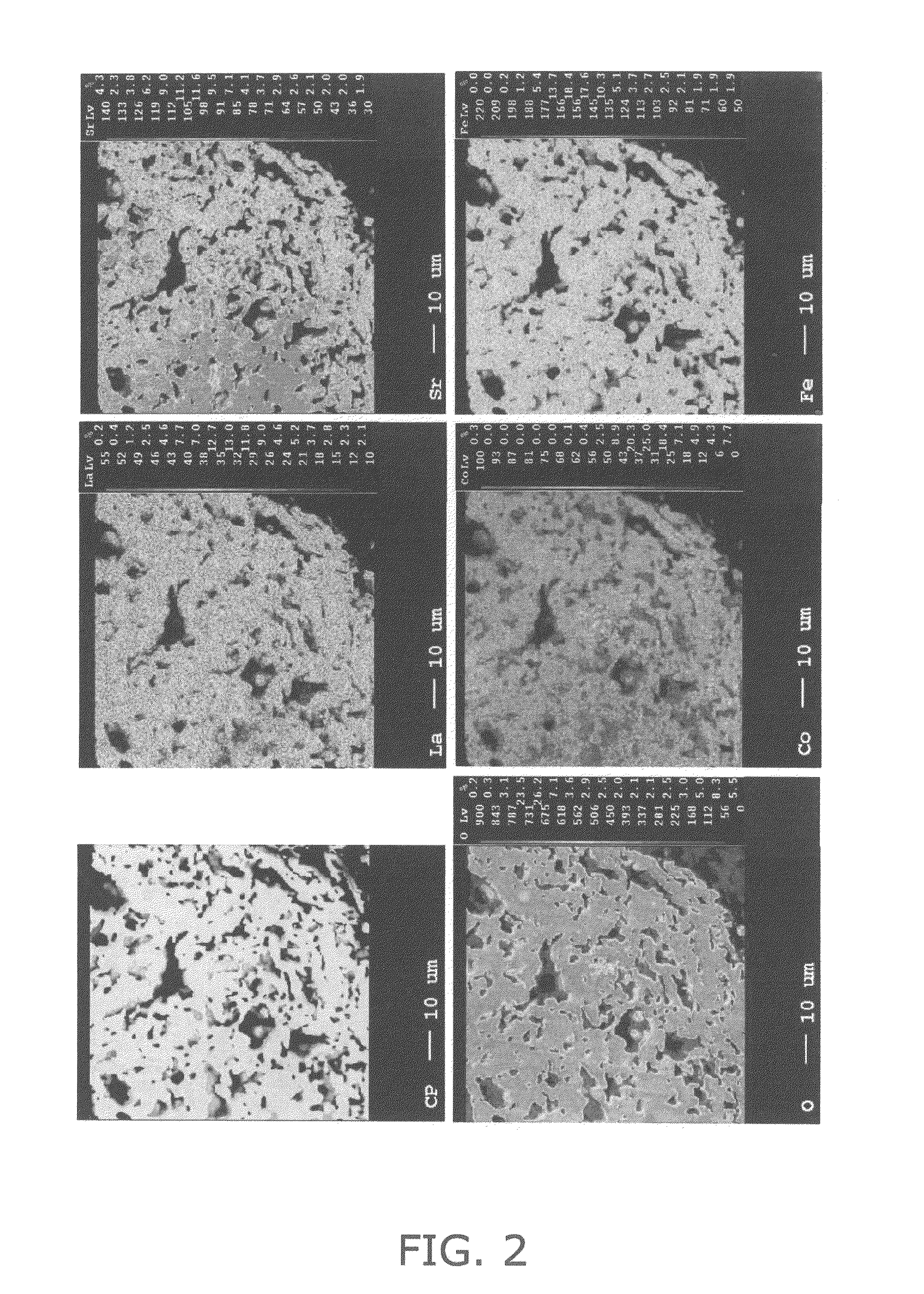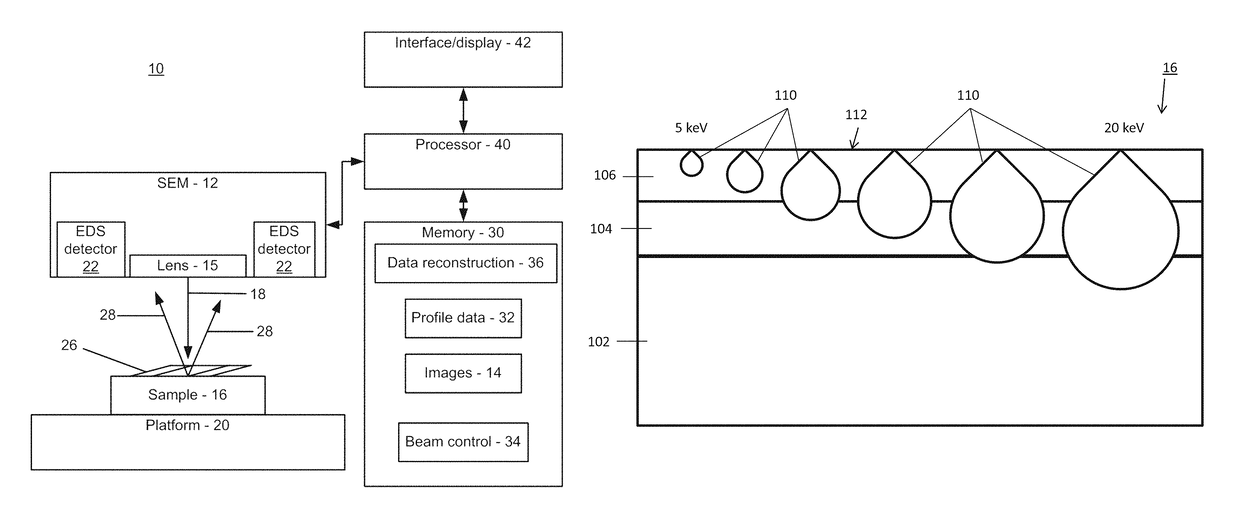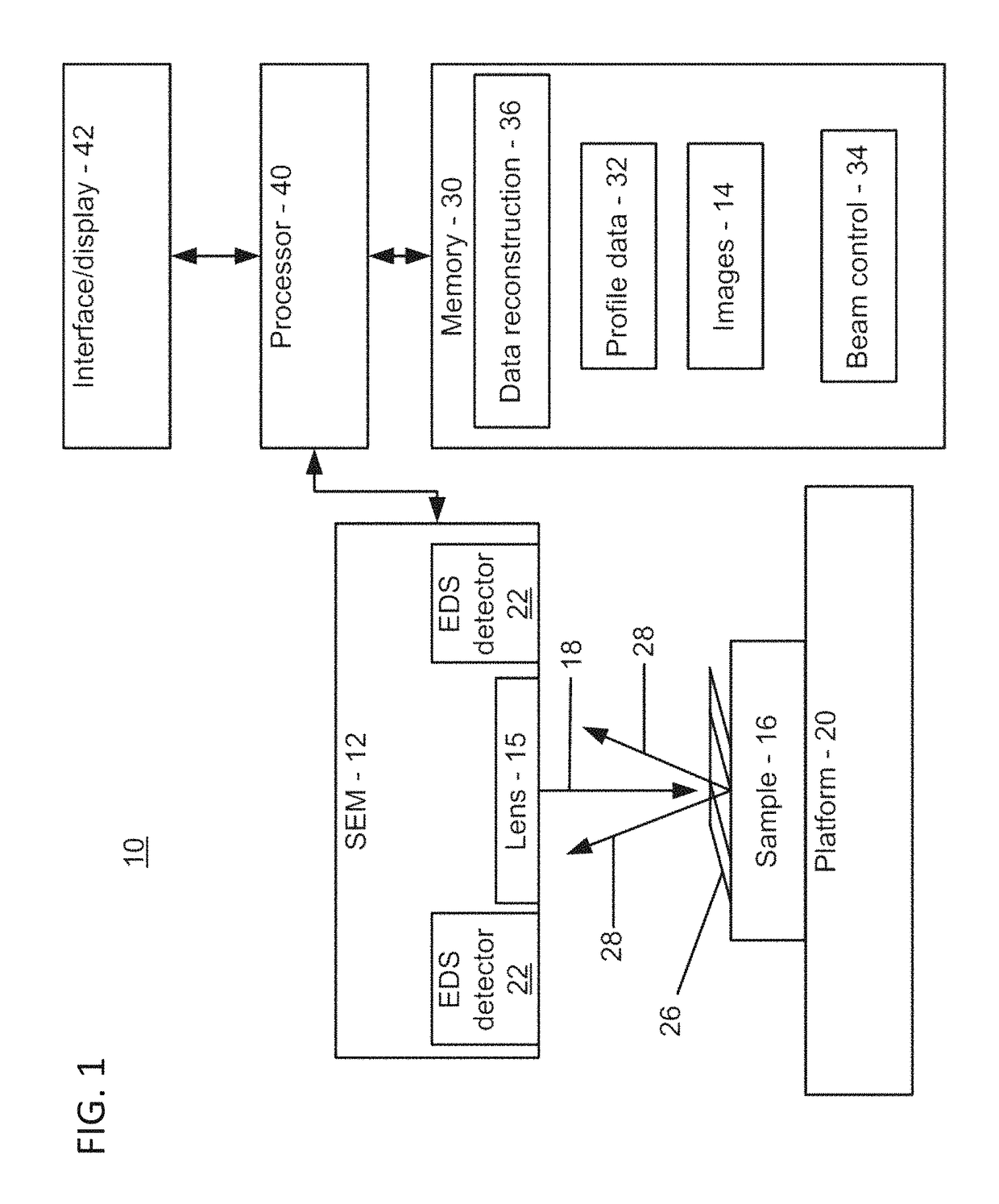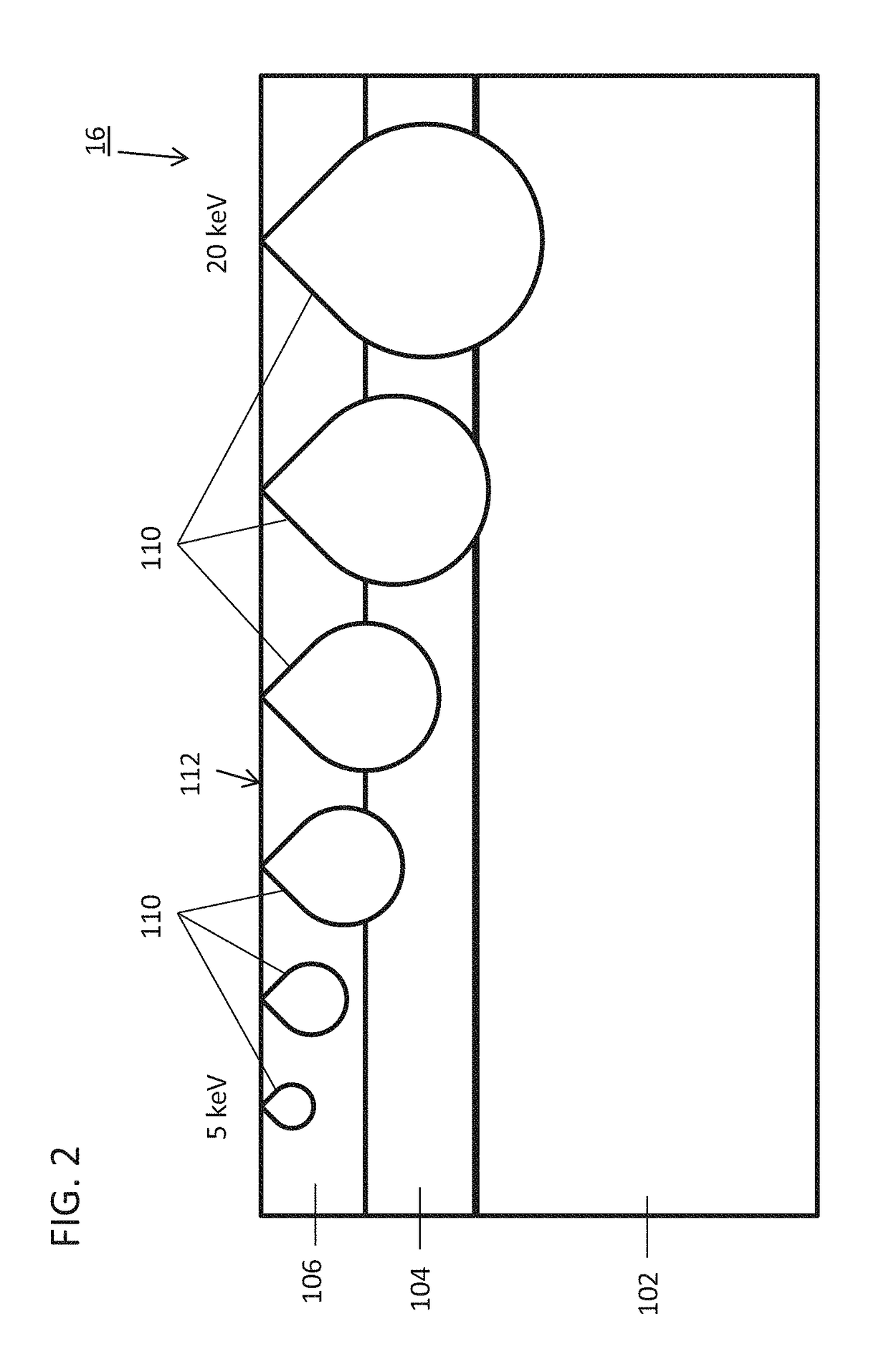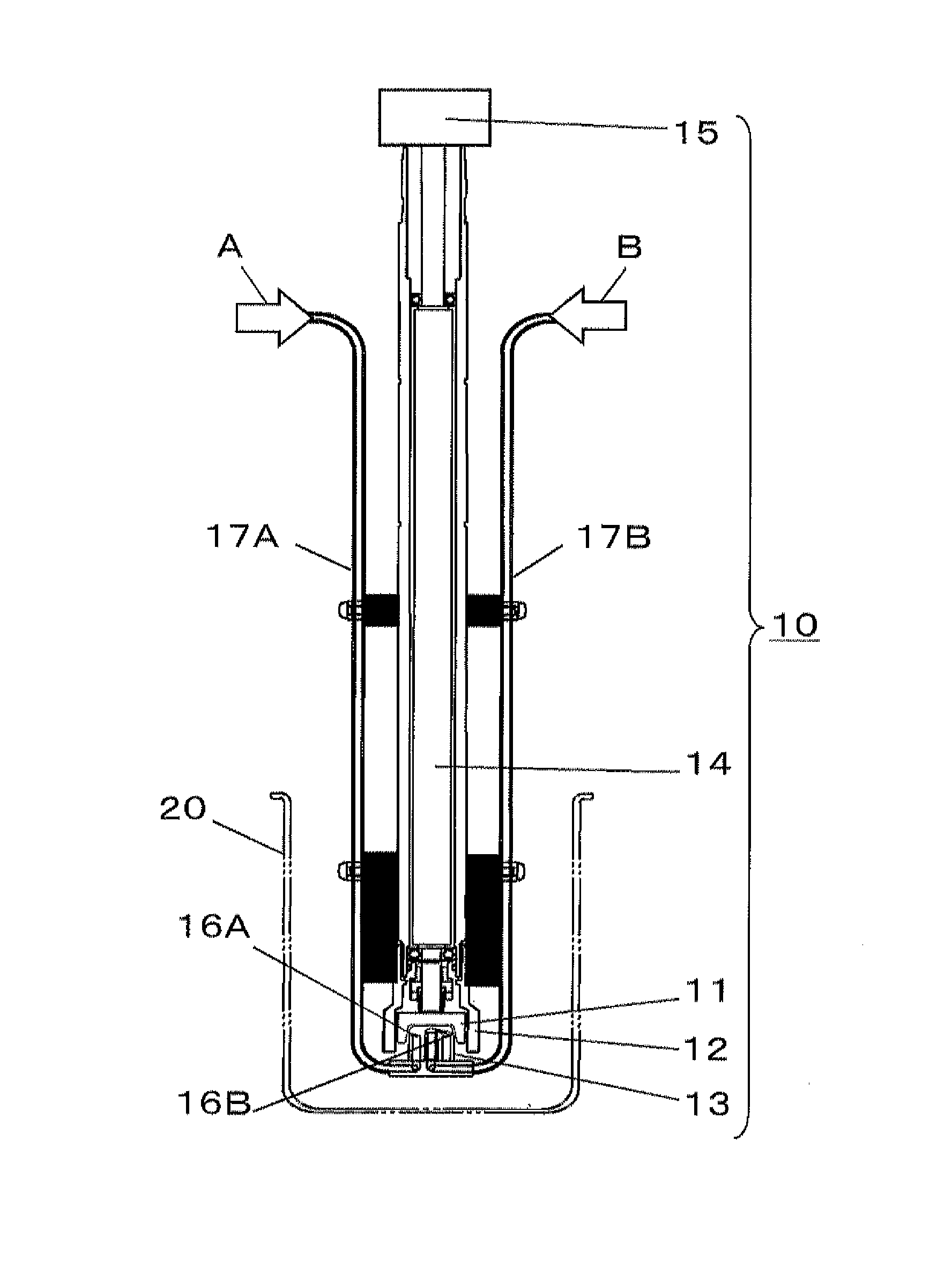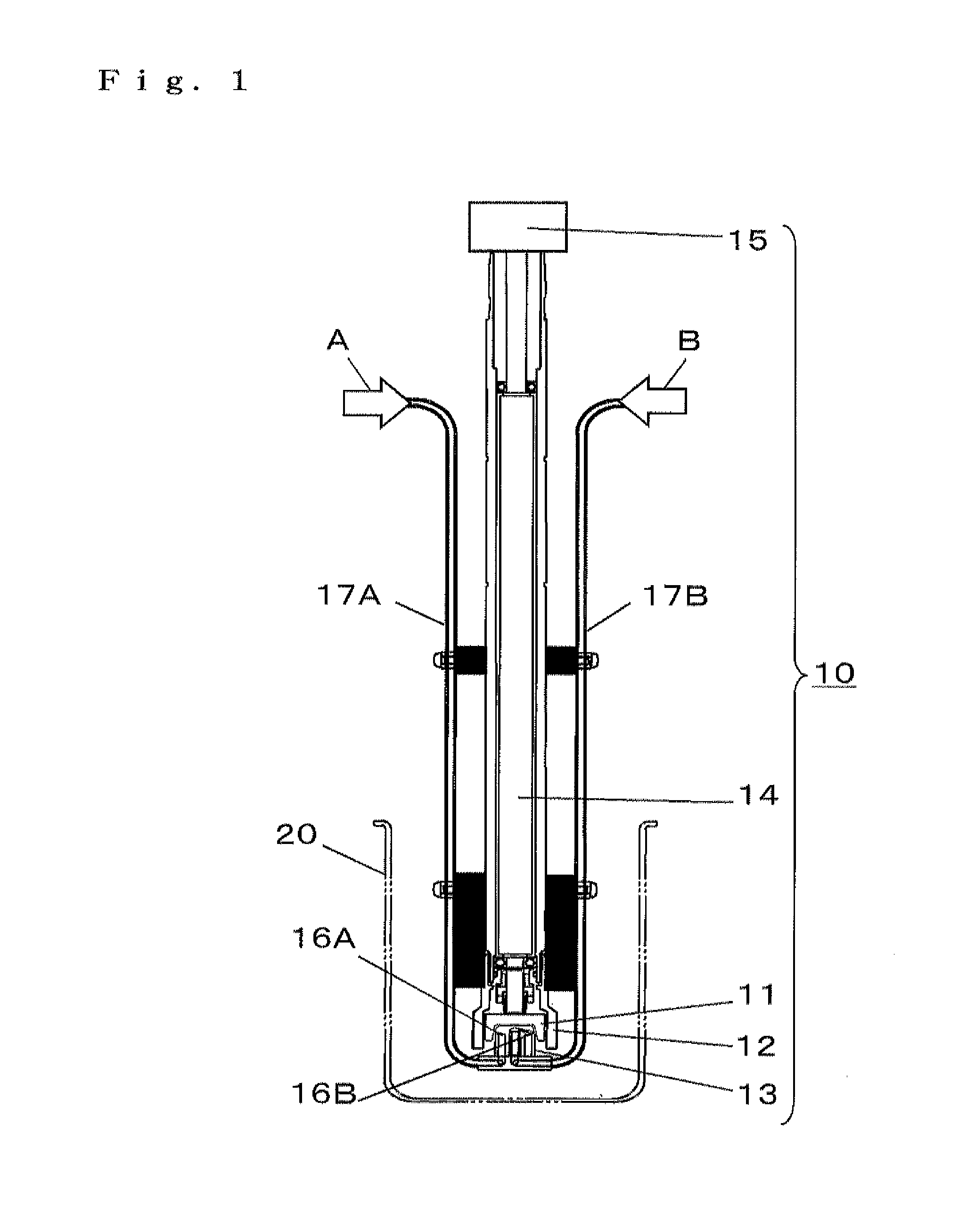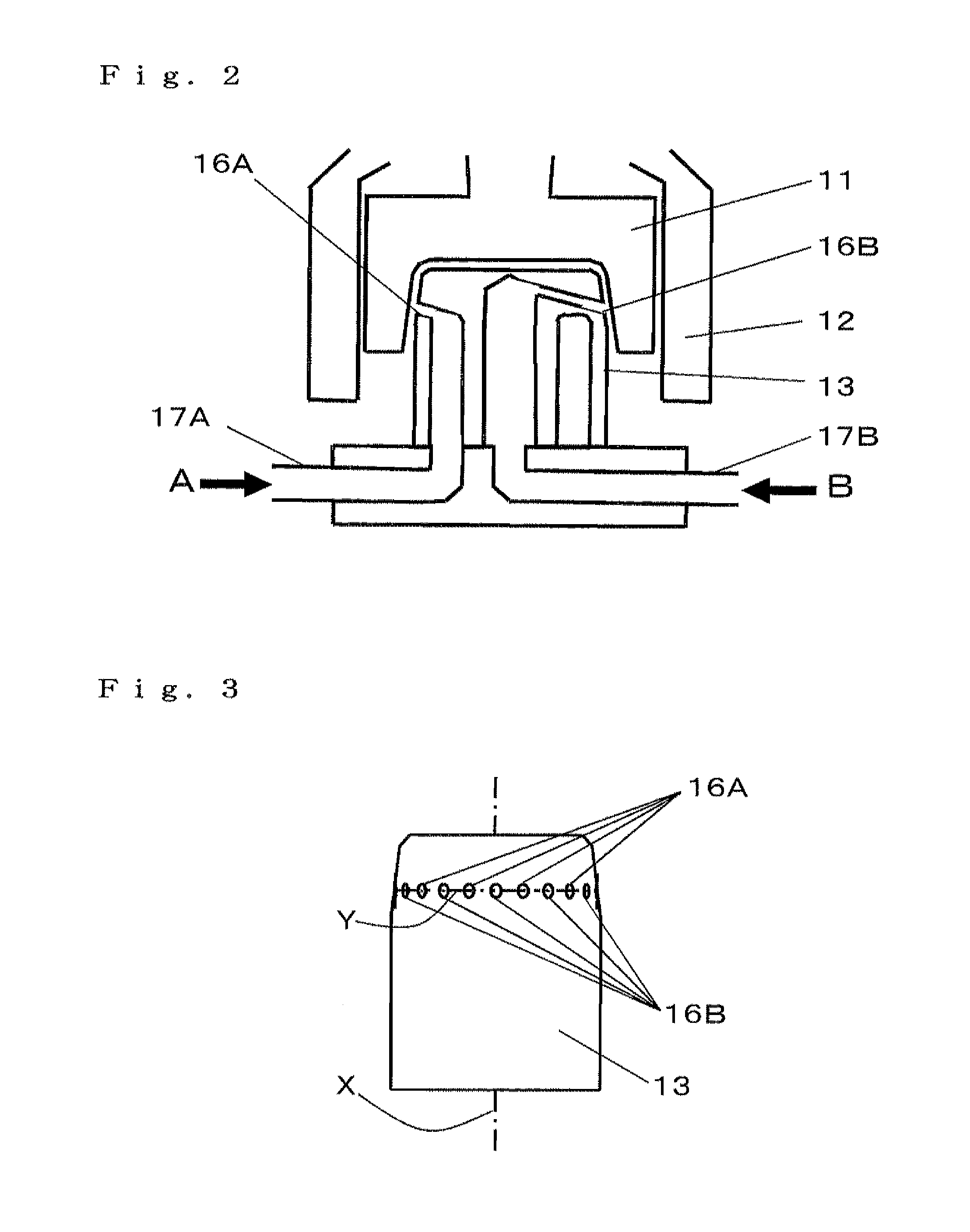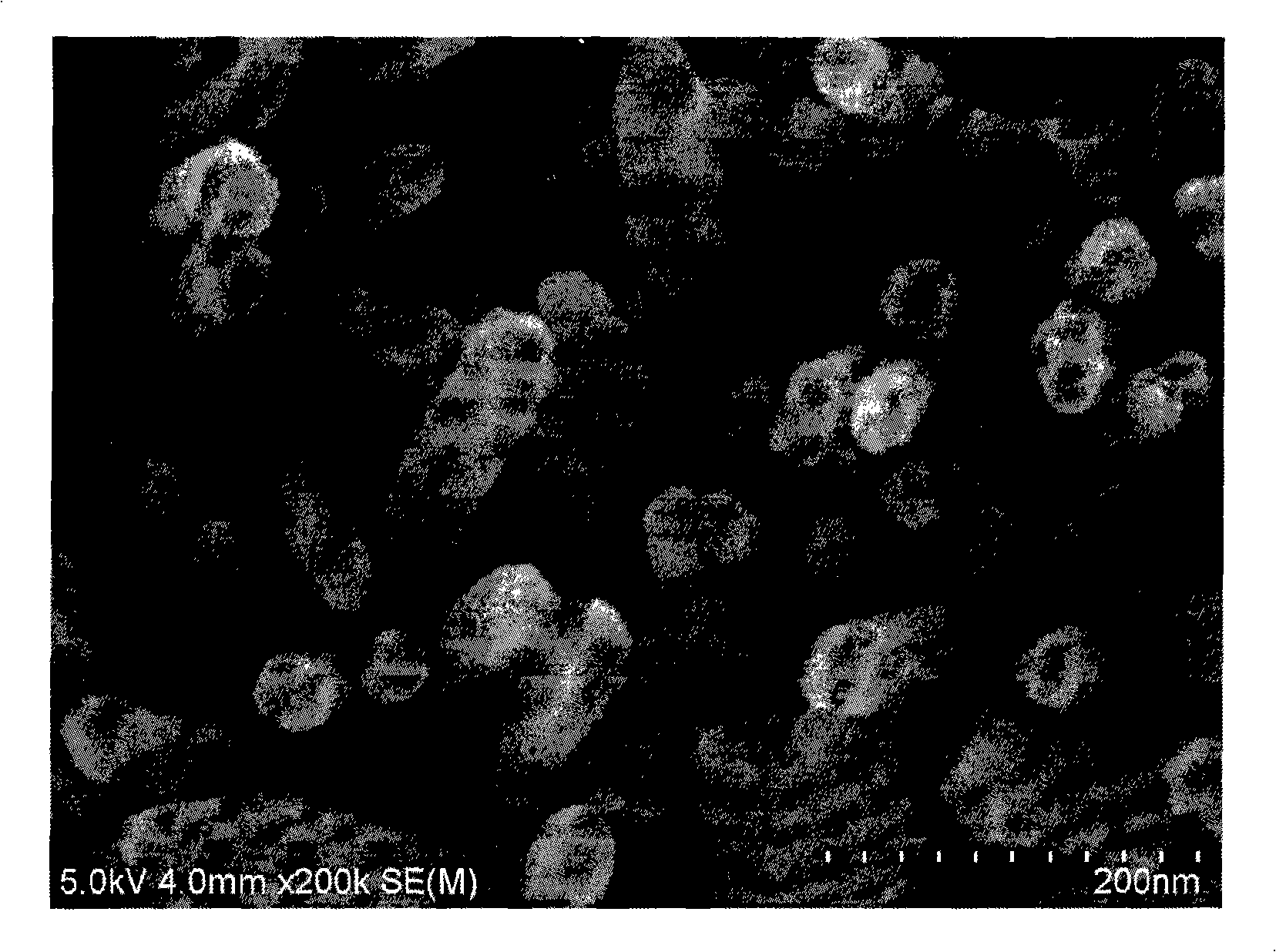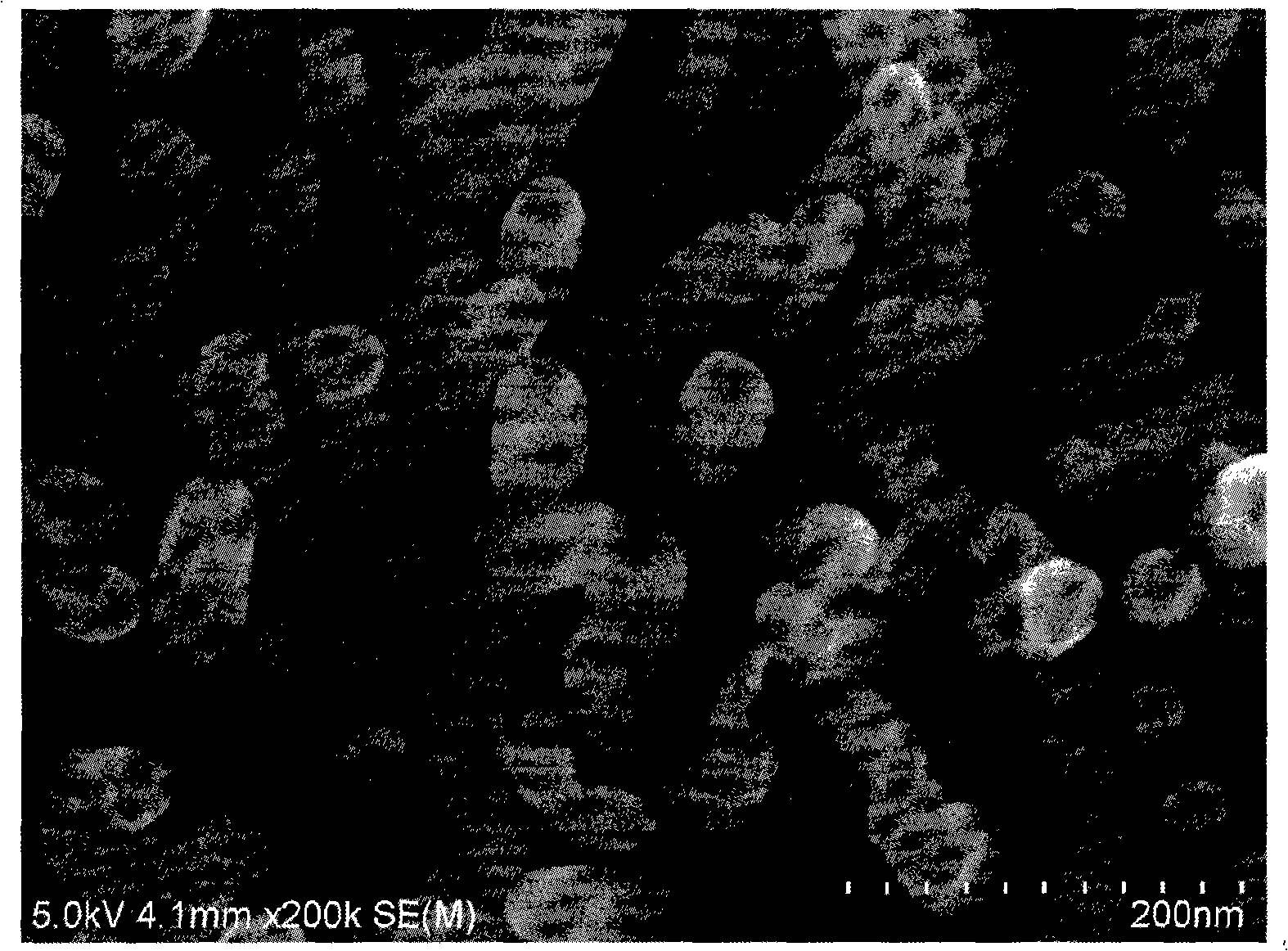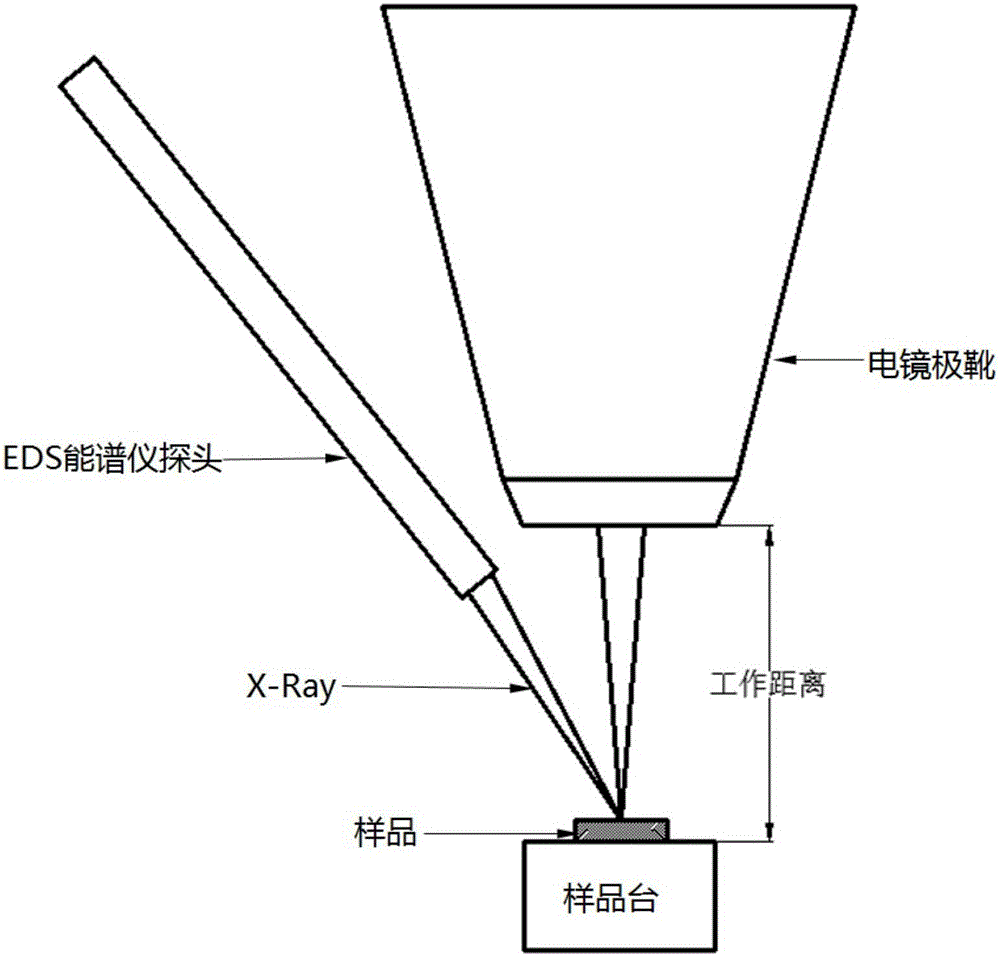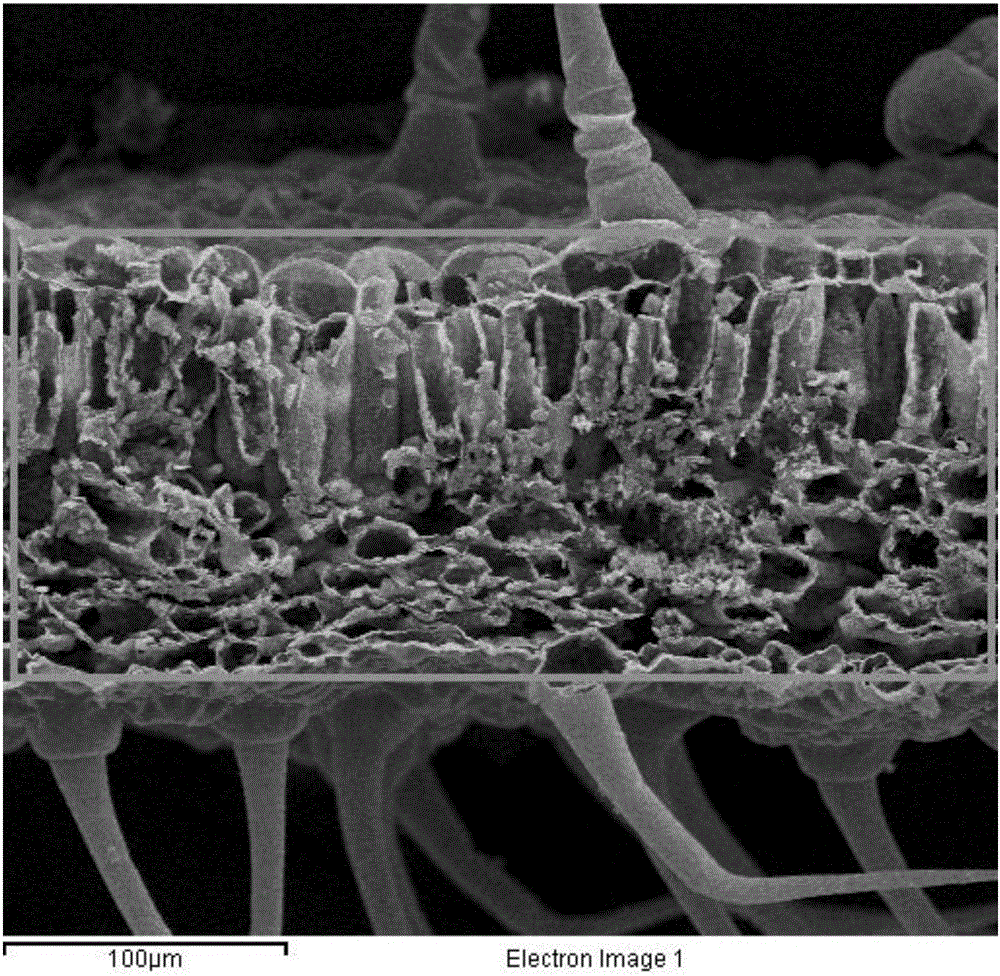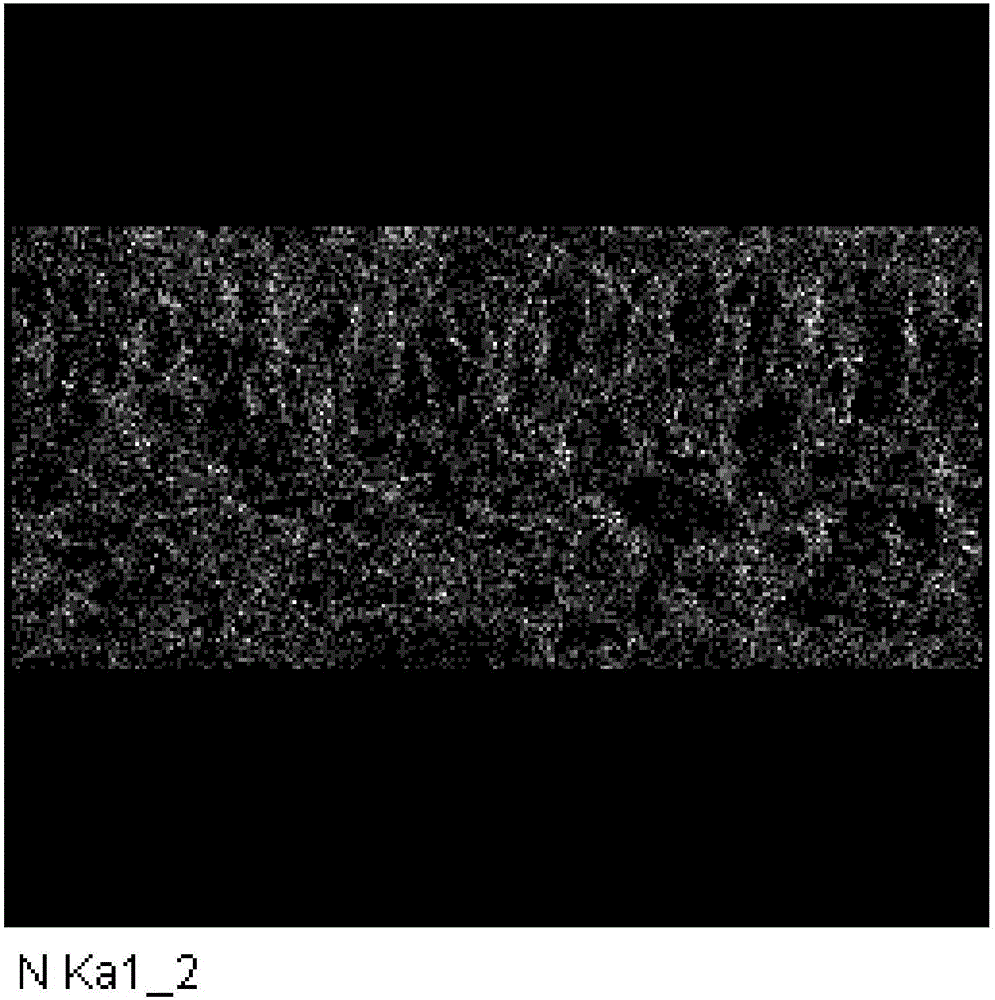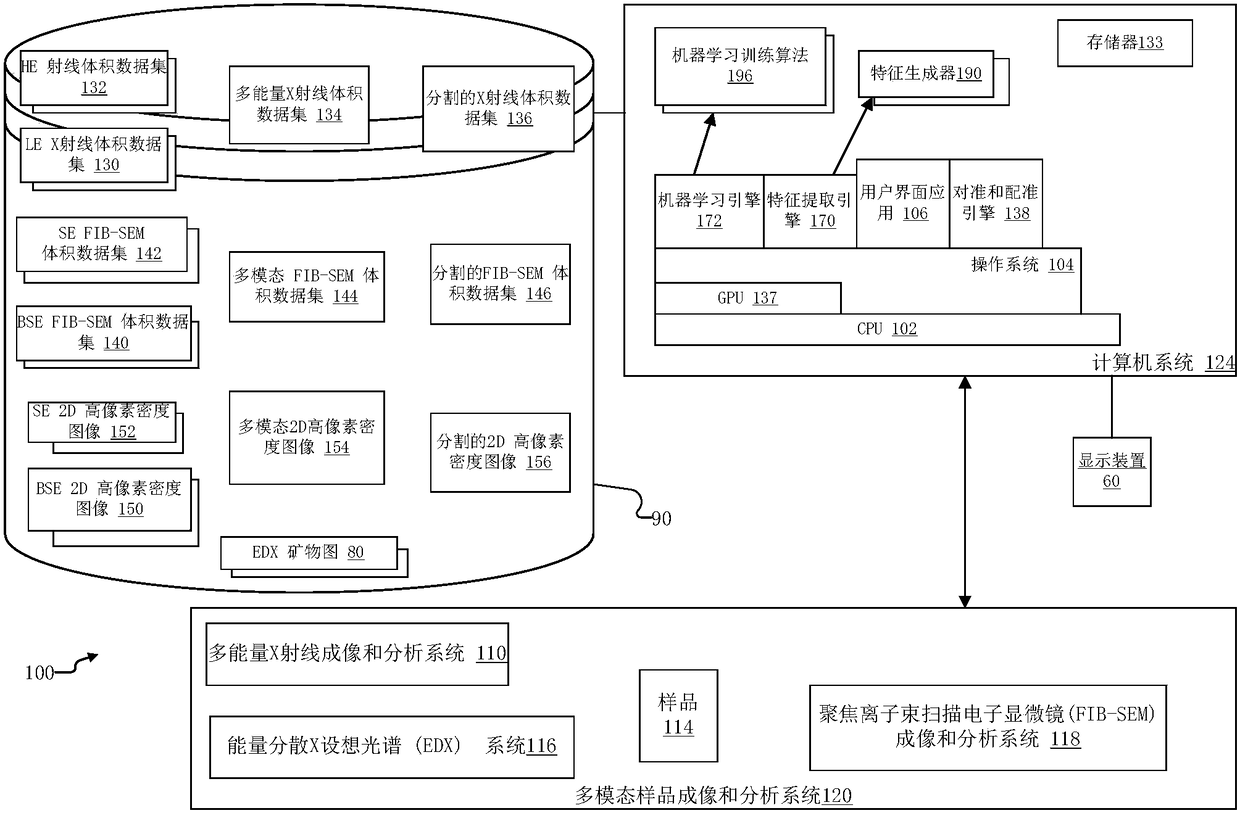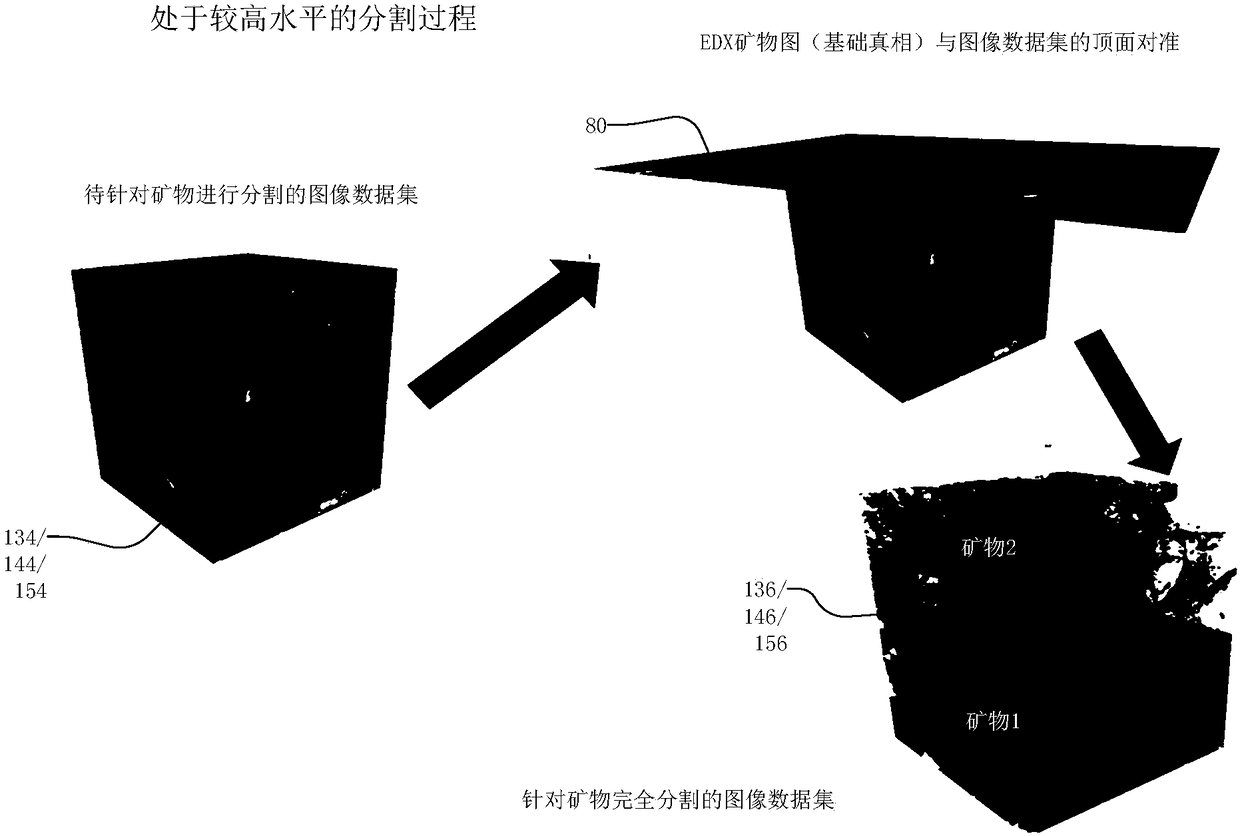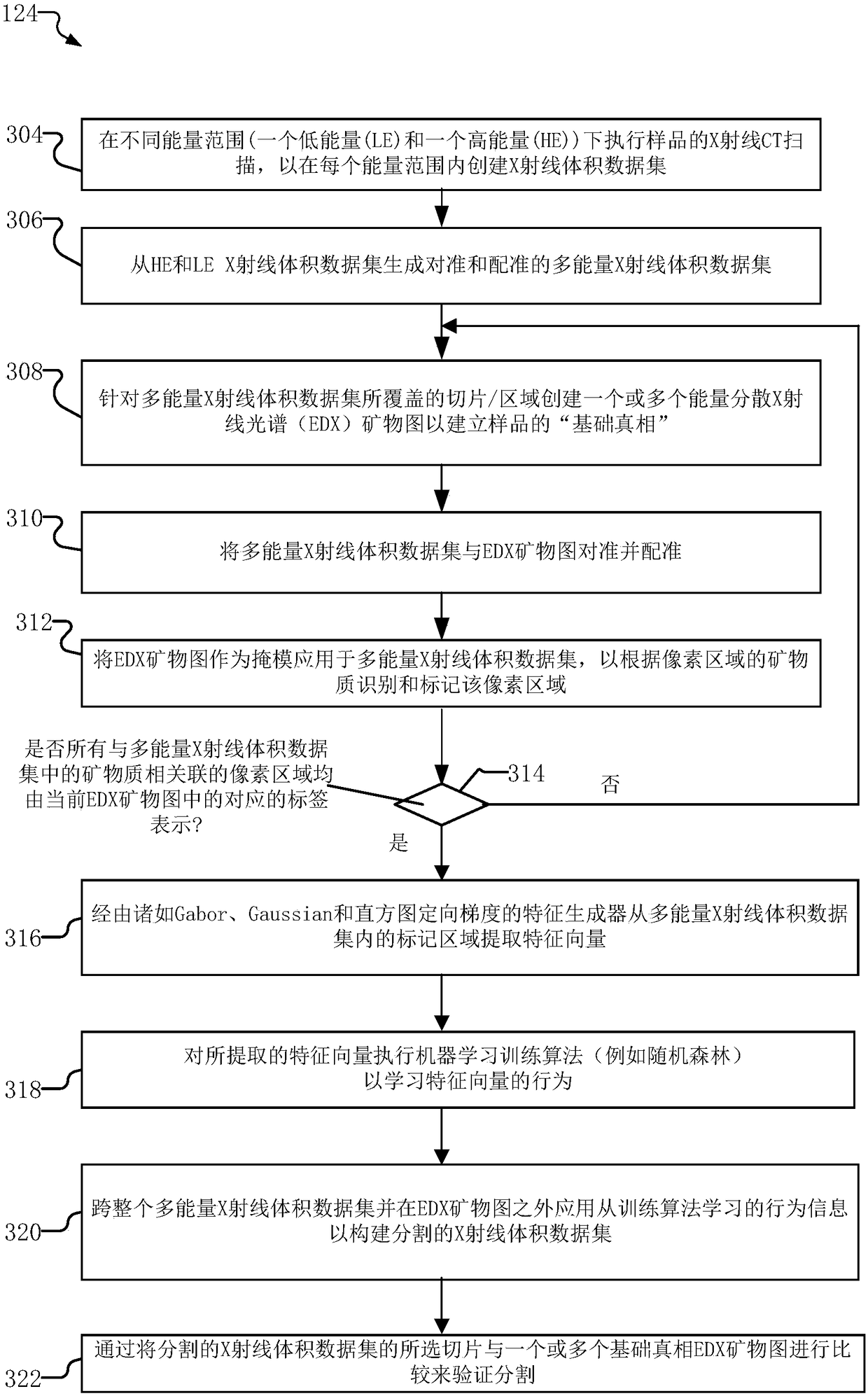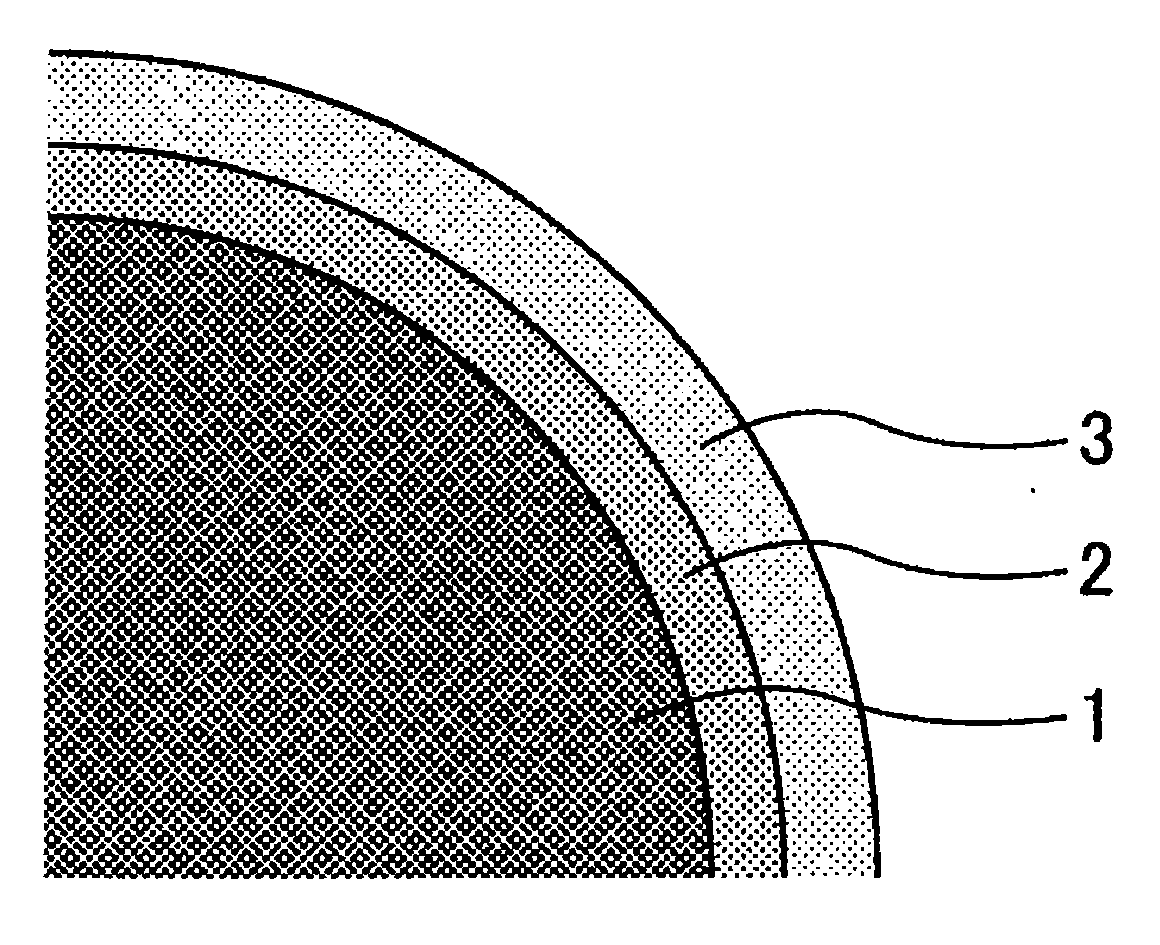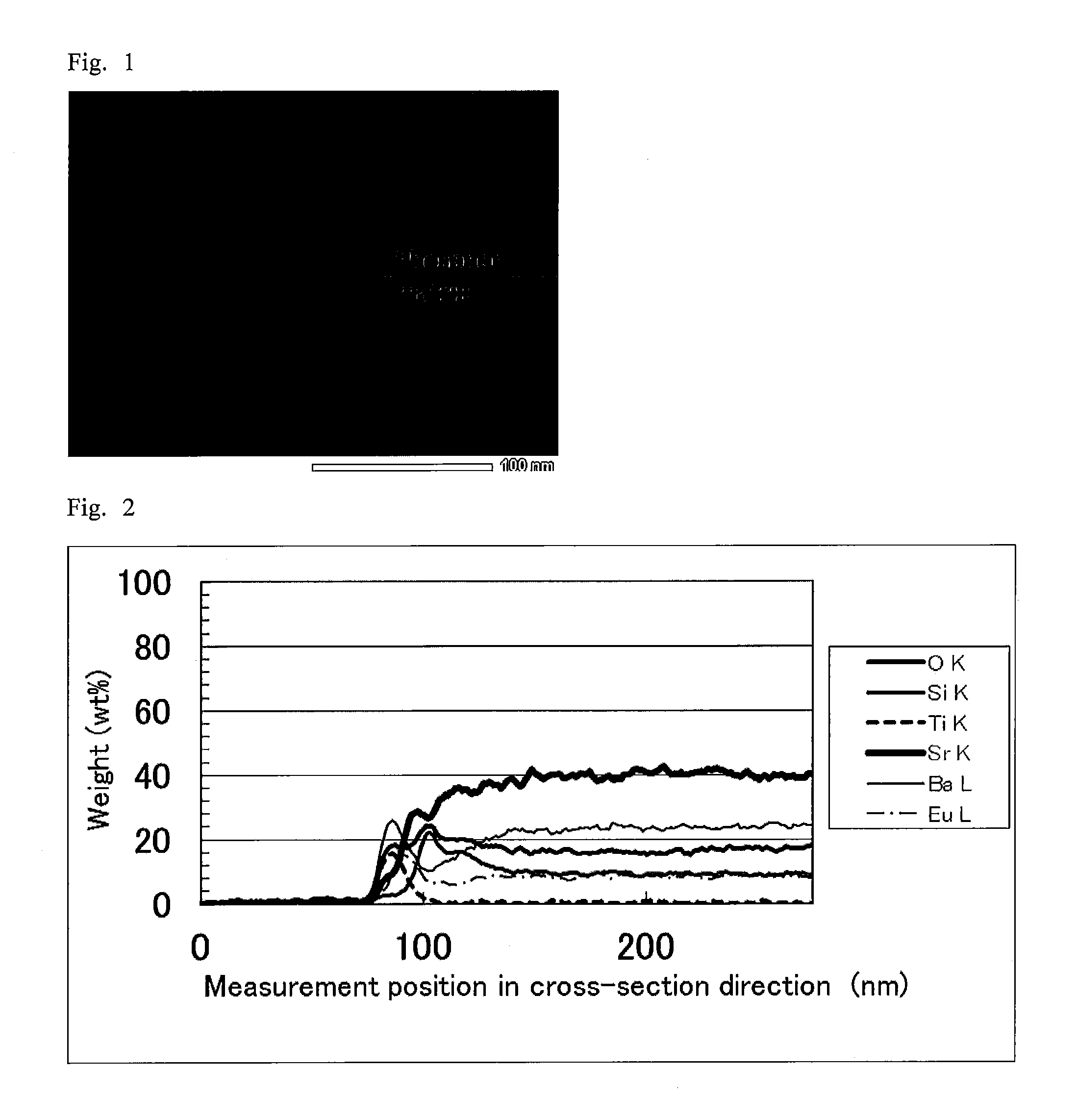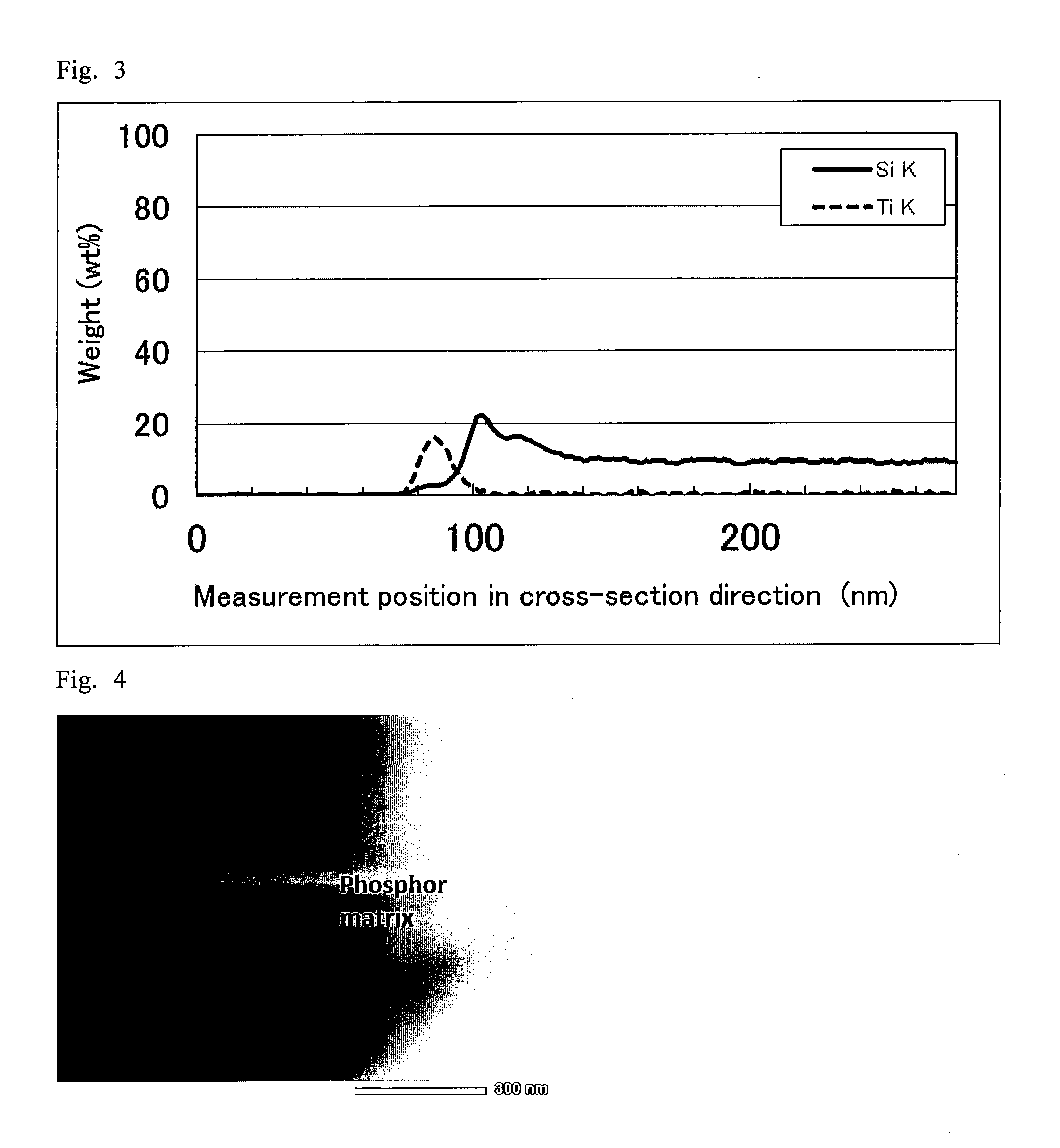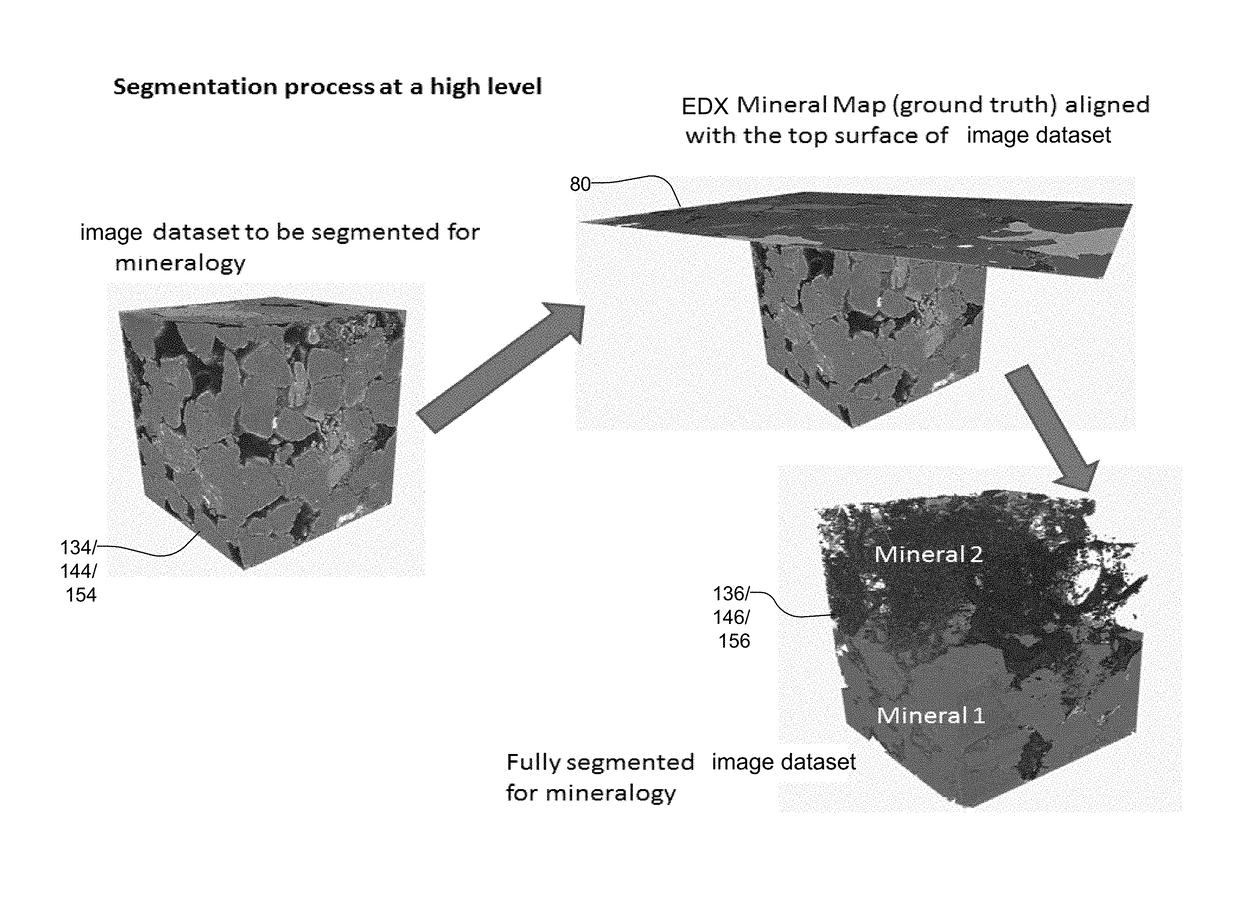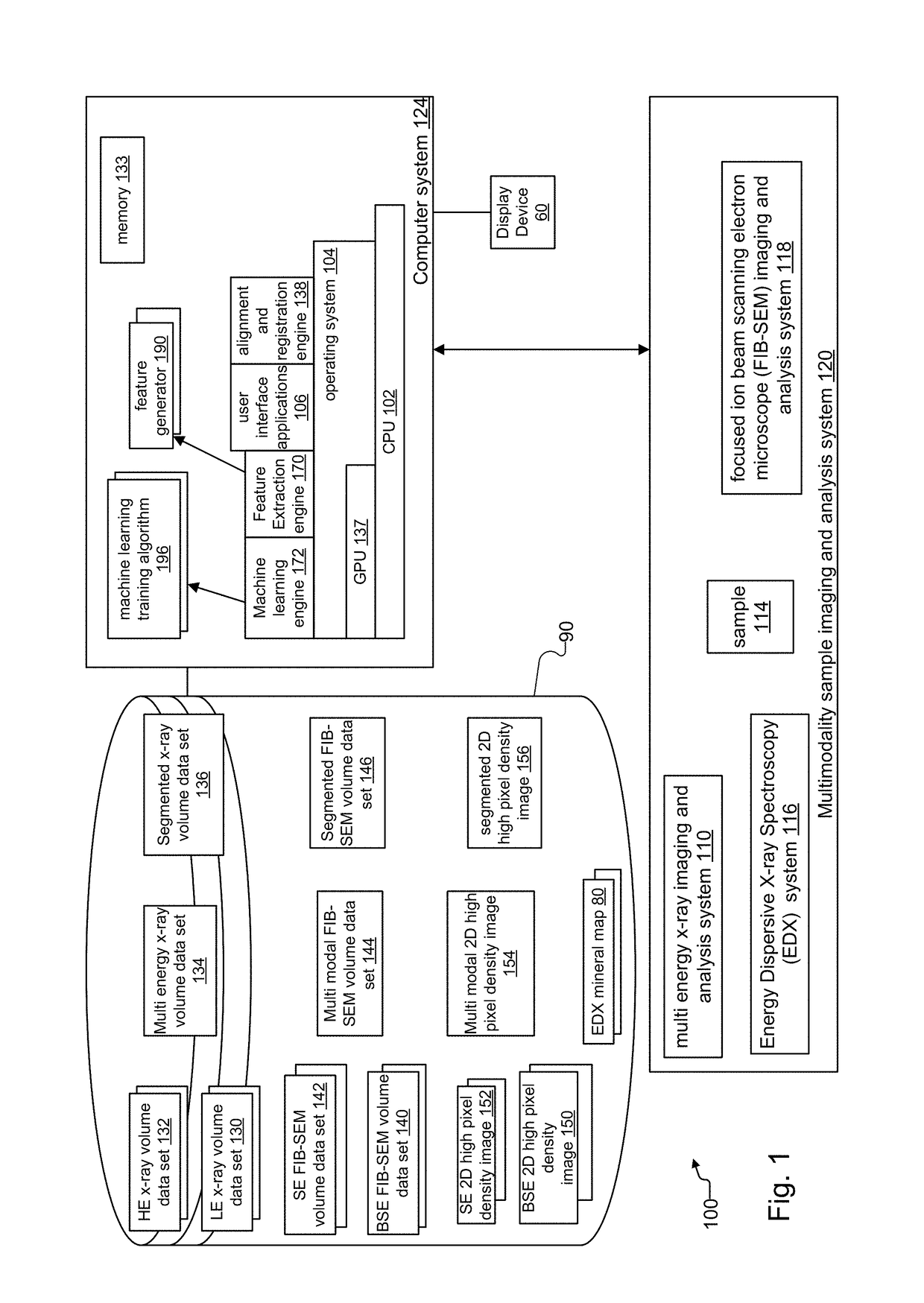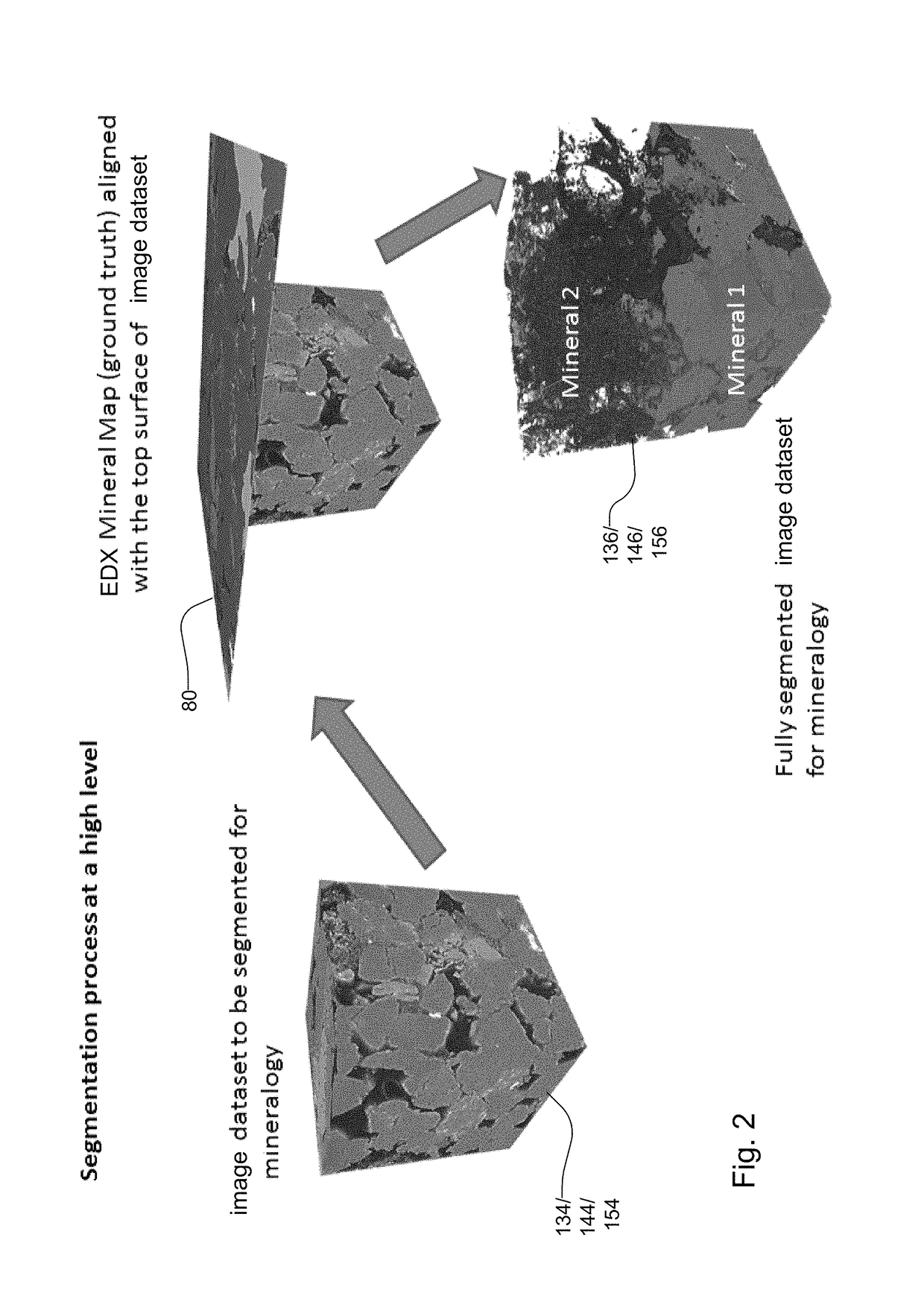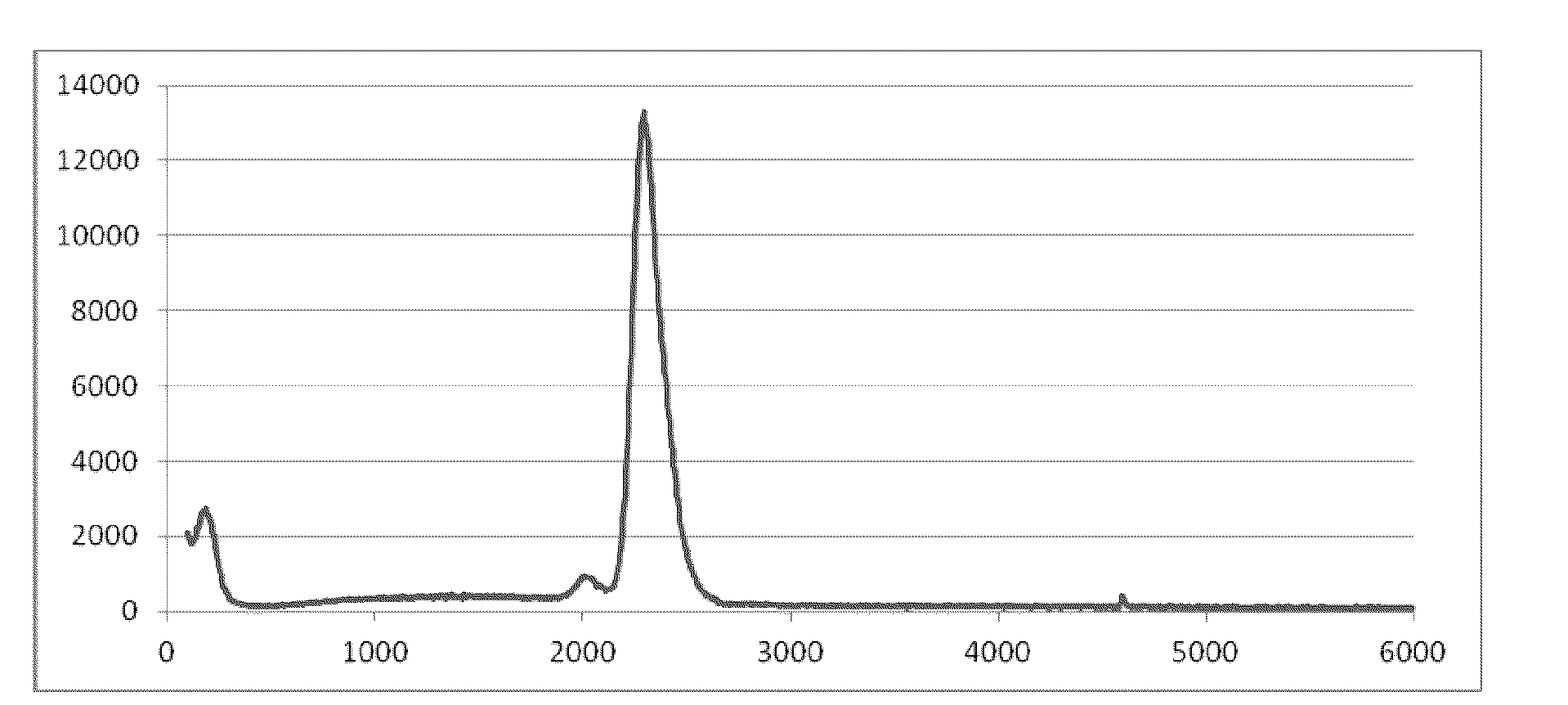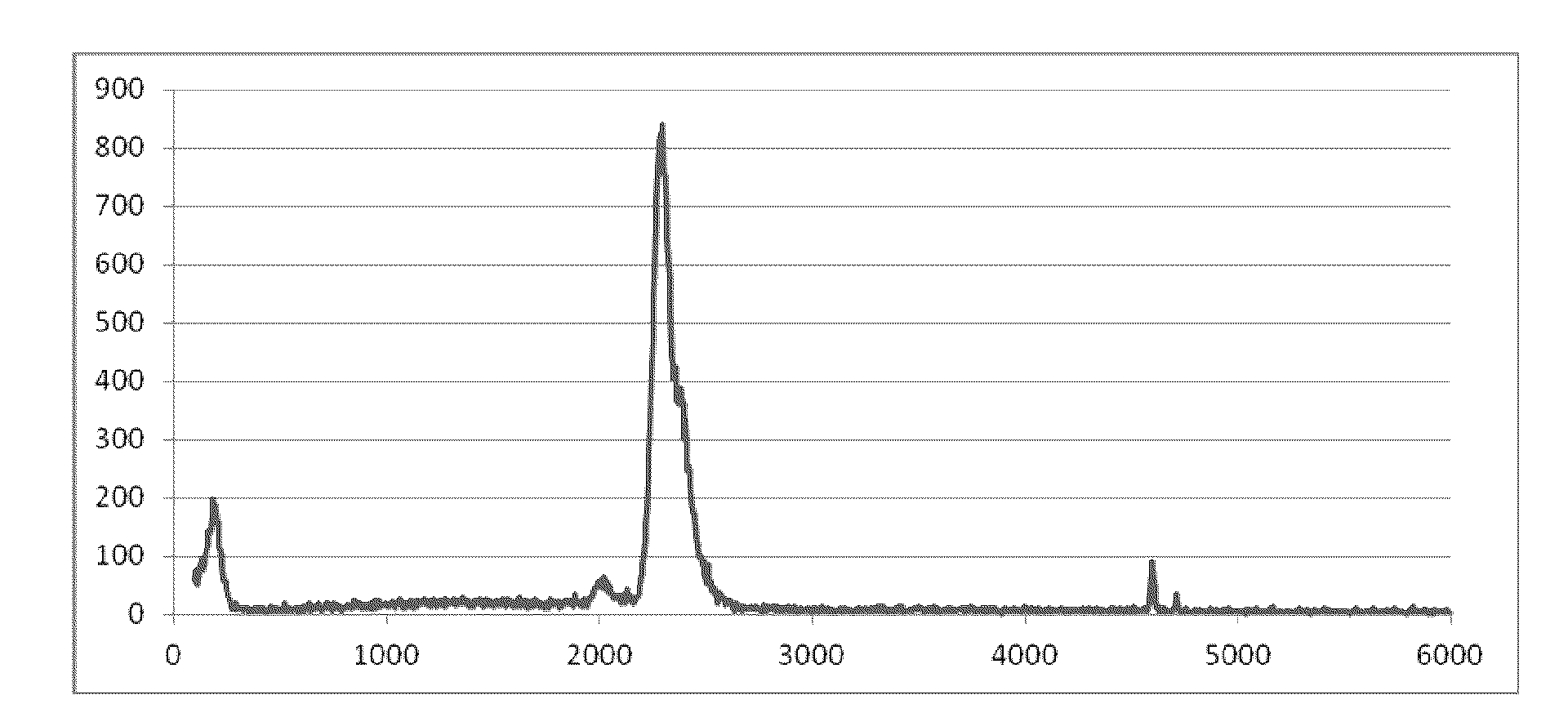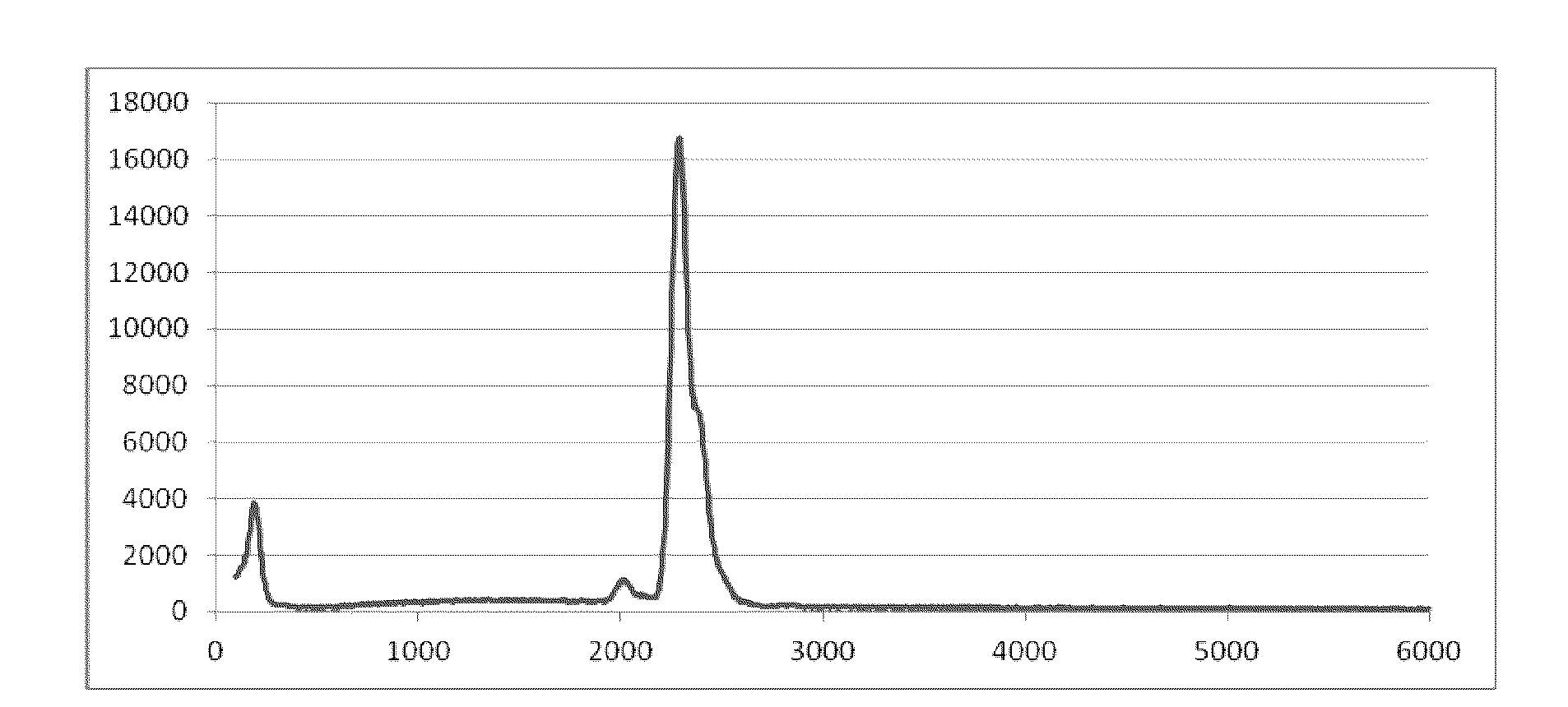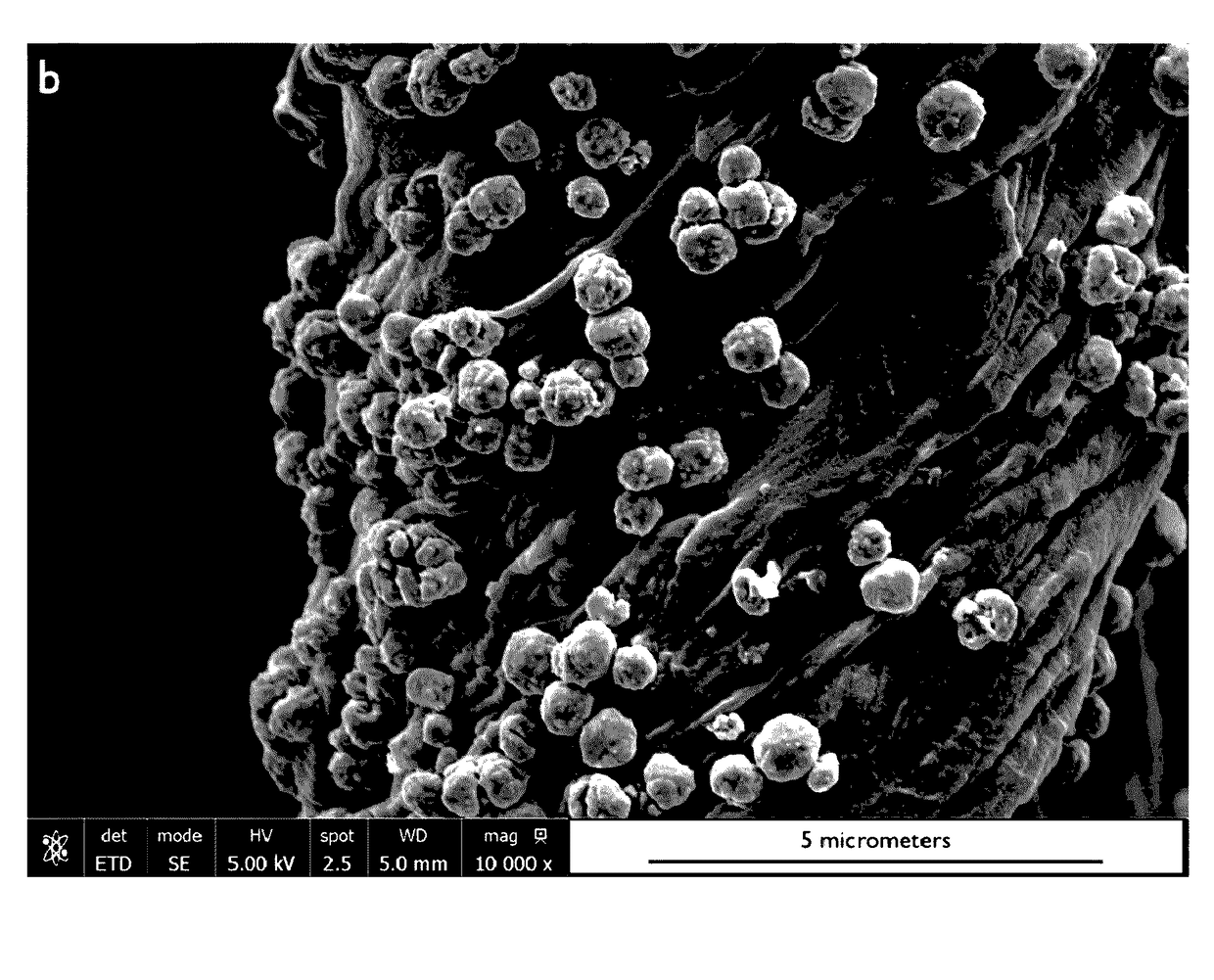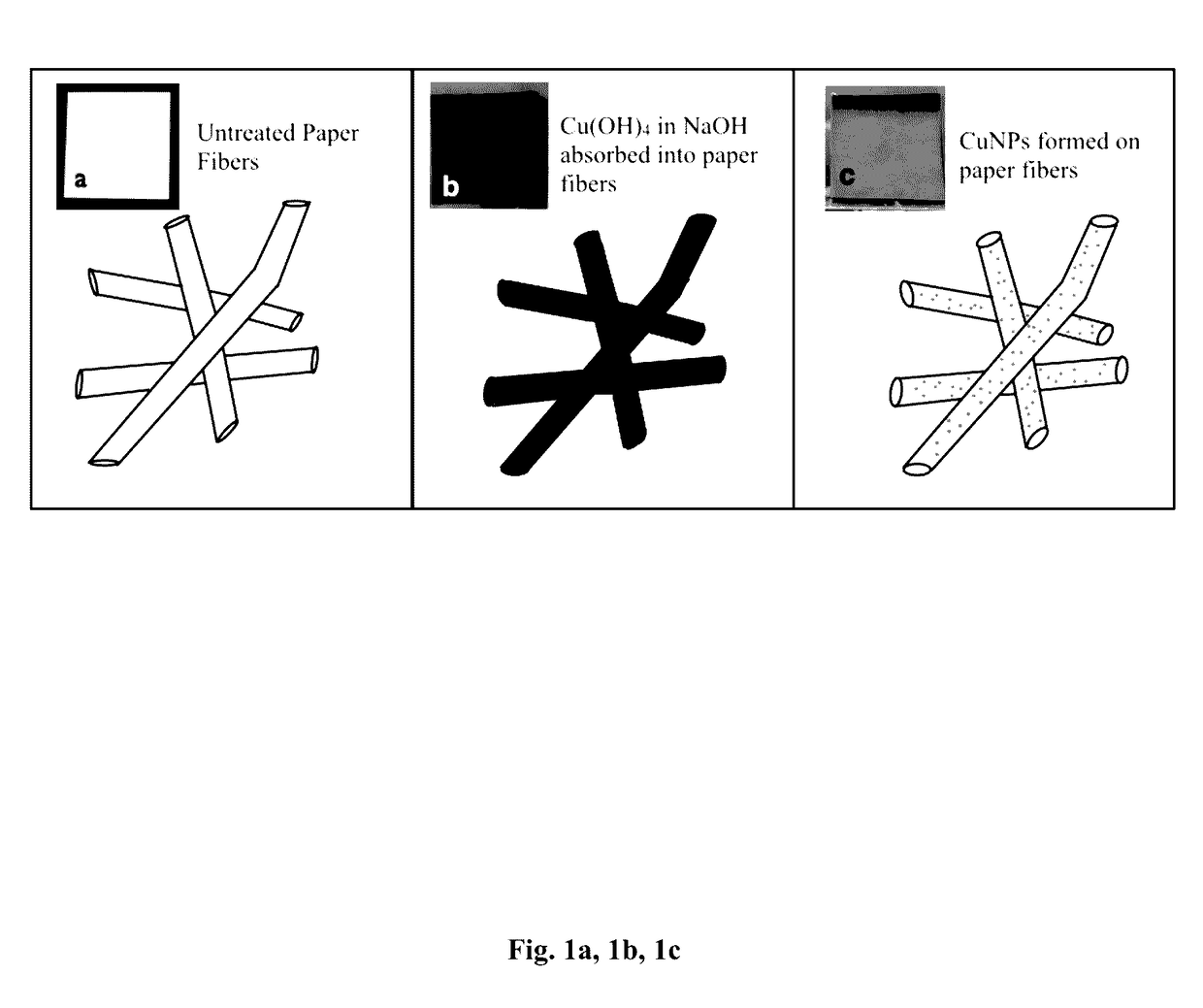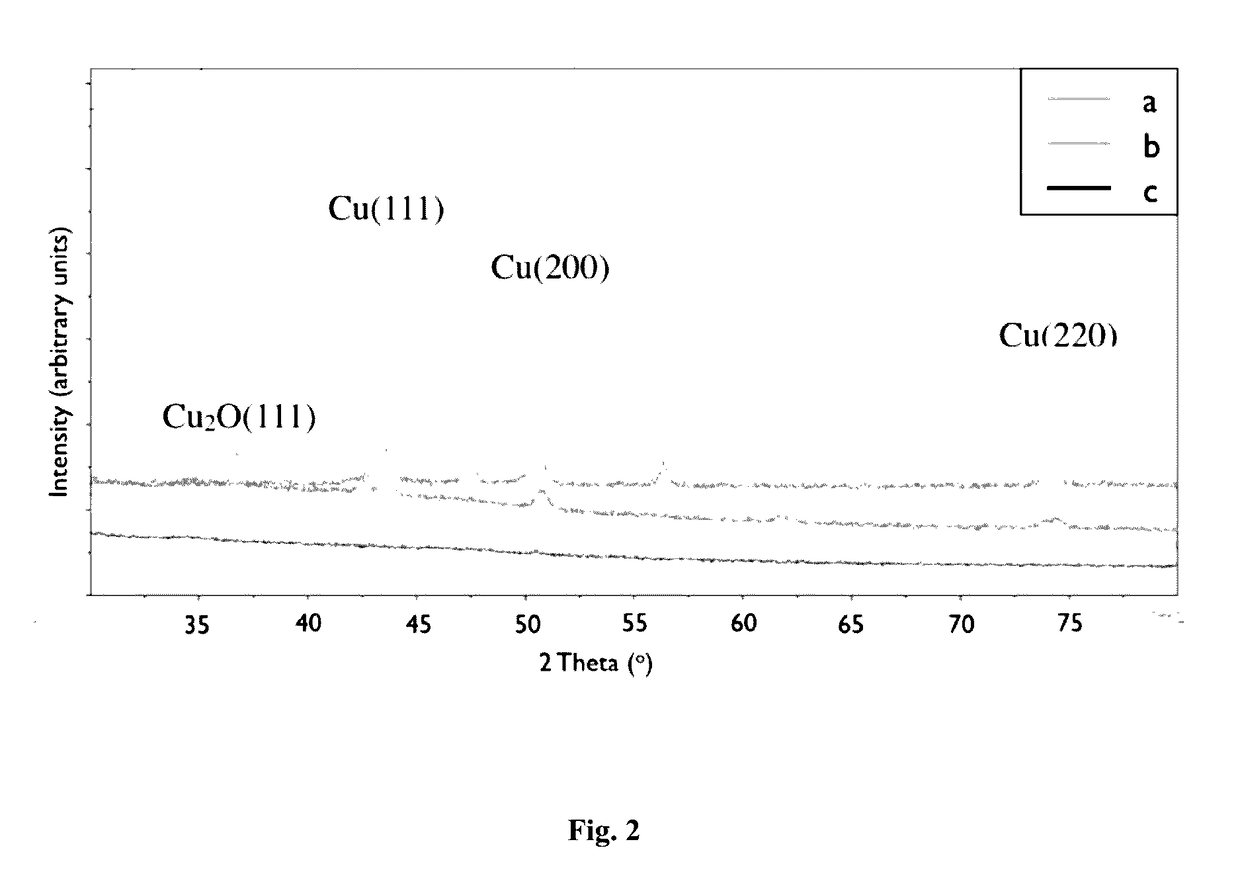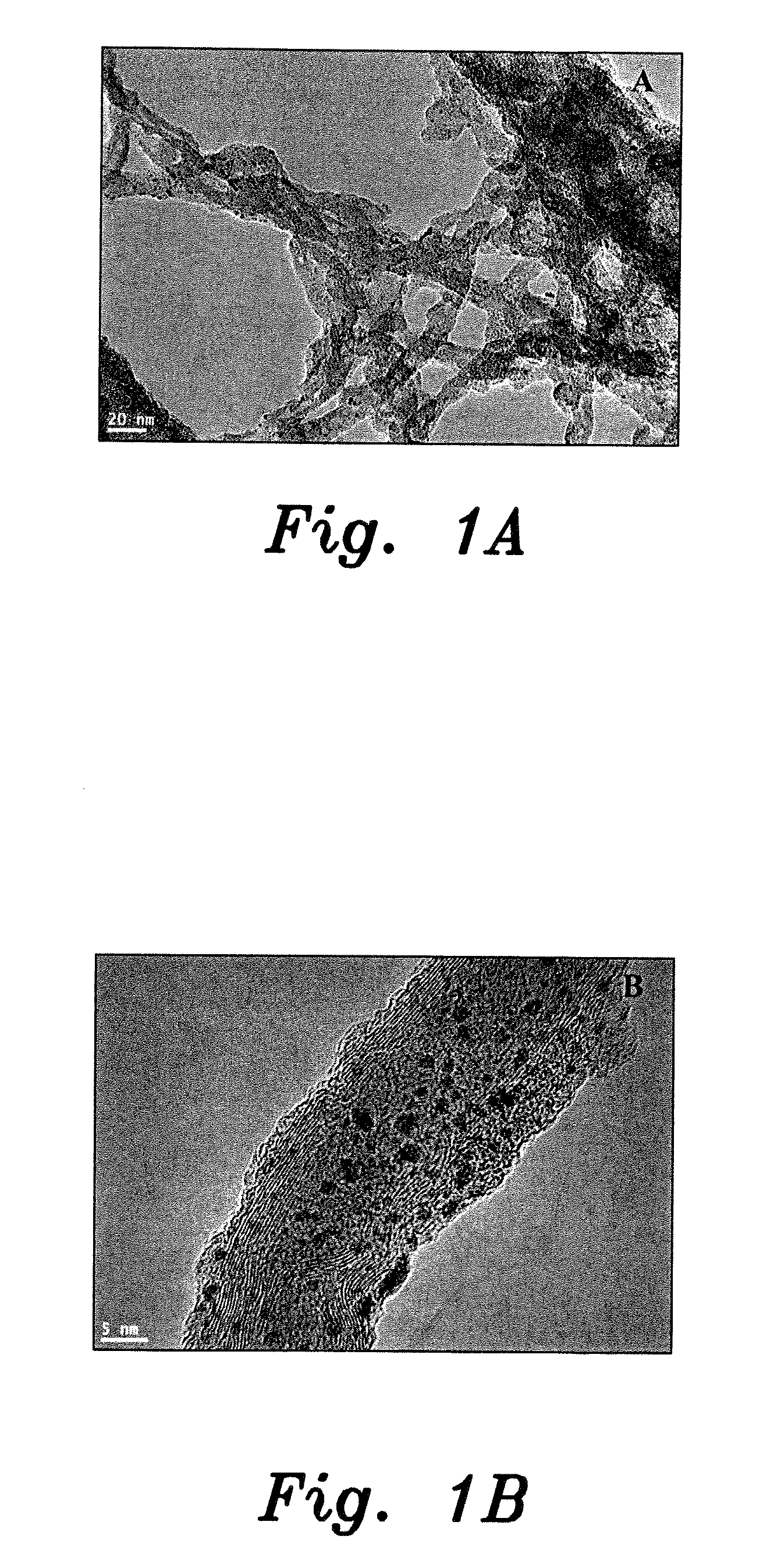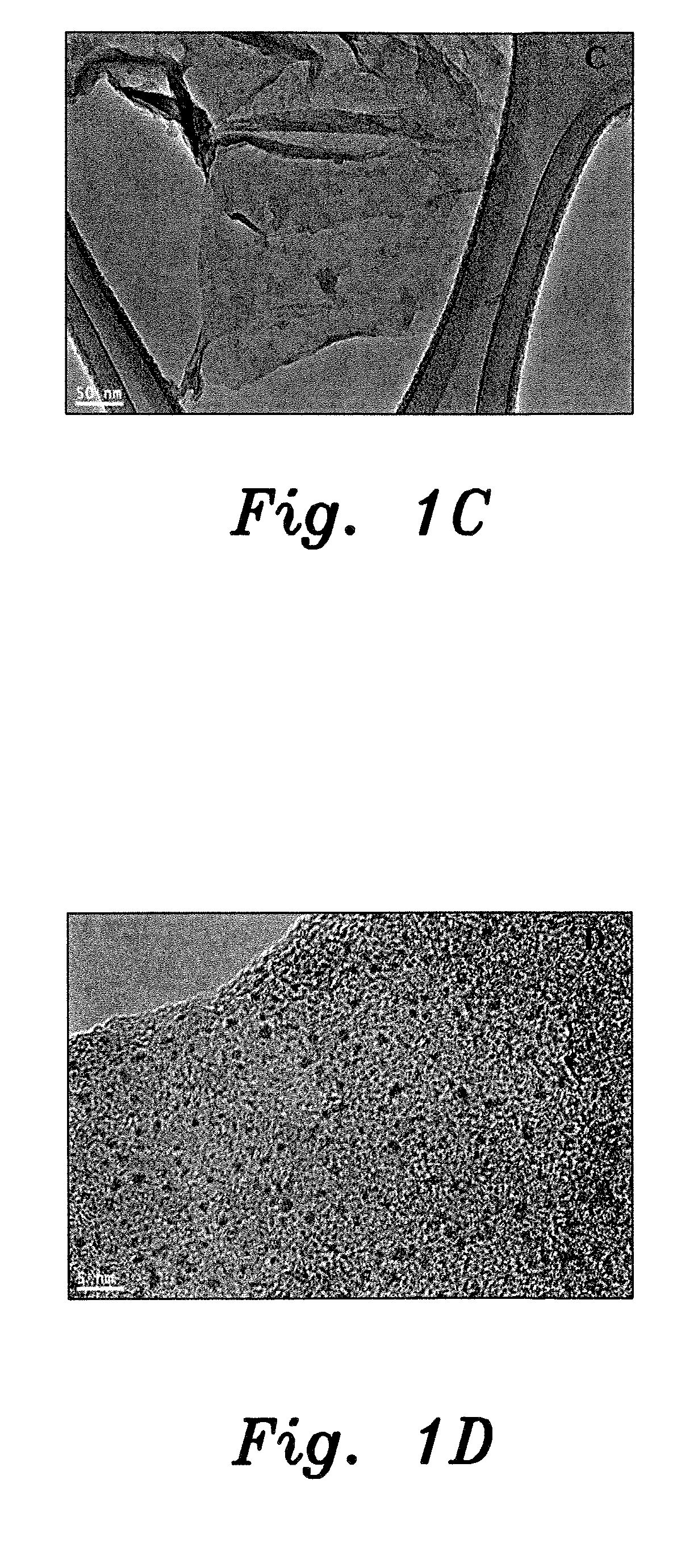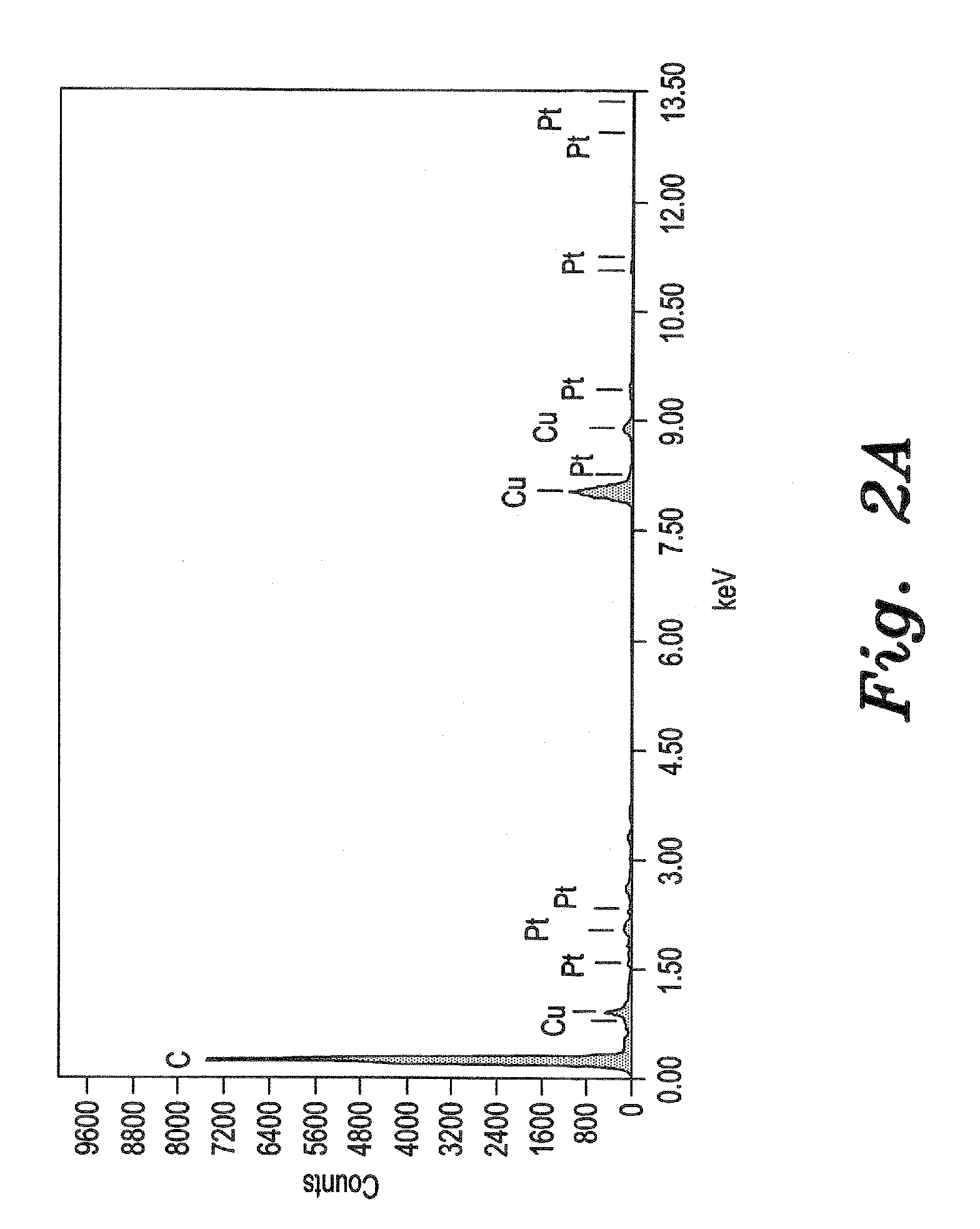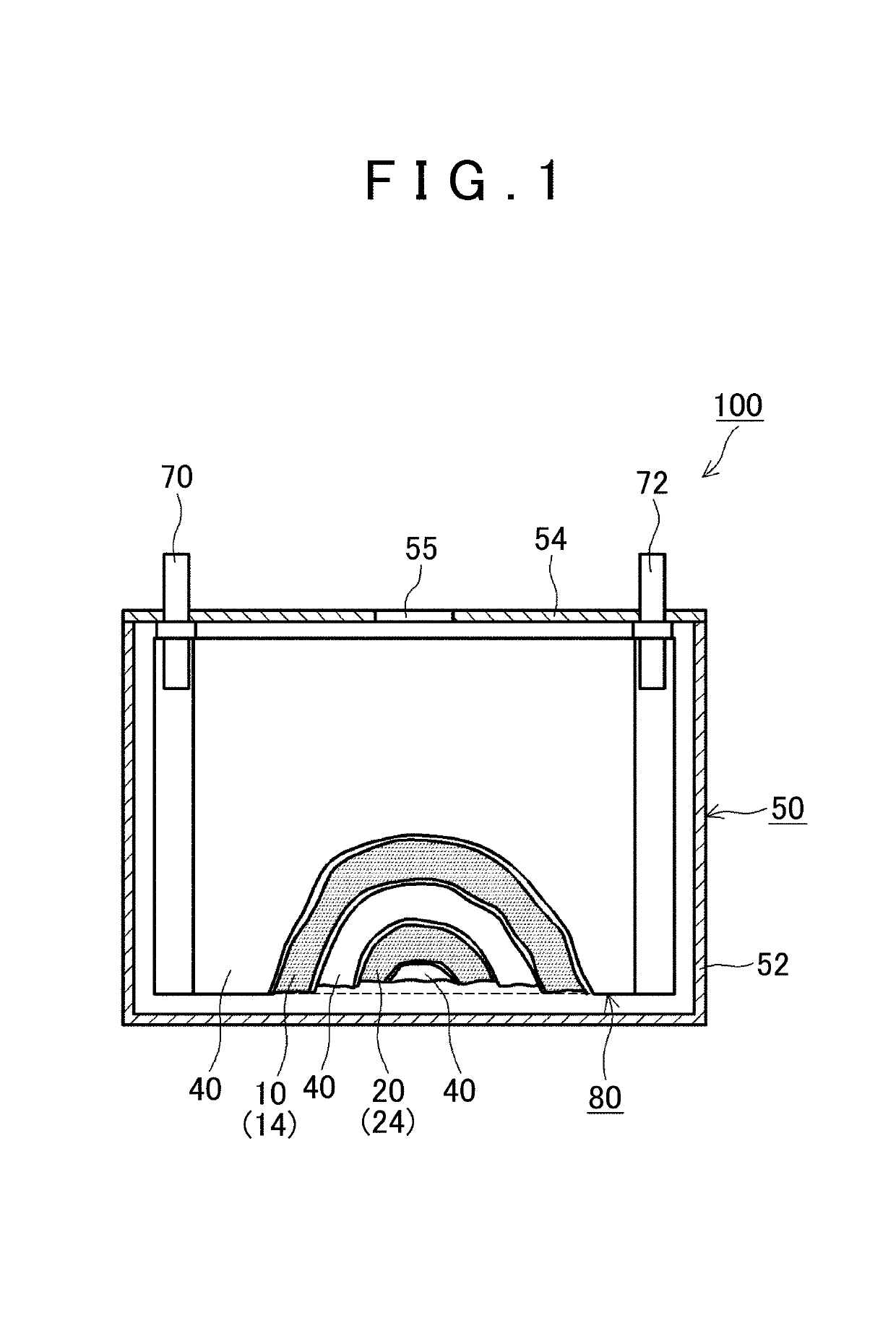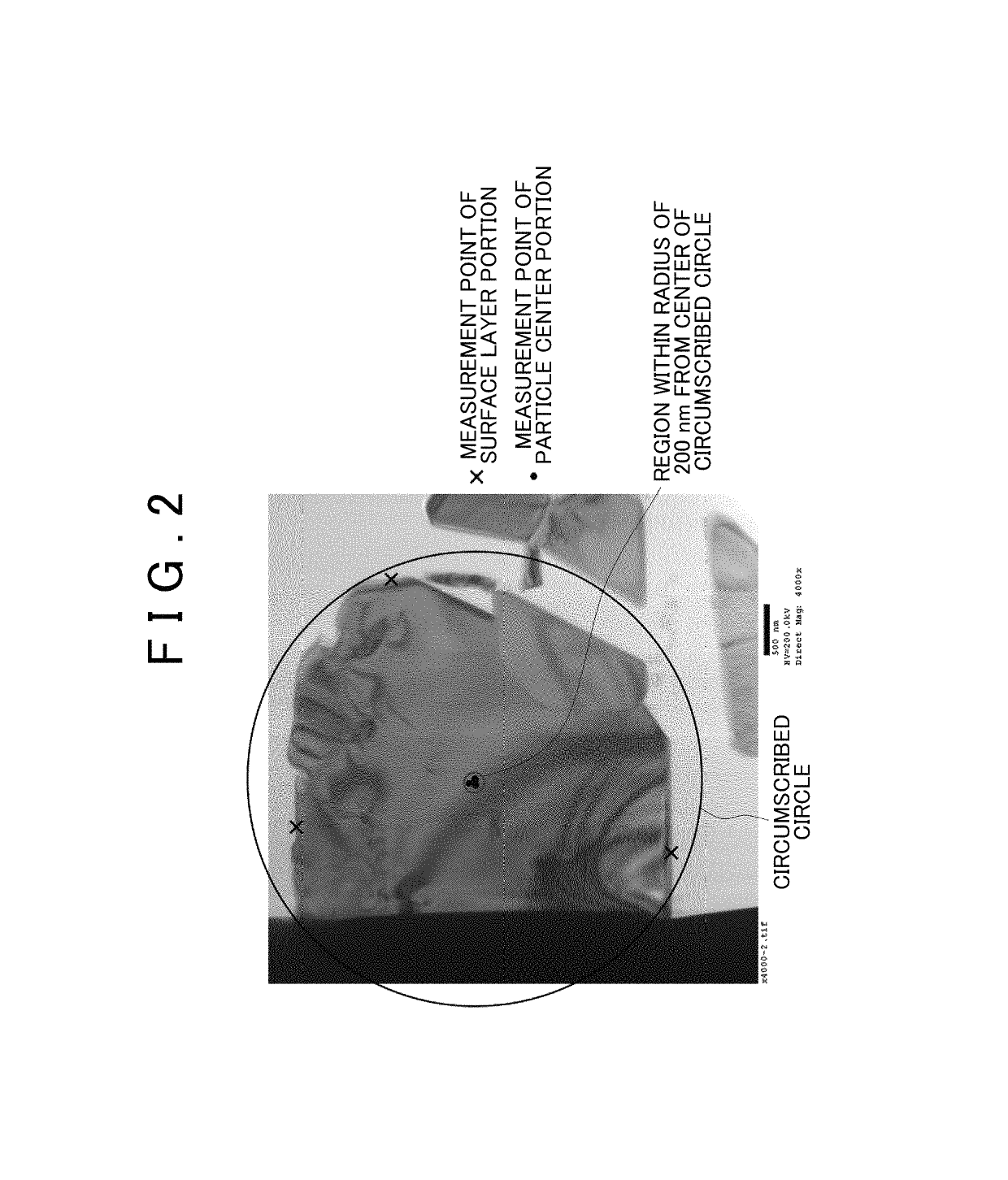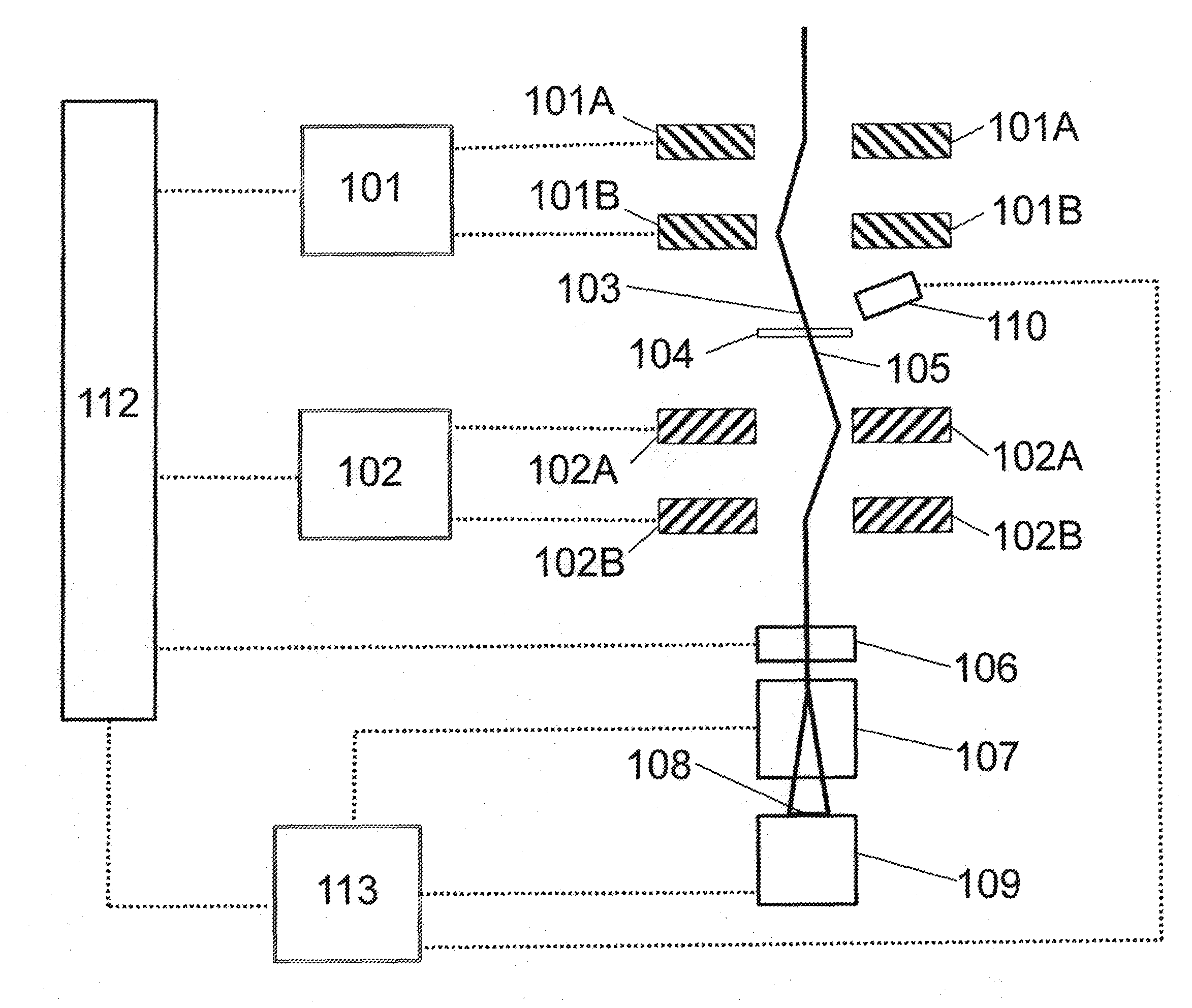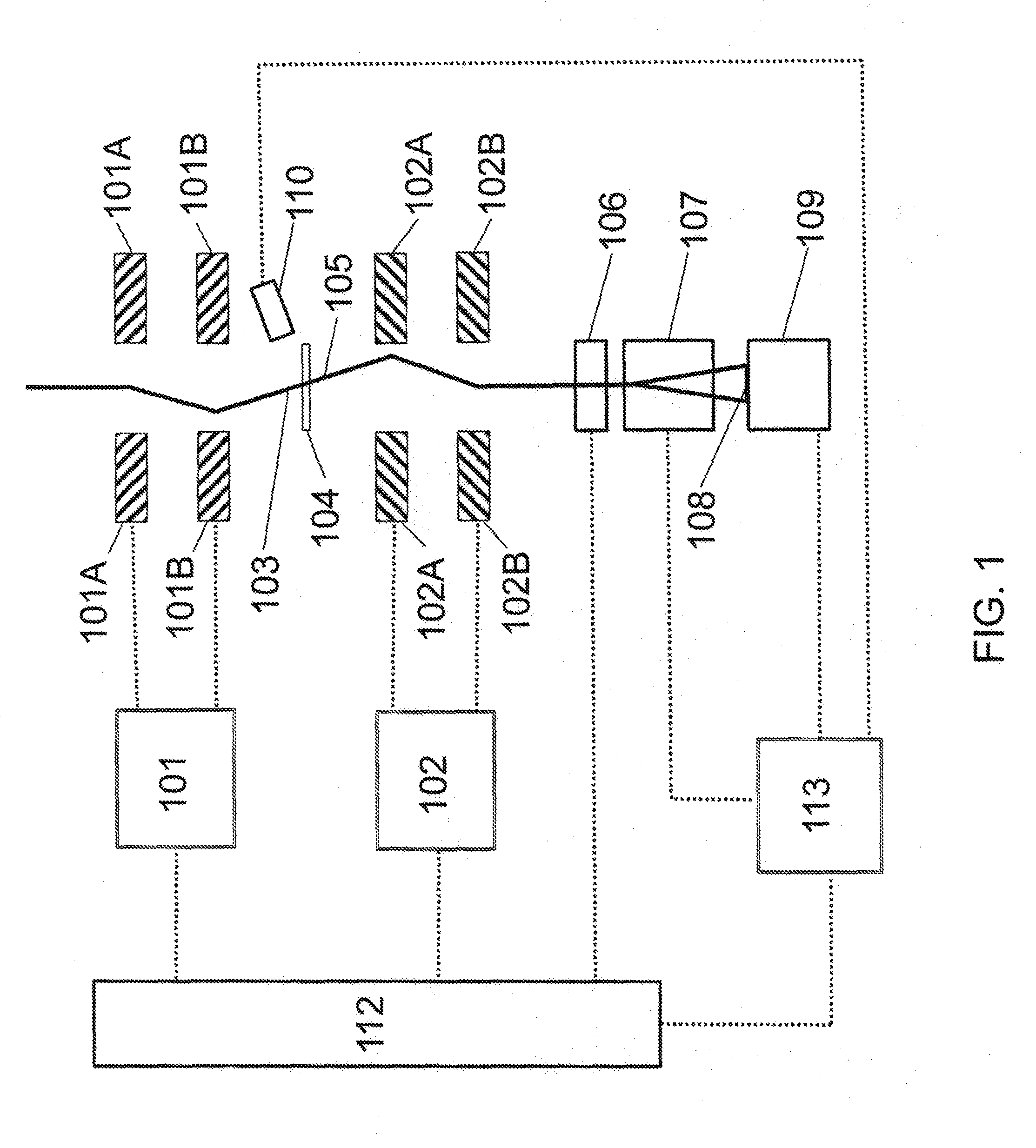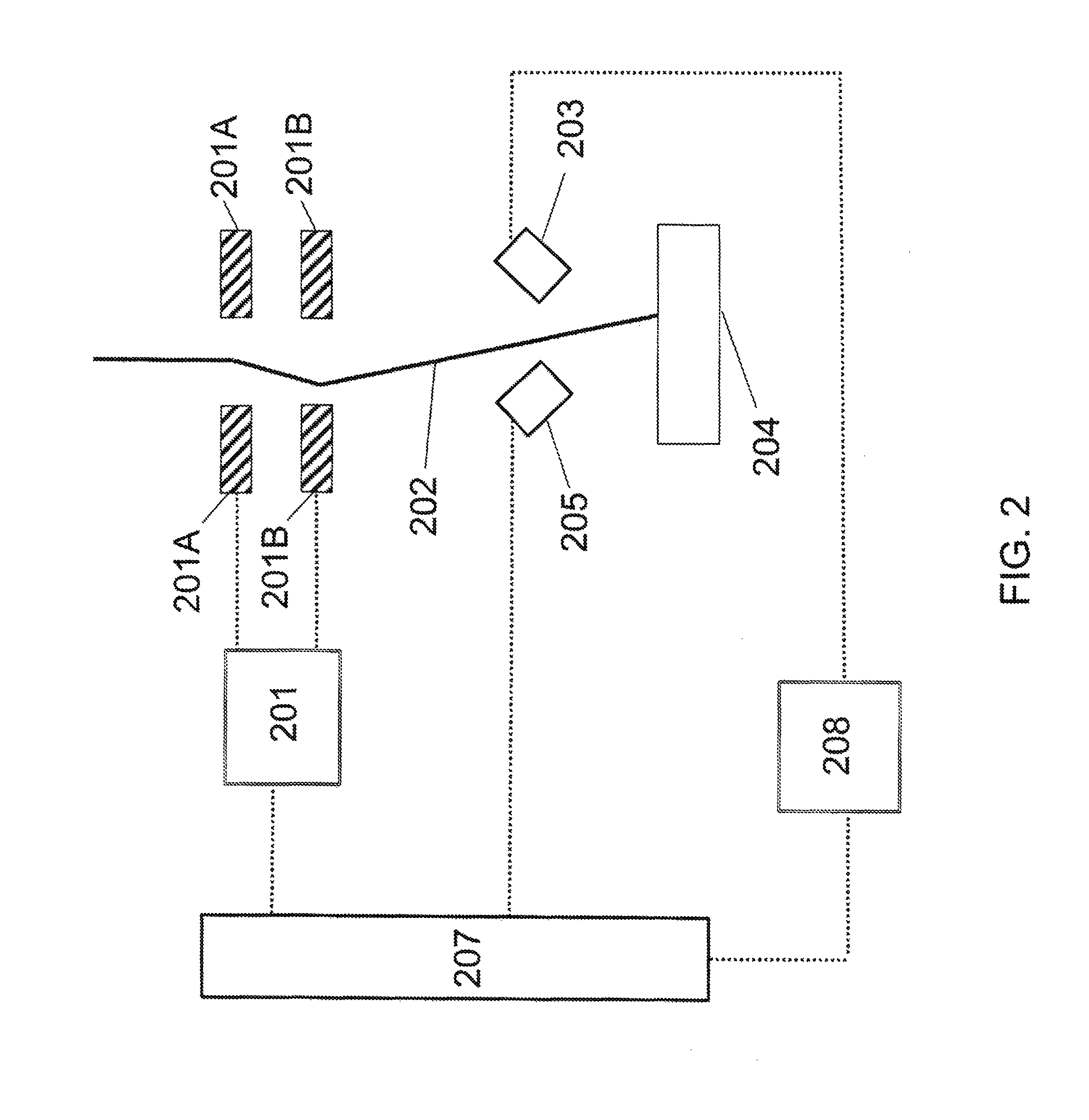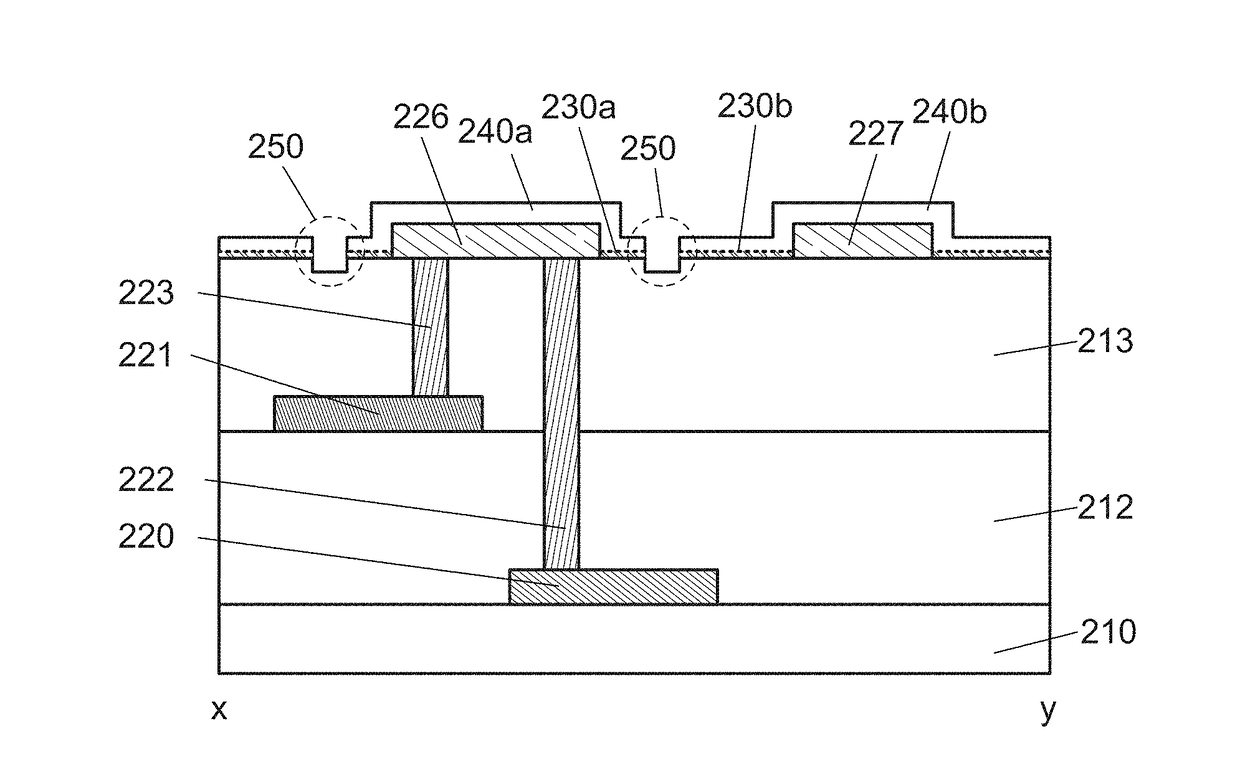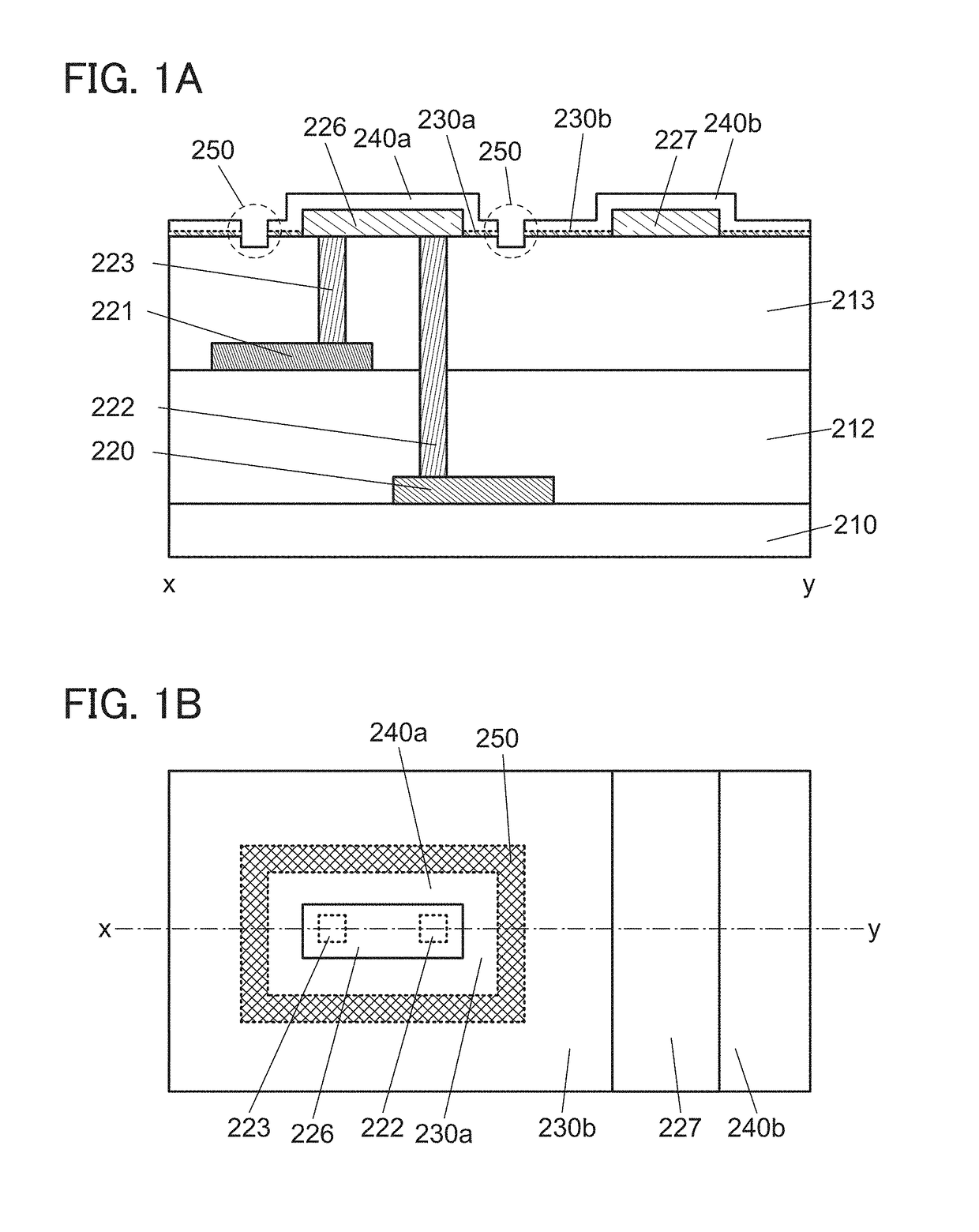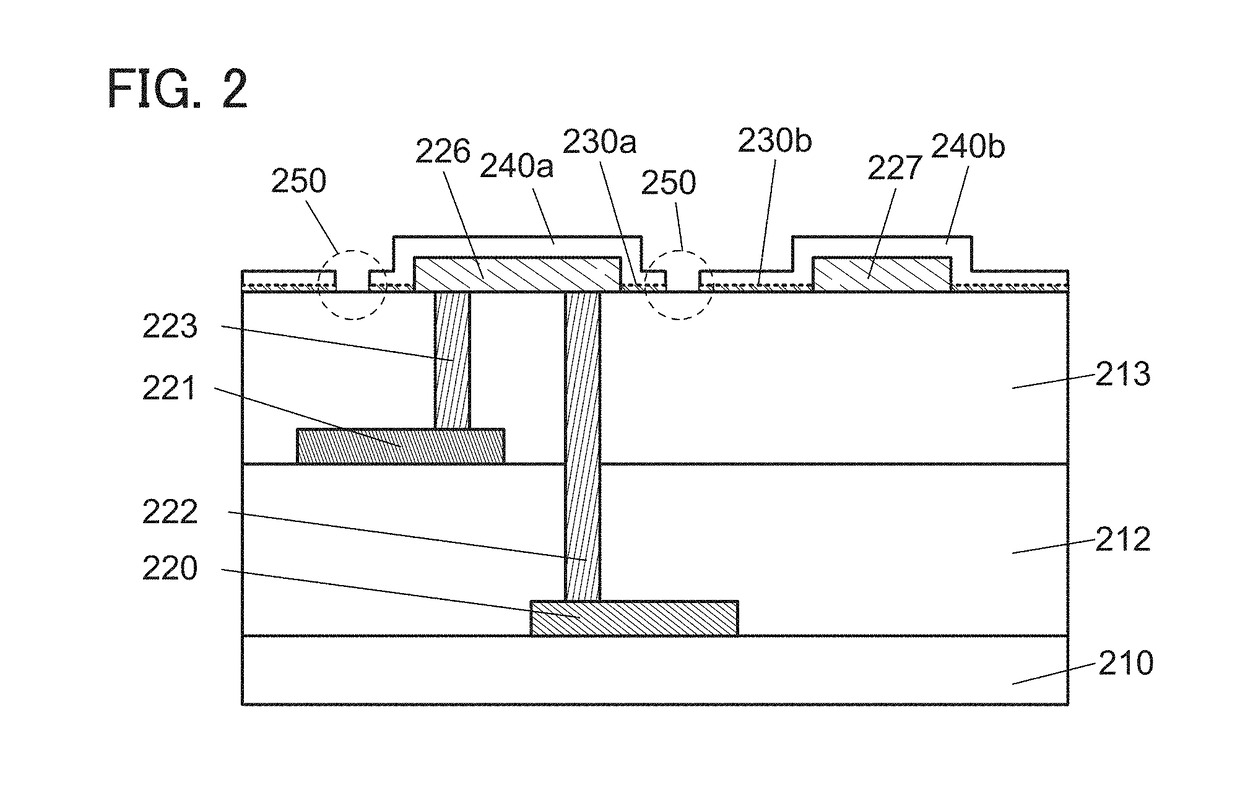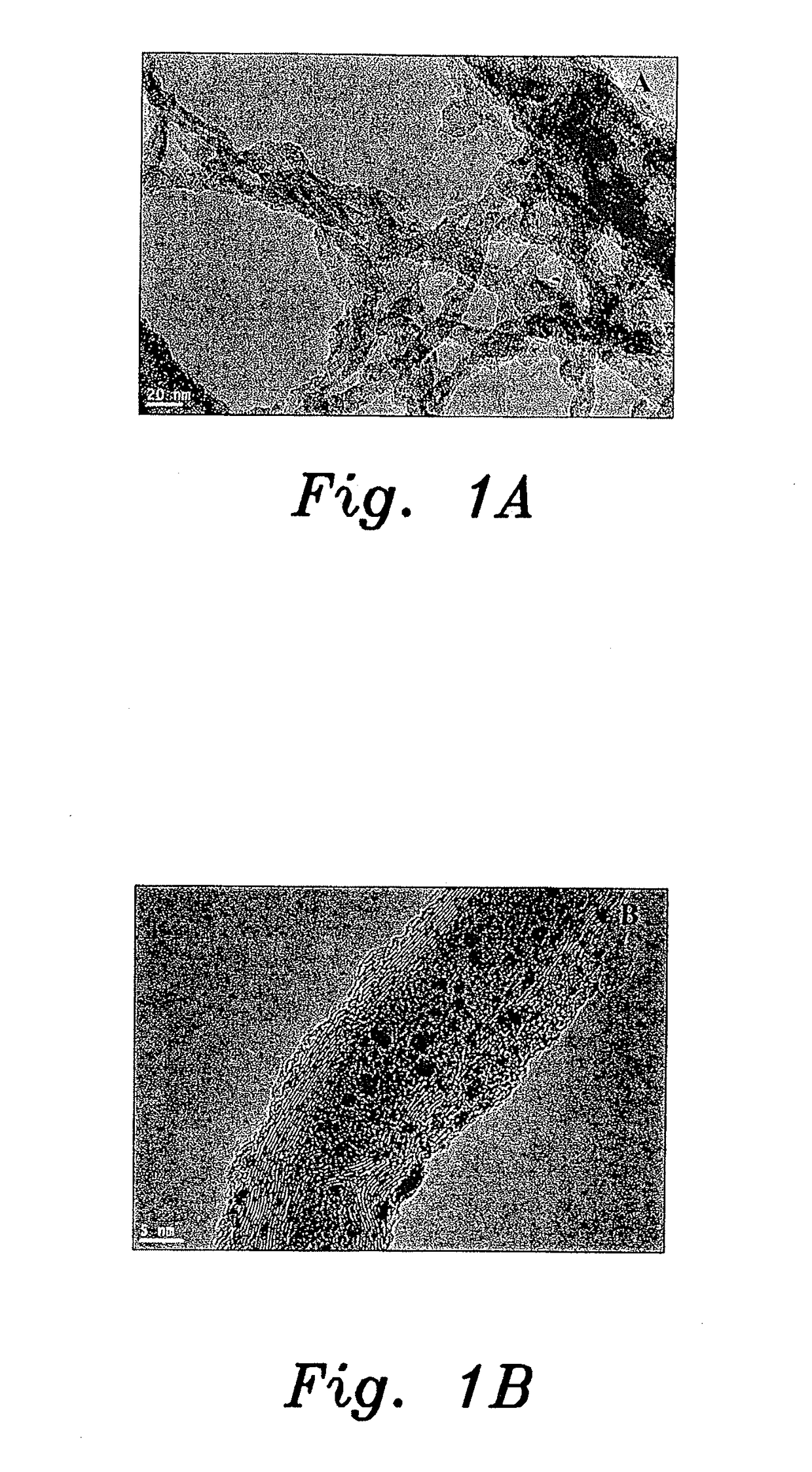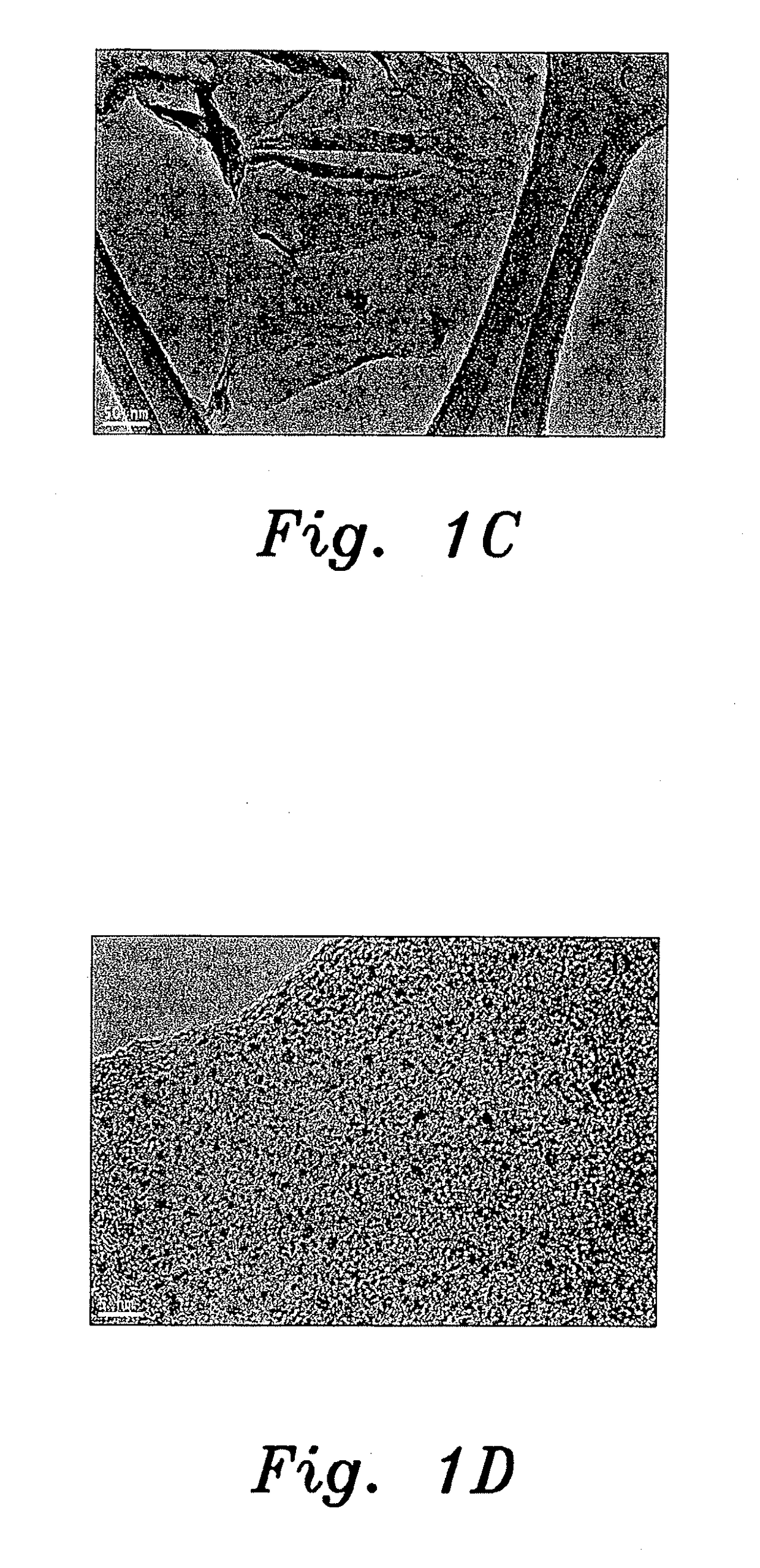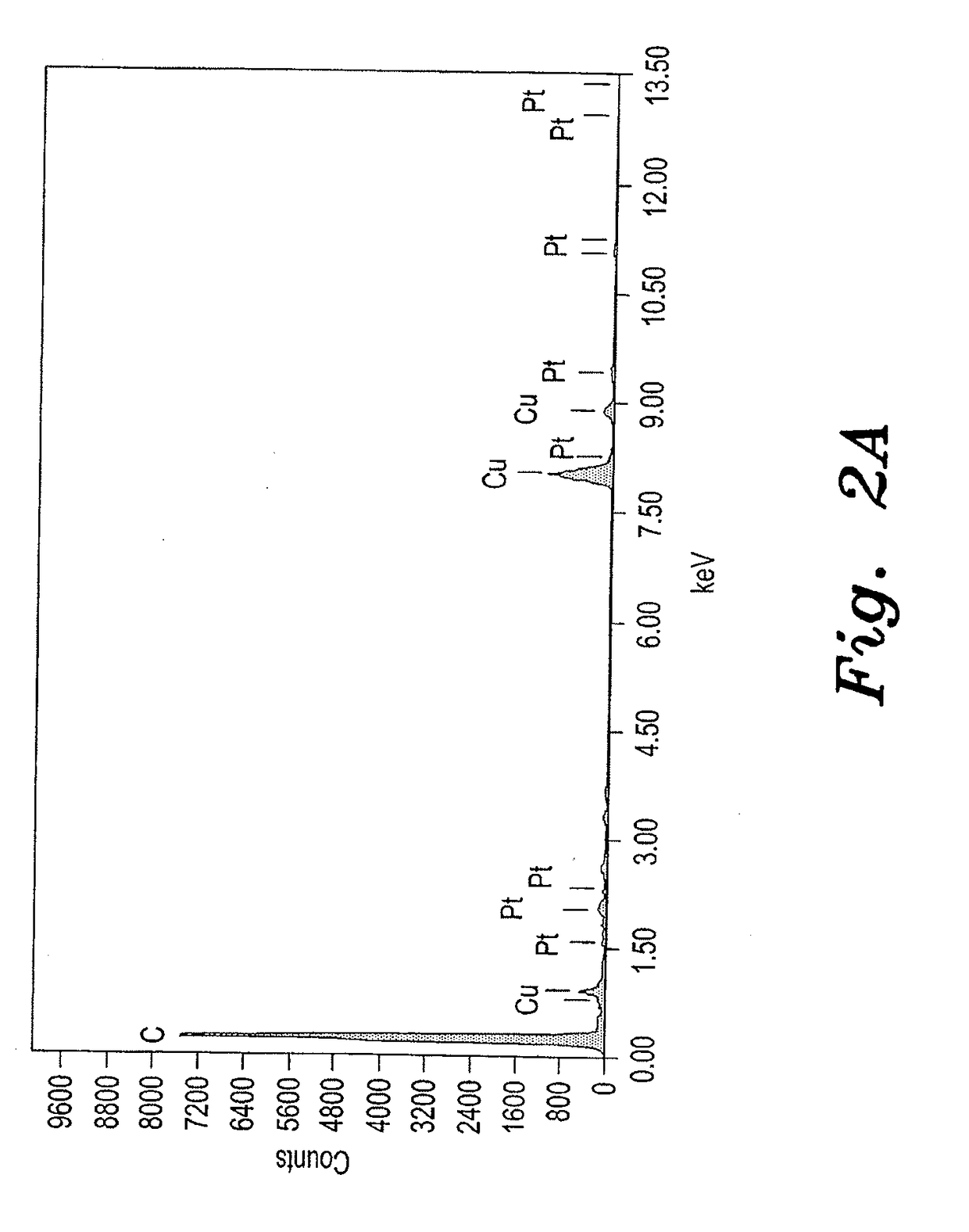Patents
Literature
43 results about "Energy-dispersive X-ray spectroscopy" patented technology
Efficacy Topic
Property
Owner
Technical Advancement
Application Domain
Technology Topic
Technology Field Word
Patent Country/Region
Patent Type
Patent Status
Application Year
Inventor
Energy-dispersive X-ray spectroscopy (EDS, EDX, EDXS or XEDS), sometimes called energy dispersive X-ray analysis (EDXA) or energy dispersive X-ray microanalysis (EDXMA), is an analytical technique used for the elemental analysis or chemical characterization of a sample. It relies on an interaction of some source of X-ray excitation and a sample. Its characterization capabilities are due in large part to the fundamental principle that each element has a unique atomic structure allowing a unique set of peaks on its electromagnetic emission spectrum (which is the main principle of spectroscopy).
Inductively Coupled Plasma Source as an Electron Beam Source for Spectroscopic Analysis
ActiveUS20130134307A1Easy to useStability-of-path spectrometersMaterial analysis by optical meansBeam sourceX ray spectra
A single column inductively coupled plasma source with user selectable configurations operates in ion-mode for FIB operations or electron mode for SEM operations. Equipped with an x-ray detector, energy dispersive x-ray spectroscopy analysis is possible. A user can selectively configure the ICP to prepare a sample in the ion-mode or FIB mode then essentially flip a switch selecting electron-mode or SEM mode and analyze the sample using EDS or other types of analysis.
Owner:FEI CO
Positive active material for lithium-ion secondary battery, positive electrode for lithium-ion secondary battery, and lithium-ion secondary battery
ActiveUS20160028080A1Excellent initial characteristicIncreased durabilityPositive electrodesNon-aqueous electrolyte accumulator electrodesSurface layerX ray spectra
A positive active material for a lithium-ion secondary battery includes a lithium composite oxide particle containing nickel atoms, manganese atoms, and fluorine atoms. The lithium composite oxide particle includes a particle center portion and a surface layer portion that is closer to a surface of the lithium composite oxide particle than the particle center portion is. A fluorine atom concentration Fc (at %) of the particle center portion measured by energy dispersive X-ray spectroscopy is lower than a fluorine atom concentration Fs (at %) of the surface layer portion.
Owner:TOYOTA JIDOSHA KK
Catalyst support for purification of exhaust gas, catalyst for purification of exhaust gas using same, and method for producing catalyst support for purification of exhaust gas
ActiveCN104602809AHigh oxygen storage performanceHigh catalytic activityInternal combustion piston enginesHeterogenous catalyst chemical elementsCerium(IV) oxideCalcination
A catalyst support for purification of exhaust gas comprises a porous composite metal oxide, the porous composite metal oxide containing alumina, ceria, and zirconia and having an alumina content ratio of from 5 to 80% by mass, wherein after calcination in the air at 1100 DEG C for 5 hours, the porous composite metal oxide satisfies a condition such that standard deviations of content ratios (as at% unit) of aluminum, cerium and zirconium elements are each 19 or less with respect to 100 minute areas (with one minute area being 300 nm in length x 330 nm in width) of the porous composite metal oxide, the standard deviation being determined by energy dispersive X-ray spectroscopy using a scanning transmission electron microscope equipped with a spherical aberration corrector.
Owner:TOYOTA JIDOSHA KK
Detection method for microscopic lithium precipitation from cycles of lithium ion battery
ActiveCN108535659AWide detection rangeImprove detection convenienceElectrical testingSecondary cells servicing/maintenanceAluminium-ion batteryLithium carbonate
The invention discloses a detection method for microscopic lithium precipitation from cycles of a lithium ion battery. The detection method comprises the following steps: firstly, discharging a to-be-detected lithium ion battery; disassembling the lithium ion battery after discharging, taking out an anode piece and cleaning the anode piece to remove residual electrolyte; exposing the anode piece to the air for 5-20 h, performing heating and drying at 60-110 DEG C for 1-3 h, and converting precipitated lithium into lithium carbonate finally; measuring corresponding data by EDS (energy-dispersive X-ray spectroscopy) or chemical titration to determine the degree of lithium precipitation in the anode piece. Compared with the prior art, the method has the following advantages that the detectionrange is wide, the method is applicable to detection of microscopic lithium precipitation, and the degree of lithium precipitation can be judged visually based on specific data obtained by detection;detection convenience is higher, external interference of detection data is low, requirements of the detection method for equipment are low, and the detection cost is low; the method is applicable toanalysis of lithium precipitation from cycles of various lithium ion batteries such as LFP, NCM, LMO and the like.
Owner:ETRUST POWER ETP GRP LTD
Method and system for improving characteristic peak signals in analytical electron microscopy
ActiveUS20130240728A1Material analysis using wave/particle radiationEnergy spectrometersPeak valueBeam scanning
A method and system are disclosed for improving characteristic peak signals in electron energy loss spectroscopy (EELS) and energy dispersive x-ray spectroscopy (EDS) measurements of crystalline materials. A beam scanning protocol is applied which varies the inclination, azimuthal angle, or a combination thereof of the incident beam while spectroscopic data is acquired. The method and system may be applied to compositional mapping.
Owner:NANOMEGAS SPRL +2
Compositions and methods for preparing copper-containing paper and uses thereof
ActiveUS20150336804A1Cheap and easy to useWater treatment compoundsSpecific water treatment objectivesFiberEscherichia coli
The invention comprises an environmentally benign method for the direct in situ preparation of copper nanoparticles (CuNPs) in paper by reducing sorbed copper ions with ascorbic acid. Copper nanoparticles were quickly formed in less than 10 minutes and were well distributed on the paper fiber surfaces. Paper sheets were characterized by x-ray diffraction, scanning electron microscopy, energy dispersive x-ray spectroscopy, and atomic absorption spectroscopy. Antibacterial activity of the CuNP sheets was assessed for by passing Escherichia coli bacteria suspensions through the papers. The effluent was analyzed for viable bacteria and copper release. The CuNP papers with higher copper content showed a high bacteria reduction of log 8.8 for E. coli. The paper sheets containing copper nanoparticles were effective in inactivating the test bacteria as they passed through the paper. The copper levels released in the effluent water were below the recommended limit for copper in drinking water (1 ppm).
Owner:UNIV OF VIRGINIA ALUMNI PATENTS FOUND
Catalyst support for purification of exhaust gas, catalyst for purification of exhaust gas using the same, and method for producing the catalyst support for purification of exhaust gas
ActiveUS9409152B2High oxygen storage performanceHigh catalytic activityInternal combustion piston enginesOther chemical processesCerium(IV) oxideCalcination
A catalyst support for purification of exhaust gas includes a porous composite metal oxide, the porous composite metal oxide containing alumina, ceria, and zirconia and having an alumina content ratio of from 5 to 80% by mass, wherein after calcination in the air at 1100° C. for 5 hours, the porous composite metal oxide satisfies a condition such that standard deviations of content ratios (as at % unit) of aluminum, cerium and zirconium elements are each 19 or less with respect to 100 minute areas (with one minute area being 300 nm in length×330 nm in width) of the porous composite metal oxide, the standard deviation being determined by energy dispersive X-ray spectroscopy using a scanning transmission electron microscope equipped with a spherical aberration corrector.
Owner:TOYOTA CENT RES & DEV LAB INC +1
Copper-clad laminate
InactiveUS20060115671A1High bonding strengthImprove adhesionInsulating substrate metal adhesion improvementPrinted circuit aspectsHigh densitySulfur
This invention relate to a copper-clad laminate with good adhesion between a copper foil and a layer of polyimide resin useful for high-density printed wiring boards. The copper-clad laminate having a copper foil treated with a heterocyclic compound containing nitrogen and sulfur as an organic surface treating agent and a layer of polyimide resin satisfying either of the following requirements: the concentration of sulfur atoms derived from the organic surface treating agent in the interface of copper and polyimide is in the range of 0.01-0.24 wt % as determined by an Energy dispersive X-ray spectroscopy (EDX); the weight of sulfur atoms derived from the organic surface treating agent per unit area of the copper foil is in the range of 2.5-3.1 mg / m2; and the concentration of sulfur atoms derived from the organic surface treating agent existing in the range from the surface to a depth of 16 nm of the copper foil is in the range of 1.73-2.30 atom % as determined by X-ray photoelectron spectroscopy (XPS).
Owner:NIPPON STEEL CHEMICAL CO LTD
Catalyst support for purification of exhaust gas, catalyst for purification of exhaust gas using the same, and method for producing the catalyst support for purification of exhaust gas
ActiveUS20150266004A1High oxygen storage performanceHigh catalytic activityAluminium compoundsInternal combustion piston enginesCeriumCalcination
A catalyst support for purification of exhaust gas includes a porous composite metal oxide, the porous composite metal oxide containing alumina, ceria, and zirconia and having an alumina content ratio of from 5 to 80% by mass, wherein after calcination in the air at 1100° C. for 5 hours, the porous composite metal oxide satisfies a condition such that standard deviations of content ratios (as at % unit) of aluminum, cerium and zirconium elements are each 19 or less with respect to 100 minute areas (with one minute area being 300 nm in length×330 nm in width) of the porous composite metal oxide, the standard deviation being determined by energy dispersive X-ray spectroscopy using a scanning transmission electron microscope equipped with a spherical aberration corrector.
Owner:TOYOTA CENT RES & DEV LAB INC +1
Cross sectional depth composition generation utilizing scanning electron microscopy
InactiveUS9625398B1Electric discharge tubesUsing wave/particle radiation meansBeam energyScanning probe microscopy
A method for generating cross-sectional profiles using a scanning electron microscope (SEM) includes scanning a sample with an electron beam to gather an energy-dispersive X-ray spectroscopy (EDS) spectrum for an energy level to determine element composition across an area of interest. A mesh is generated to locate positions where a depth profile will be taken. EDS spectra are gathered for energy levels at mesh locations. A number of layers of the sample are determined by distinguishing differences in chemical composition between depths as beam energies are stepped through. A depth profile is generated for the area of interest by compiling the number of layers and the element composition across the mesh.
Owner:IBM CORP
Inductively coupled plasma source as an electron beam source for spectroscopic analysis
ActiveUS8716673B2Easy to useStability-of-path spectrometersTube electron sourcesBeam sourceFtir spectra
Owner:FEI CO
Ti-Mo ALLOY AND METHOD FOR PRODUCING THE SAME
A task of the present invention is to provide a Ti—Mo alloy material which can be improved in the yield stress at room temperature by the precipitation of an aged omega phase in the Ti—Mo alloy while maintaining large ductility at room temperature, and a method for producing the same.Provided is a Ti—Mo alloy collectively having an Mo content of 10 to 20 mass %, wherein the Ti—Mo alloy has a winding belt-like or swirly segregation portion having a width of 10 to 20 μm in the plane of a backscattered electron image (BEI) or an energy dispersive X-ray spectroscopy (EDS) image of the Ti—Mo alloy, as examined under a scanning electron microscope, in which Mo content is larger than the collective Mo content of the Ti—Mo alloy. When generally observing the entire plane examined, a segregation structure in a swirly form can be observed.Further, provided is the Ti—Mo alloy which has been subjected to aging treatment so that an aged omega phase is precipitated along the segregation portion. When generally observing the entire plane examined, an aged omega phase structure in a swirly form can be observed.
Owner:NAT INST FOR MATERIALS SCI
Porous composite metal oxide, catalyst using the same, and methods for producing the porous composite metal oxide and the catalyst
ActiveUS20120142523A1Good dispersionImprove heat resistanceMaterial nanotechnologyHeterogenous catalyst chemical elementsMeasurement pointMaterials science
Owner:TOYOTA KK
Electrode material and solid oxide fuel cell containing the electrode material
InactiveUS20120021330A1Increased durabilityInhibit deteriorationCell electrodesSolid electrolyte fuel cellsFuel cellsX ray spectra
The electrode material contains a complex oxide having a perovskite structure represented by a general formula ABO3. Each A-site element having a standard deviation of an atomic concentration of 10.3 or less. The atomic concentration is measured by energy dispersive X-ray spectroscopy at ten spots within one field of view.
Owner:NGK INSULATORS LTD
Cross sectional depth composition generation utilizing scanning electron microscopy
InactiveUS9702835B1Electric discharge tubesUsing wave/particle radiation meansBeam energyScanning voltage microscopy
A method for generating cross-sectional profiles using a scanning electron microscope (SEM) includes scanning a sample with an electron beam to gather an energy-dispersive X-ray spectroscopy (EDS) spectrum for an energy level to determine element composition across an area of interest. A mesh is generated to locate positions where a depth profile will be taken. EDS spectra are gathered for energy levels at mesh locations. A number of layers of the sample are determined by distinguishing differences in chemical composition between depths as beam energies are stepped through. A depth profile is generated for the area of interest by compiling the number of layers and the element composition across the mesh.
Owner:IBM CORP
Porous composite metal oxide, catalyst using the same, and methods for producing the porous composite metal oxide and the catalyst
ActiveUS9556023B2Improve heat resistanceHigh level of catalytic activityMaterial nanotechnologyMolecular sieve catalystsMeasurement pointMaterials science
A porous composite metal oxide, including a mixture of first ultrafine particles containing alumina and second ultrafine particles containing zirconia, wherein the first ultrafine particles and the second ultrafine particles are uniformly dispersed in such a way as to satisfy a condition that standard deviations of content ratios (% by mass) of all metal elements contained in the porous composite metal oxide at 0.1% by mass or more are each 10 or less, the standard deviations being obtained by measuring content ratios of the metal elements at 100 measurement points within a minute analysis region of 20 nm square by energy dispersive X-ray spectroscopy using a scanning transmission electron microscope equipped with a spherical aberration correction function.
Owner:TOYOTA KK
Chemical modification method of aromatic diazo salt to ZnO nanostructured surface
InactiveCN101302034ASuitable for surface modificationThe modification method is simpleZinc oxides/hydroxidesMethylene DichlorideNitrogen gas
The invention relates to a chemical modification method for a surface of ZnO nanostgructure with aromatic diazo salt, belonging to the functional material and surface chemistry field. The method comprises the steps that: ZnO with the nanostructure is immersed in absolute ethyl alcohol, is subject to the ultrasonic processing, washed by deionized water for ultrasonic washing, taken out and dried in nitrogen environment; under the condition of keeping out of light, the processed nano ZnO is immersed in actonitrile of aromatic diazo salt for 18 to 36 hours at a temperature of 10 and 50 DEG C; the nano ZnO modified by the aromatic diazo salt is taken out from solution, is irradiated through an ultraviolent lamp or heated, and kept for a period of time; and the nano ZnO is washed orderly with the acetonitrile, acetone and ethanol, dried in the nitrogen environment and the modification is completed. The method is simple and feasible; and the modified ZnO nanostructure is more stable, can resist the corrosion of the chloroform, the ethanol, the acetone, methylene dichloride and other various organic solvent, the content of organic carbon reaches more than 10 percent through the analysis to the modified surface with an energy dispersive x-ray spectroscopy.
Owner:BEIJING INSTITUTE OF TECHNOLOGYGY
Copper-clad laminated sheet
InactiveCN1822749AInsulating substrate metal adhesion improvementPrinted circuit aspectsHigh densitySulfur
This invention relate to a copper-clad laminate with good adhesion between a copper foil and a layer of polyimide resin useful for high-density printed wiring boards. The copper-clad laminate having a copper foil treated with a heterocyclic compound containing nitrogen and sulfur as an organic surface treating agent and a layer of polyimide resin satisfying either of the following requirements: the concentration of sulfur atoms derived from the organic surface treating agent in the interface of copper and polyimide is in the range of 0.01-0.24 wt % as determined by an Energy dispersive X-ray spectroscopy (EDX); the weight of sulfur atoms derived from the organic surface treating agent per unit area of the copper foil is in the range of 2.5-3.1 mg / m2; and the concentration of sulfur atoms derived from the organic surface treating agent existing in the range from the surface to a depth of 16 nm of the copper foil is in the range of 1.73-2.30 atom % as determined by X-ray photoelectron spectroscopy (XPS).
Owner:NIPPON STEEL CHEMICAL CO LTD
Scanning electron microscope-energy dispersive X-ray spectroscopy (SEM-EDX) detection method for distribution characteristics of nitrogen, phosphorus and potassium in crop leaf
InactiveCN105784736AUsing wave/particle radiation meansMaterial analysis by transmitting radiationPotassiumDistribution characteristic
The invention discloses a scanning electron microscope-energy dispersive X-ray spectroscopy (SEM-EDX) detection method for distribution characteristics of nitrogen, phosphorus and potassium in a crop leaf. The SEM-EDX detection method adopts a way of combining SEM with EDX to carry out surface scanning on a leaf cross section and line scanning of the thickness direction to obtain an energy spectrum diagram of nitrogen, phosphorus and potassium in the crop leaf, and then analyzing the energy spectrum diagram to obtain space distribution characteristics of nitrogen, phosphorus and potassium in a mesophyll tissue. Nitrogen, phosphorus and potassium are distributed in the whole leaf cross section, the distribution characteristics of nitrogen and phosphorus are similar, the distribution densities of nitrogen and phosphorus along the periphery of a cell wall contour are obviously higher than the distribution densities of other parts; potassium is distributed relatively uniformly in the whole leaf cross section. The SEM-EDX detection method disclosed by the invention solves the problem that the space distribution characteristics of nitrogen, phosphorus and potassium in the leaf cannot be determined, and can be applied to the microscopic detection of crop nutrients.
Owner:JIANGSU UNIV
Multimodality mineralogy segmentation system and method
PendingCN108431870AImprove imaging resolutionImprove operational efficiencyImage enhancementMaterial analysis using wave/particle radiationData setX-ray
A multimodality imaging system and method for mineralogy segmentation is disclosed. Image datasets of the sample are generated for one or more modalities, including x-ray and focused ion beam scanningelectron microscope (FIB-SEM) modalities. Mineral maps are then created using Energy Dispersive X-ray spectroscopy (EDX) from at least part of the sample covered by the image datasets. The EDX mineral maps are applied as a mask to the image datasets to identify and label regions of minerals within the sample. Feature vectors are then extracted from the labeled regions via feature generators suchas Gabor filters. Finally, machine learning training and classification algorithms such as Random Forest are applied to the extracted feature vectors to construct a segmented image representation of the sample that classifies the minerals within the sample.
Owner:CARL ZEISS X RAY MICROSCOPY
Surface-treated fluorescent material and process for producing surface-treated fluorescent material
InactiveUS20130161678A1Improve moisture resistanceEfficiently and economically producedElectroluminescent light sourcesLuminescent compositionsAlkaline earth metalMoisture resistance
Provided are a surface treated phosphor having high dispersibility and remarkably improved moisture resistance without degradation in fluorescence properties, and a method of producing the surface treated phosphor.The present invention relates to a surface treated phosphor including: a phosphor matrix including an alkaline earth metal and silicon; and a surface treatment layer including an alkaline earth metal, silicon, and a specific element belonging to groups 4 to 6 of the periodic table, wherein, when element distribution of the surface treatment layer in the thickness direction viewed in cross-section is determined by electron microscopy and energy dispersive X-ray spectroscopy coupled with the electron microscopy, the position representing the maximum peak of a specific element content is located closer to the surface than the position representing the maximum peak of a silicon content and silicon contents of the phosphor matrix and the surface treatment layer satisfy the following formula (1):[Formula 1]S1<S2 (1)wherein S1 represents the silicon content of the phosphor matrix and S2 represents the silicon content of the surface treatment layer.
Owner:SEKISUI CHEM CO LTD
Multimodality mineralogy segmentation system and method
ActiveUS10107769B2Improve imaging resolutionEasy to operateImage enhancementImage analysisDiagnostic Radiology ModalityData set
A multimodality imaging system and method for mineralogy segmentation is disclosed. Image datasets of the sample are generated for one or more modalities, including x-ray and focused ion beam scanning electron microscope (FIB-SEM) modalities. Mineral maps are then created using Energy Dispersive X-ray spectroscopy (EDX) from at least part of the sample covered by the image datasets. The EDX mineral maps are applied as a mask to the image datasets to identify and label regions of minerals within the sample. Feature vectors are then extracted from the labeled regions via feature generators such as Gabor filters. Finally, machine learning training and classification algorithms such as Random Forest are applied to the extracted feature vectors to construct a segmented image representation of the sample that classifies the minerals within the sample.
Owner:CARL ZEISS X RAY MICROSCOPY
Spectroscopy technique using merged spectral data
ActiveCN103575755AAccurate analysisMaterial analysis by measuring secondary emissionPhoton counting detectorPhotonics
A method of examining a sample using a spectroscopic apparatus, such as energy-dispersive X-ray spectroscopy (EDX), comprising the following steps: - Mounting the sample on a sample holder; - Directing a focused input beam of radiation, such as an electron beam or X-ray beam, onto a location on the sample, thereby producing an interaction that causes a flux of stimulated photonic radiation, such as fluorescent X-rays, to emanate from said location; - Examining said flux using a multi-channel photon-counting detector, thus accruing a measured spectrum for said location; - Automatically repeating said directing and examining steps for a series of successive locations on the sample, which method comprises the following steps: - Choosing a beam parameter of the input beam, such as the beam curent or beam spot size, that will influence a magnitude of said flux of stimulated photonic radiation; - For each location within a first set of locations on the sample, accruing a spectrum using a first value of said beam parameter; - For each location within a second set of locations on the sample, accruing a spectrum using a second value of said beam parameter, different from said first value. One application consists in detecting and flagging events during EDX analysis when pile-up is too high and re-acquire EDX data for the locations corresponding to these flagged events.
Owner:FEI CO
Compositions and methods for preparing copper-containing paper and uses thereof
The invention comprises an environmentally benign method for the direct in situ preparation of copper nanoparticles (CuNPs) in paper by reducing sorbed copper ions with ascorbic acid. Copper nanoparticles were quickly formed in less than 10 minutes and were well distributed on the paper fiber surfaces. Paper sheets were characterized by x-ray diffraction, scanning electron microscopy, energy dispersive x-ray spectroscopy, and atomic absorption spectroscopy. Antibacterial activity of the CuNP sheets was assessed for by passing Escherichia coli bacteria suspensions through the papers. The effluent was analyzed for viable bacteria and copper release. The CuNP papers with higher copper content showed a high bacteria reduction of log 8.8 for E. coli. The paper sheets containing copper nanoparticles were effective in inactivating the test bacteria as they passed through the paper. The copper levels released in the effluent water were below the recommended limit for copper in drinking water (1 ppm).
Owner:UNIV OF VIRGINIA ALUMNI PATENTS FOUND
Method to produce noble metal nanocomposites
InactiveUS20160281239A1Easily and rapidlyReduce usageLiquid/solution decomposition chemical coatingCarbon nanotubeToxic chemical
The method for producing noble metal nanocomposites involves reducing noble metal ions (Ag, Au and Pt) on graphene oxide (GO) or carbon nanotubes (CNT) by using Artocarpus integrifolia leaves extract as a reducing agent. As synthesized MNPs / GO and MNPs / CNT composites have been characterized using X-ray diffraction (XRD), transmission electron microscope (TEM) imaging, and energy dispersive X-ray spectroscopy (EDX). The TEM images of prepared materials showed that the nanocomposites were 1-30 nm in size with spherical nanoparticles embedded on the surface of GO and CNT. This synthetic route is easy and rapid for preparing a variety of nanocomposites. The method avoids use of toxic chemicals, and the prepared nanocomposites can be used for biosensor, fuel cell, and biomedical applications.
Owner:KING SAUD UNIVERSITY
Positive active material for lithium-ion secondary battery, positive electrode for lithium-ion secondary battery, and lithium-ion secondary battery
ActiveUS10340513B2Increase in resistance can be suppressedSuppresses of decompositionPositive electrodesLi-accumulatorsSurface layerX ray spectra
A positive active material for a lithium-ion secondary battery includes a lithium composite oxide particle containing nickel atoms, manganese atoms, and fluorine atoms. The lithium composite oxide particle includes a particle center portion and a surface layer portion that is closer to a surface of the lithium composite oxide particle than the particle center portion is. A fluorine atom concentration Fc (at %) of the particle center portion measured by energy dispersive X-ray spectroscopy is lower than a fluorine atom concentration Fs (at %) of the surface layer portion.
Owner:TOYOTA JIDOSHA KK
Method and system for improving characteristic peak signals in analytical electron microscopy
ActiveUS9406496B2Material analysis using wave/particle radiationEnergy spectrometersBeam scanningPeak value
A method and system are disclosed for improving characteristic peak signals in electron energy loss spectroscopy (EELS) and energy dispersive x-ray spectroscopy (EDS) measurements of crystalline materials. A beam scanning protocol is applied which varies the inclination, azimuthal angle, or a combination thereof of the incident beam while spectroscopic data is acquired. The method and system may be applied to compositional mapping.
Owner:NANOMEGAS SPRL +2
Separator for fuel cell, method for producing the same, and fuel cell
InactiveUS7960065B2Easy dischargeImprove wettabilityFuel cell auxillariesSolid electrolyte fuel cellsFuel cellsSulfur
The present invention provides a separator for a fuel cell comprising a resin and a conductive material as constituting components, and sulfonic acid groups imparted to at least one portion at the surface of gas channels by a treatment using a sulfuric acid-containing gas, wherein the resin and the sulfonic acid groups, which are on the surface of the gas channels, are bonded, and a ratio of sulfur atoms in the sulfonic acid groups at the surface of the gas channels as determined by energy-dispersive X-ray spectroscopy is in a range from 0.1 to 4.0 at %, and a method for producing the separator. The separator for a fuel cell of the present invention is excellent in the wettability to water, since sulfonic acid groups are imparted to the resin at the surface of gas channels in the sulfuric acid-containing gas.
Owner:DAINIPPON INK & CHEM INC
Semiconductor device
ActiveUS20180286886A1Improve featuresReduce leakage currentTransistorSolid-state devicesIndiumElectrical conductor
A semiconductor device which can suppress leakage current between a wiring and a connection electrode connected to a floating node is provided. The semiconductor device includes a first insulator, a first conductor over the first insulator, a second conductor over the first insulator, and a second insulator over the first insulator, the first conductor, and the second conductor. The first conductor and the second conductor contain a metal A (one kind or a plurality of kinds of aluminum, copper, tungsten, chromium, silver, gold, platinum, tantalum, nickel, molybdenum, magnesium, beryllium, indium, and ruthenium). The metal A is detected in an interface between the first insulator and the second insulator by an energy dispersive X-ray spectroscopy (EDX). The second insulator includes a groove for exposing the first insulator between the first conductor and the second conductor.
Owner:SEMICON ENERGY LAB CO LTD
Method for producing noble metal nanocomposites
ActiveUS20180282872A1Easily and rapidlyReduce usageMaterial nanotechnologyCarbon compoundsCarbon nanotubeToxic chemical
The method for producing noble metal nanocomposites involves reducing noble metal ions (Ag, Au and Pt) on graphene oxide (GO) or carbon nanotubes (CNT) by using Artocarpus integer leaves extract as a reducing agent. As synthesized MNPs / GO and MNPs / CNT composites have been characterized using X-ray diffraction (XRD), transmission electron microscope (TEM) imaging, and energy dispersive X-ray spectroscopy (EDX). The TEM images of prepared materials showed that the nanocomposites were 1-30 nm in size with spherical nanoparticles embedded on the surface of GO and CNT. This synthetic route is easy and rapid for preparing a variety of nanocomposites. The method avoids use of toxic chemicals, and the prepared nanocomposites can be used for biosensor, fuel cell, and biomedical applications.
Owner:KING SAUD UNIVERSITY
Features
- R&D
- Intellectual Property
- Life Sciences
- Materials
- Tech Scout
Why Patsnap Eureka
- Unparalleled Data Quality
- Higher Quality Content
- 60% Fewer Hallucinations
Social media
Patsnap Eureka Blog
Learn More Browse by: Latest US Patents, China's latest patents, Technical Efficacy Thesaurus, Application Domain, Technology Topic, Popular Technical Reports.
© 2025 PatSnap. All rights reserved.Legal|Privacy policy|Modern Slavery Act Transparency Statement|Sitemap|About US| Contact US: help@patsnap.com
